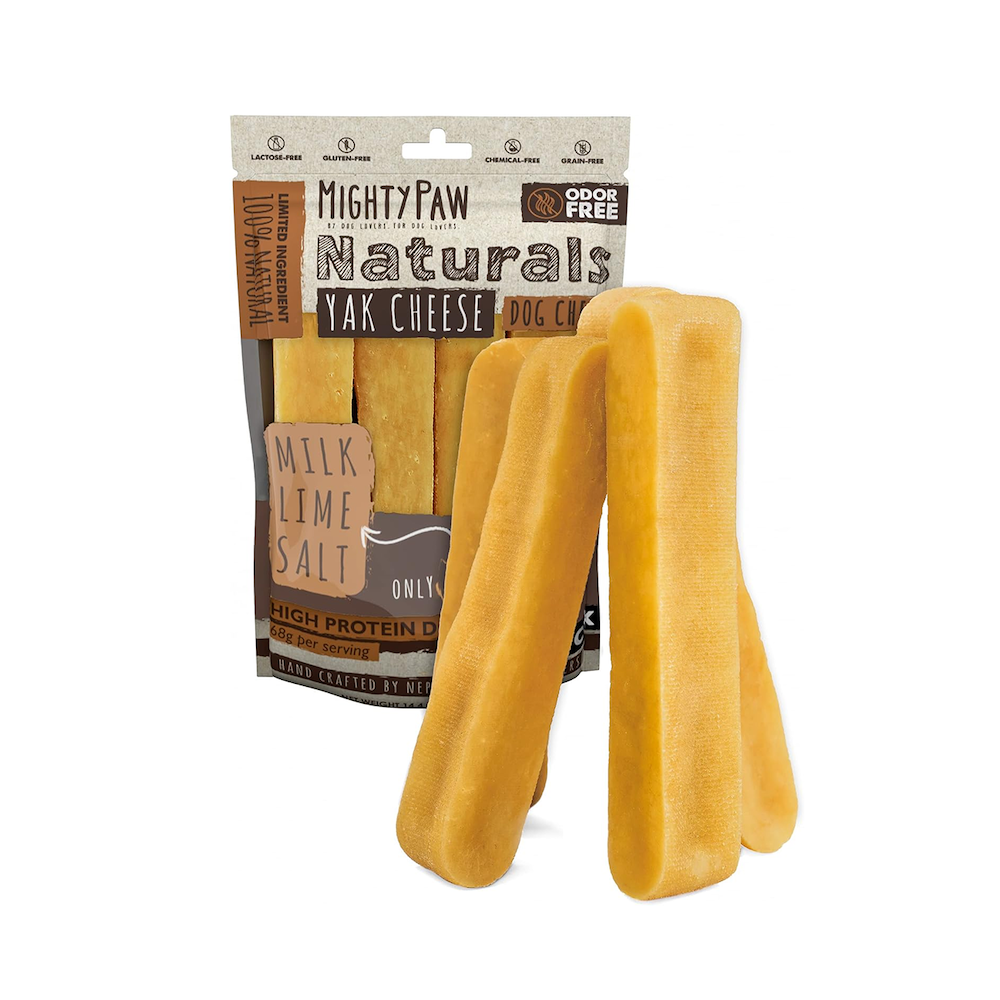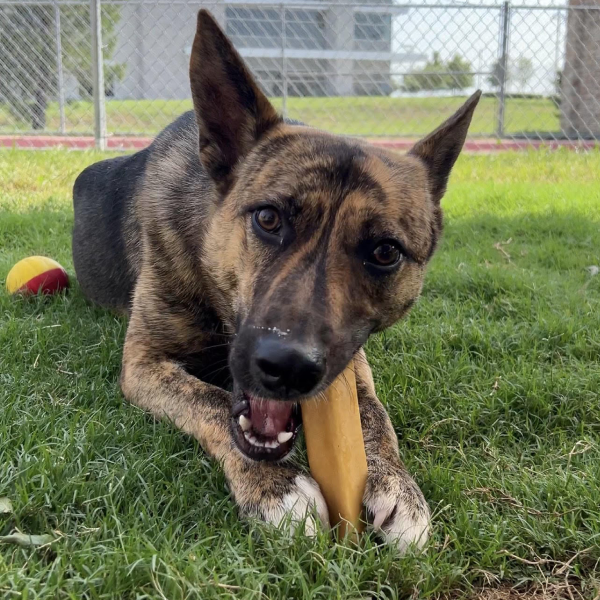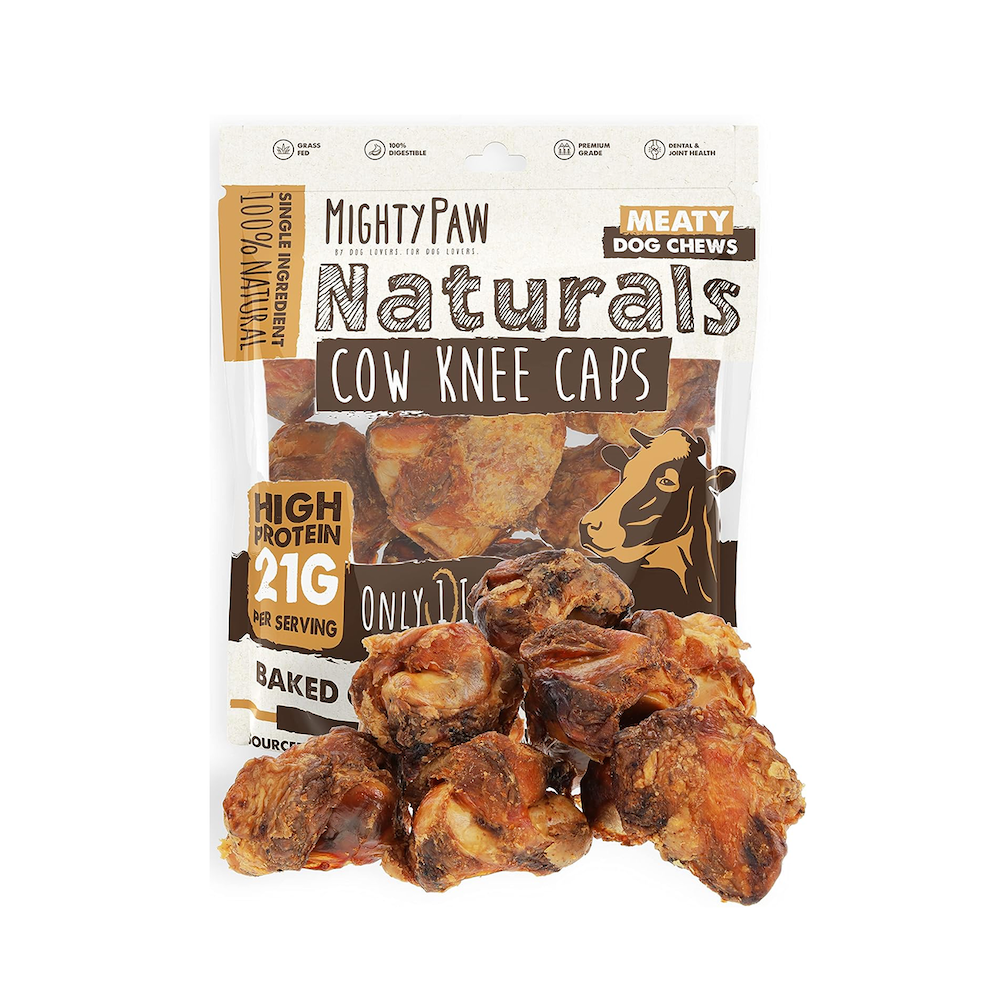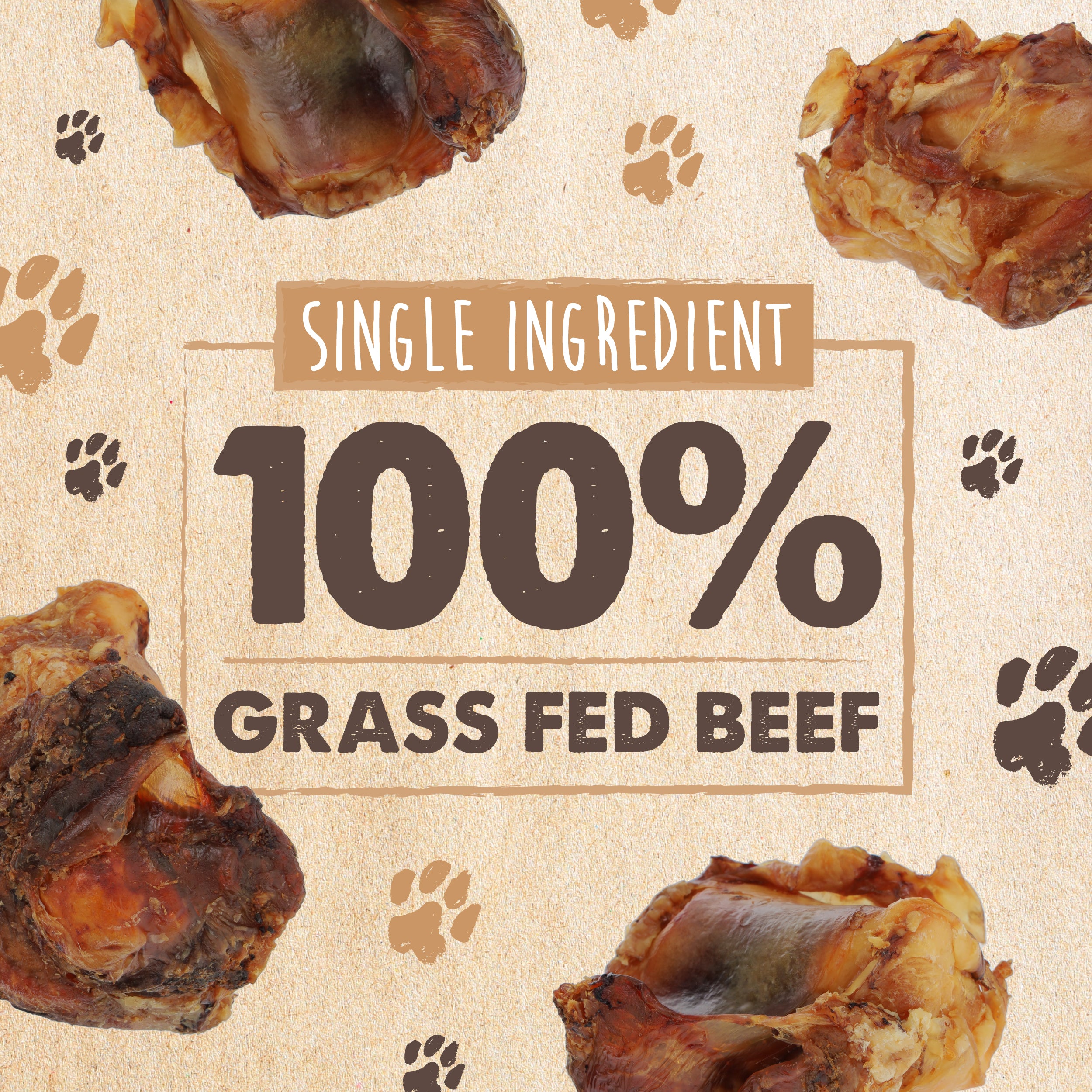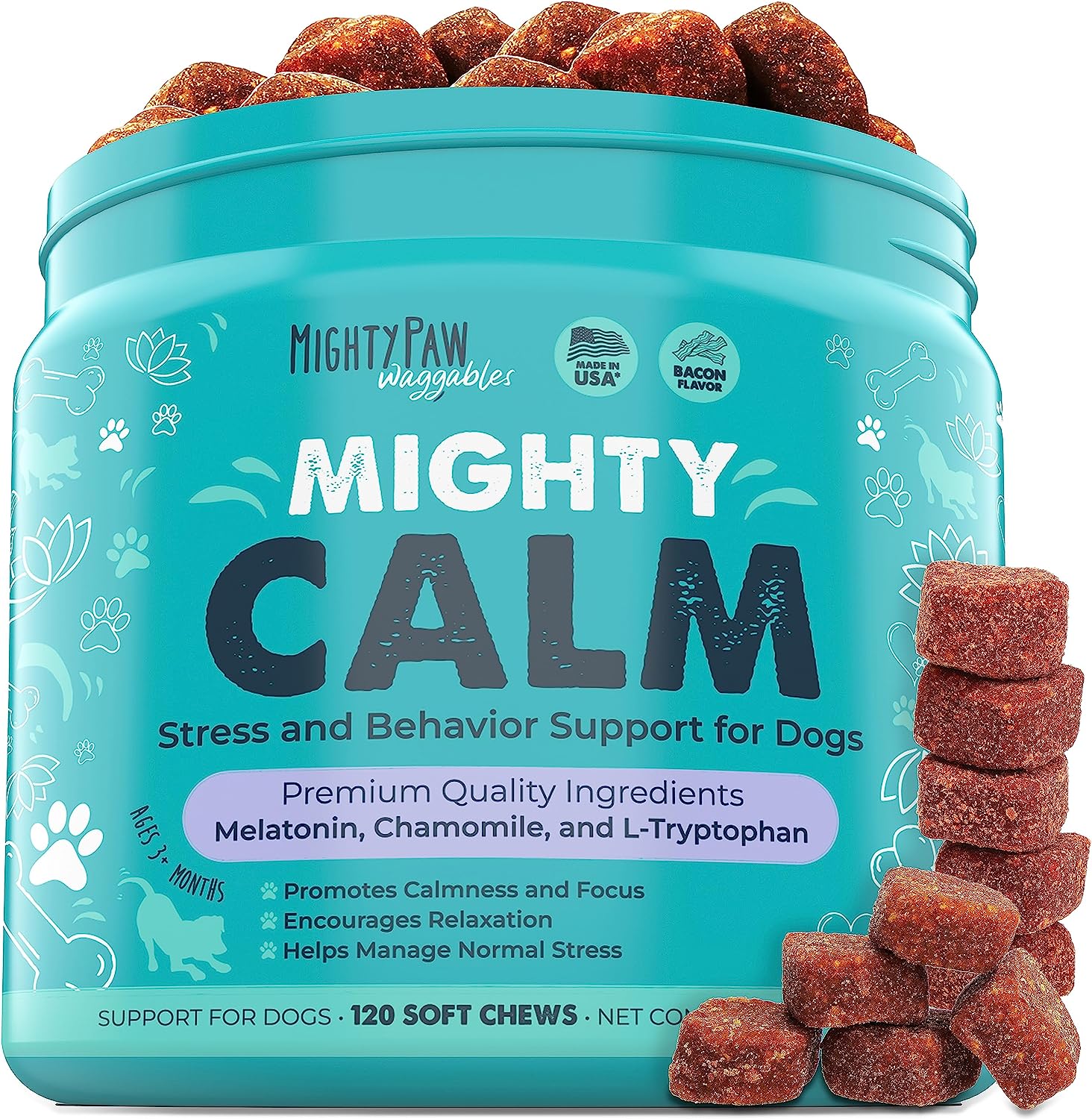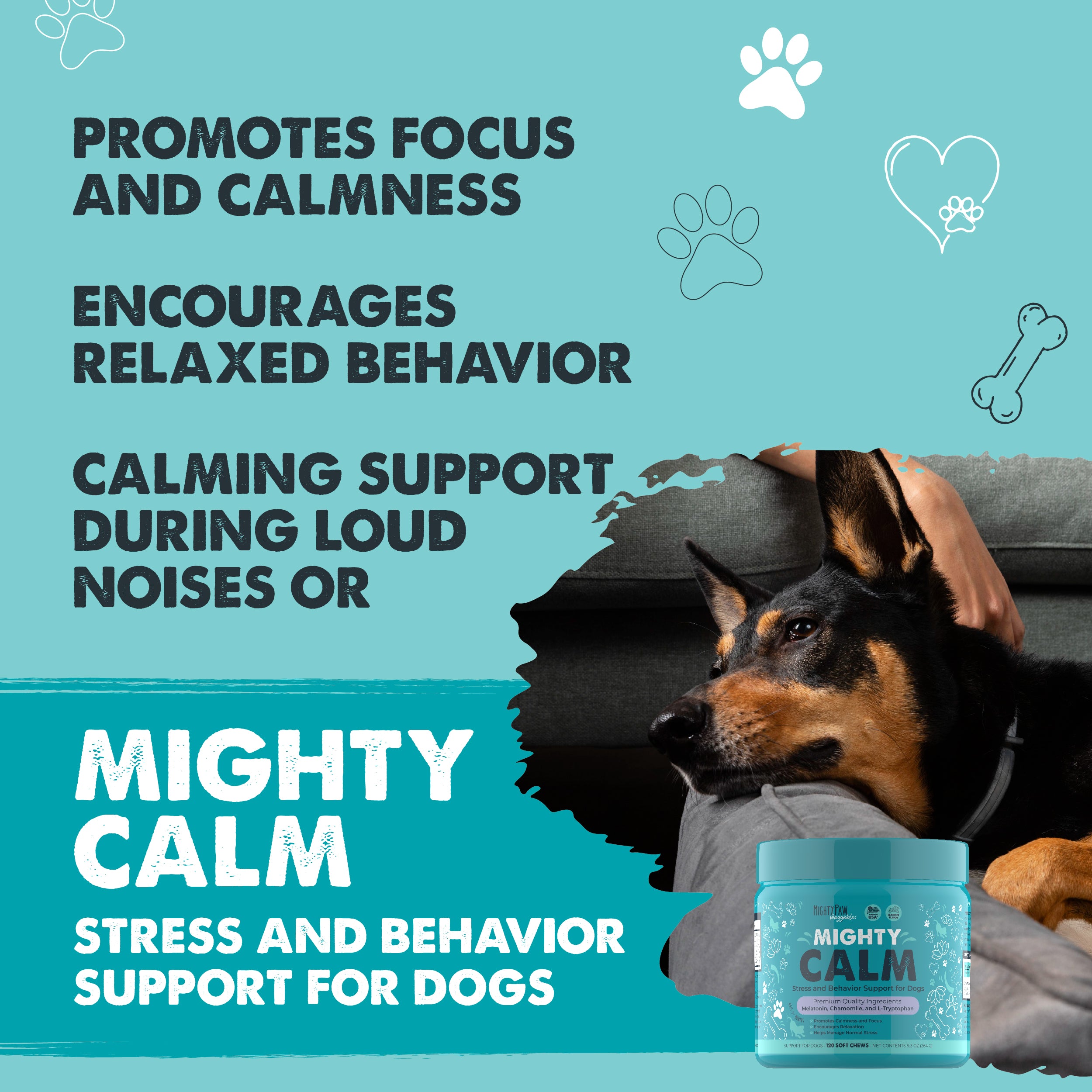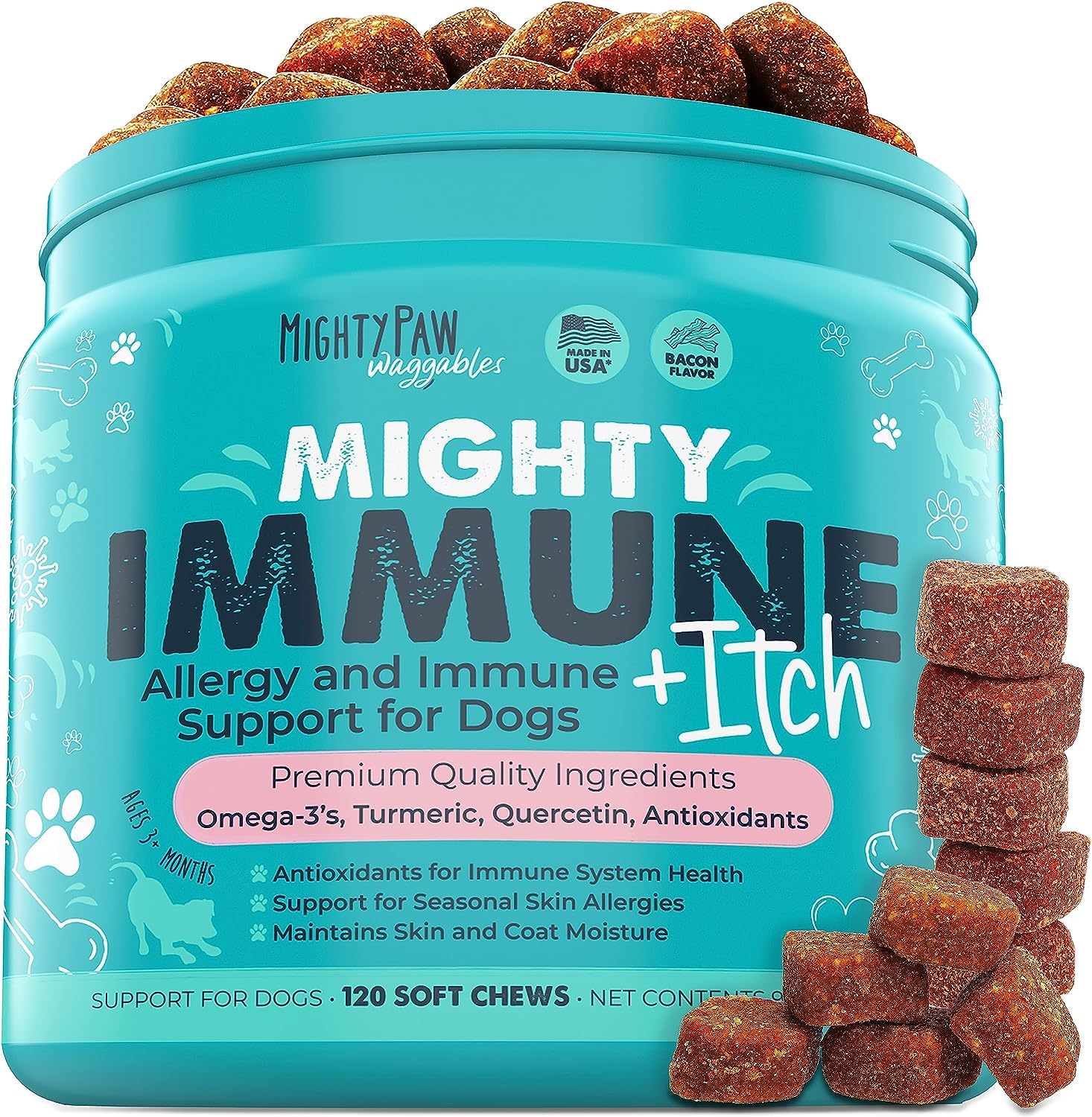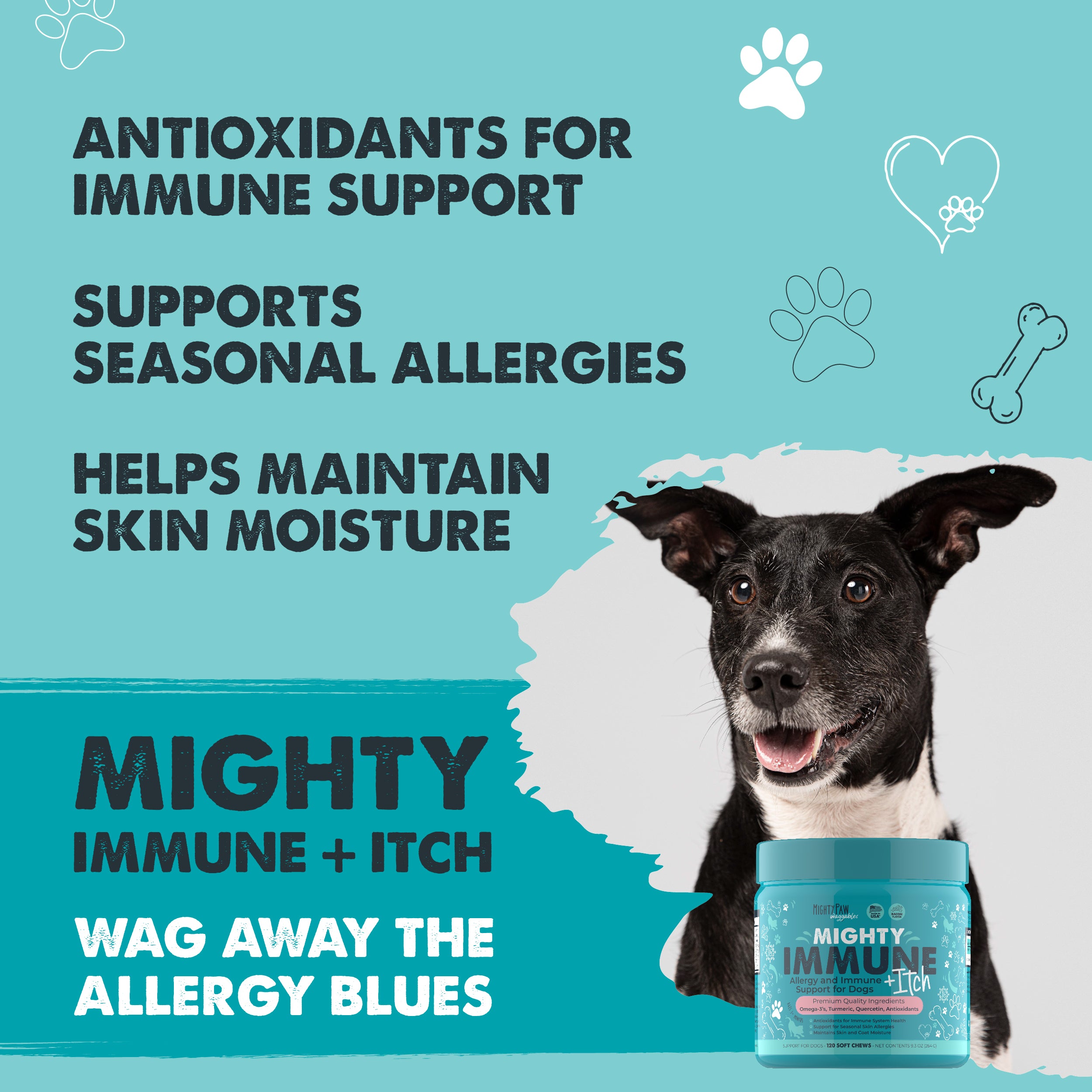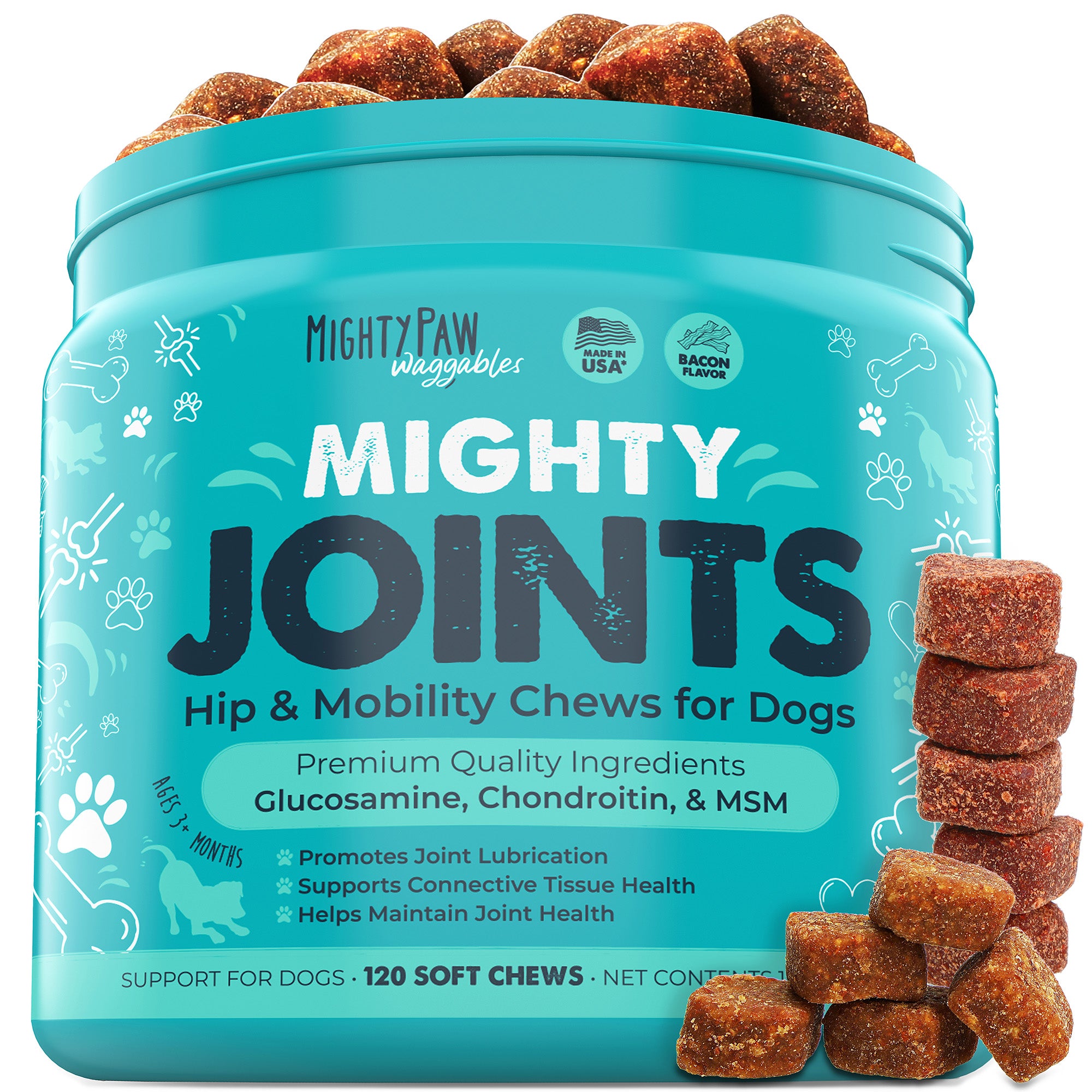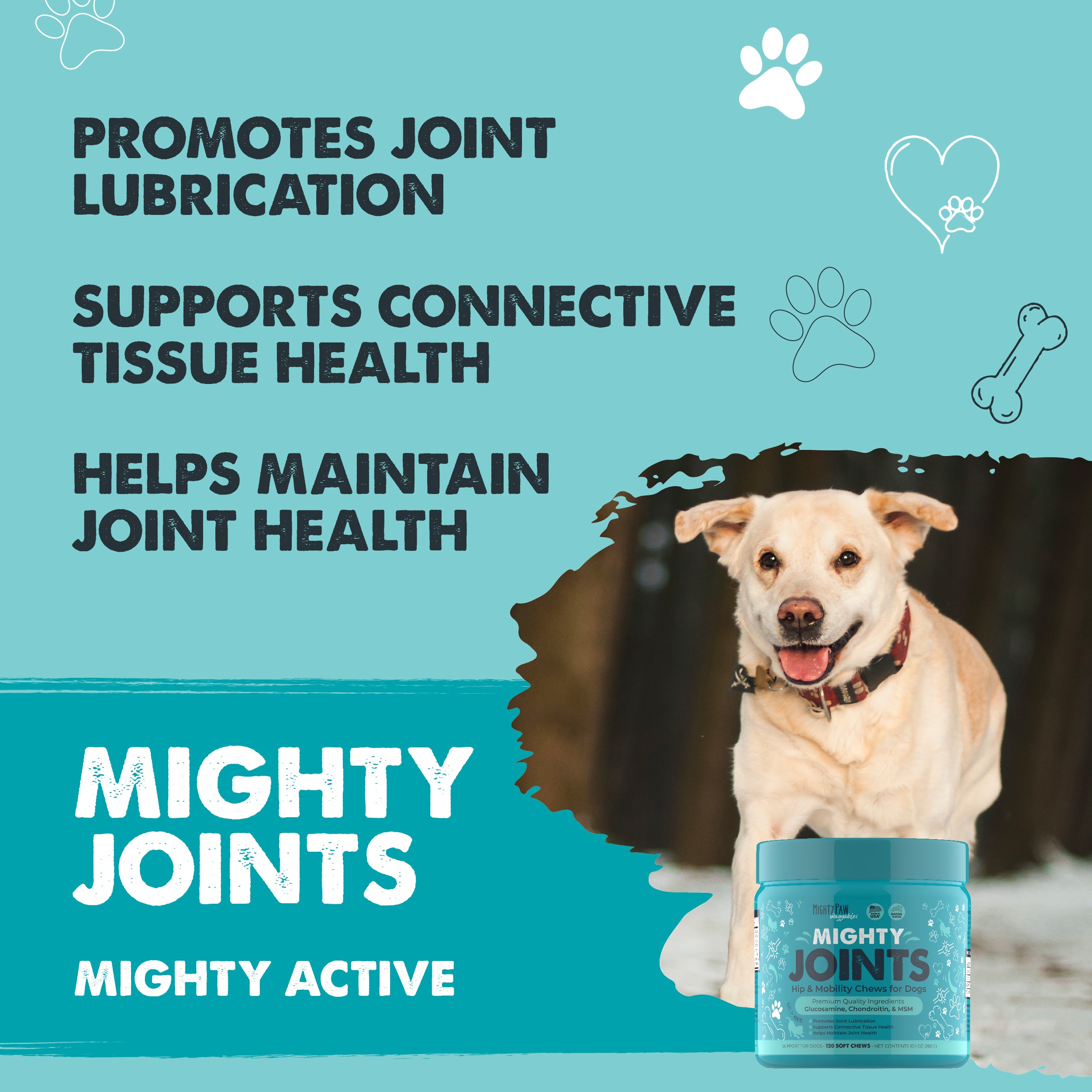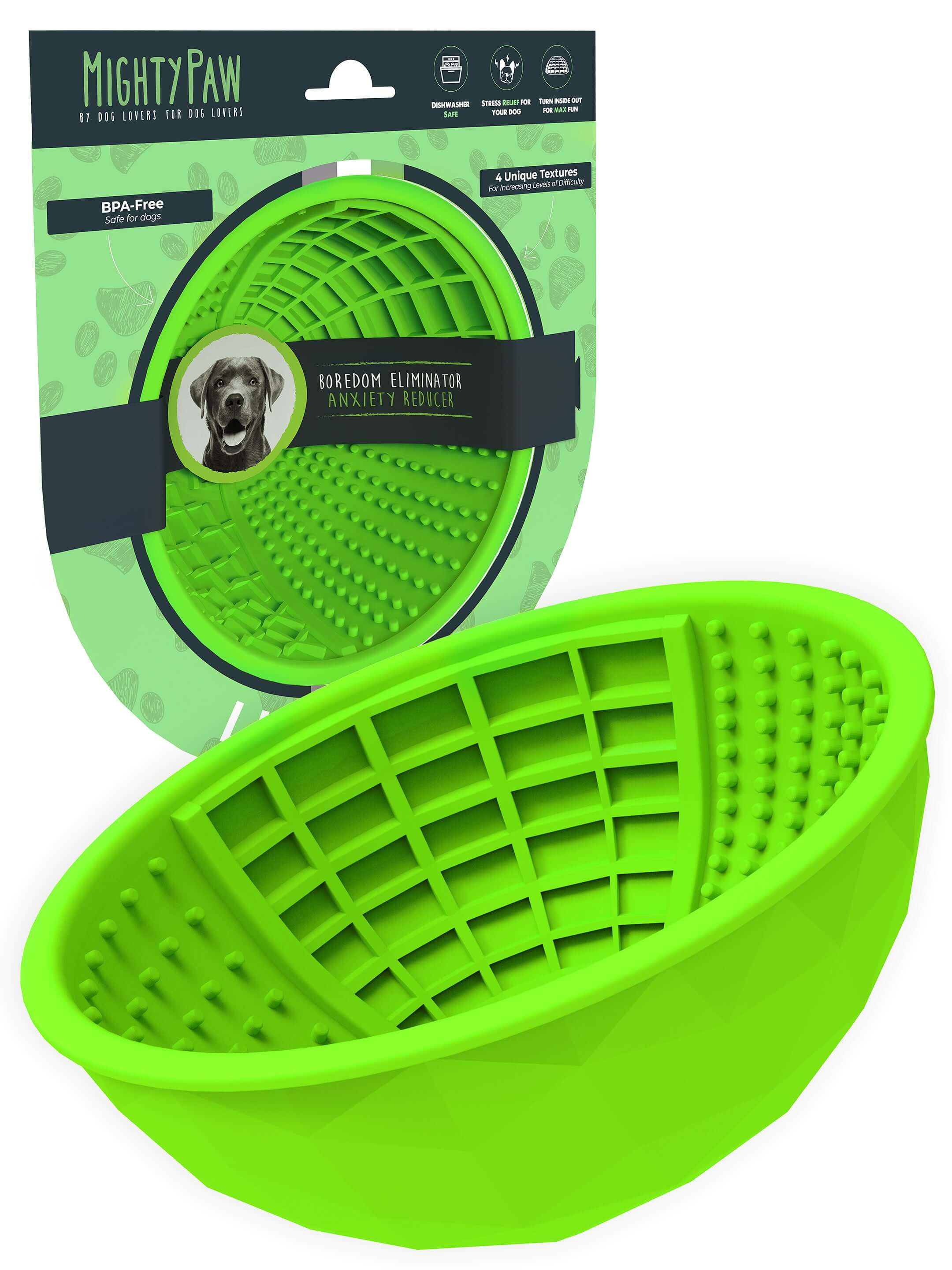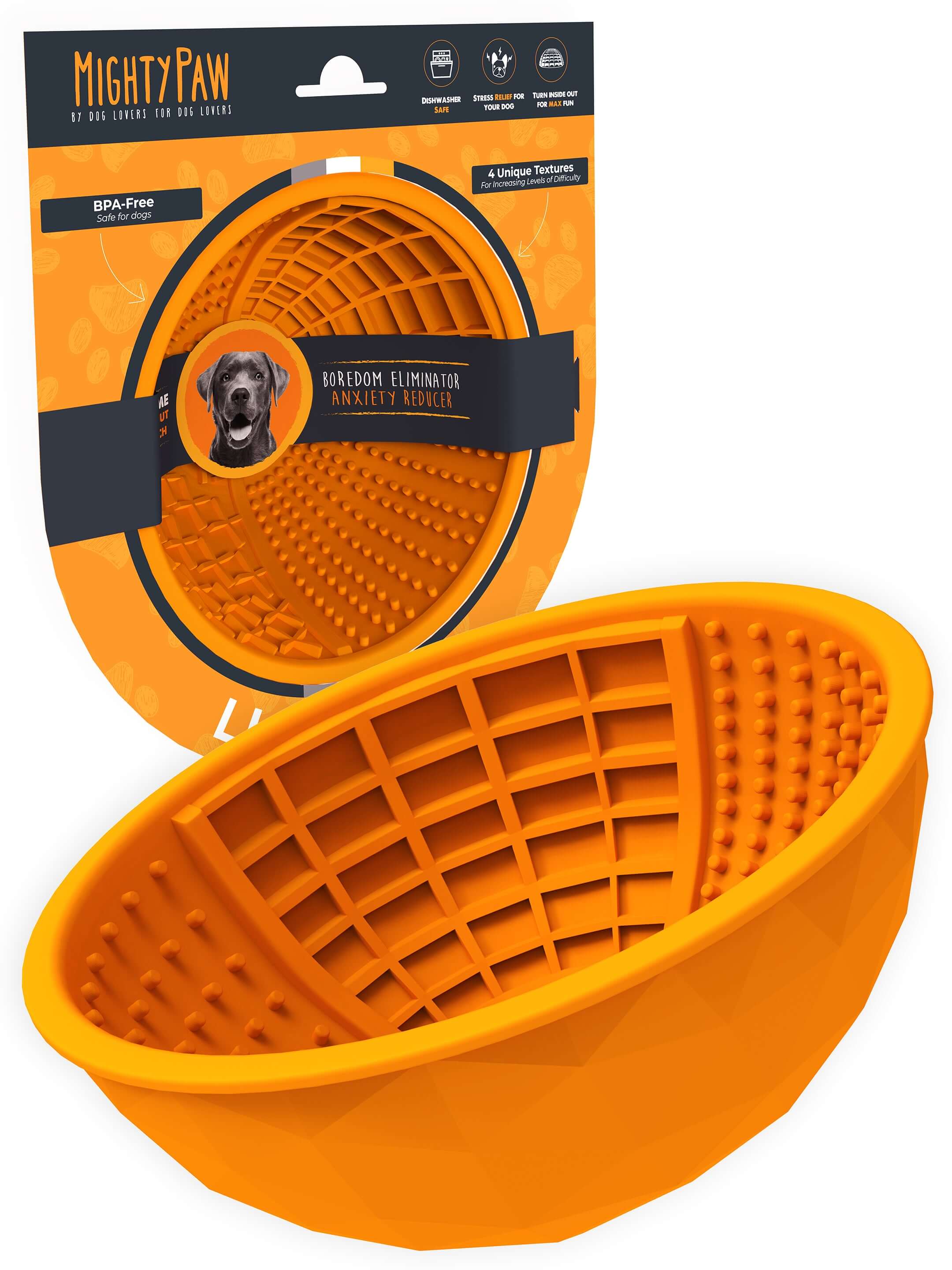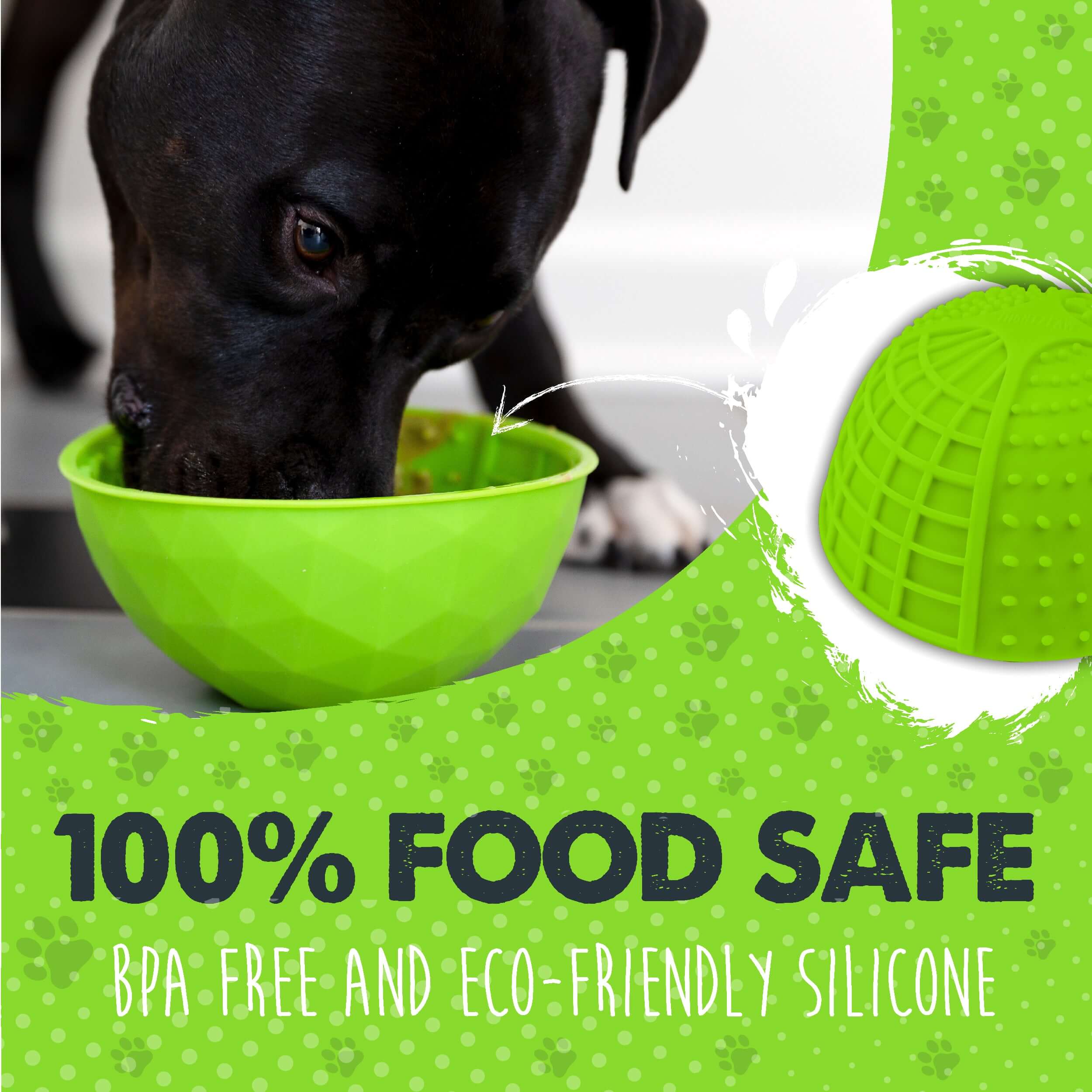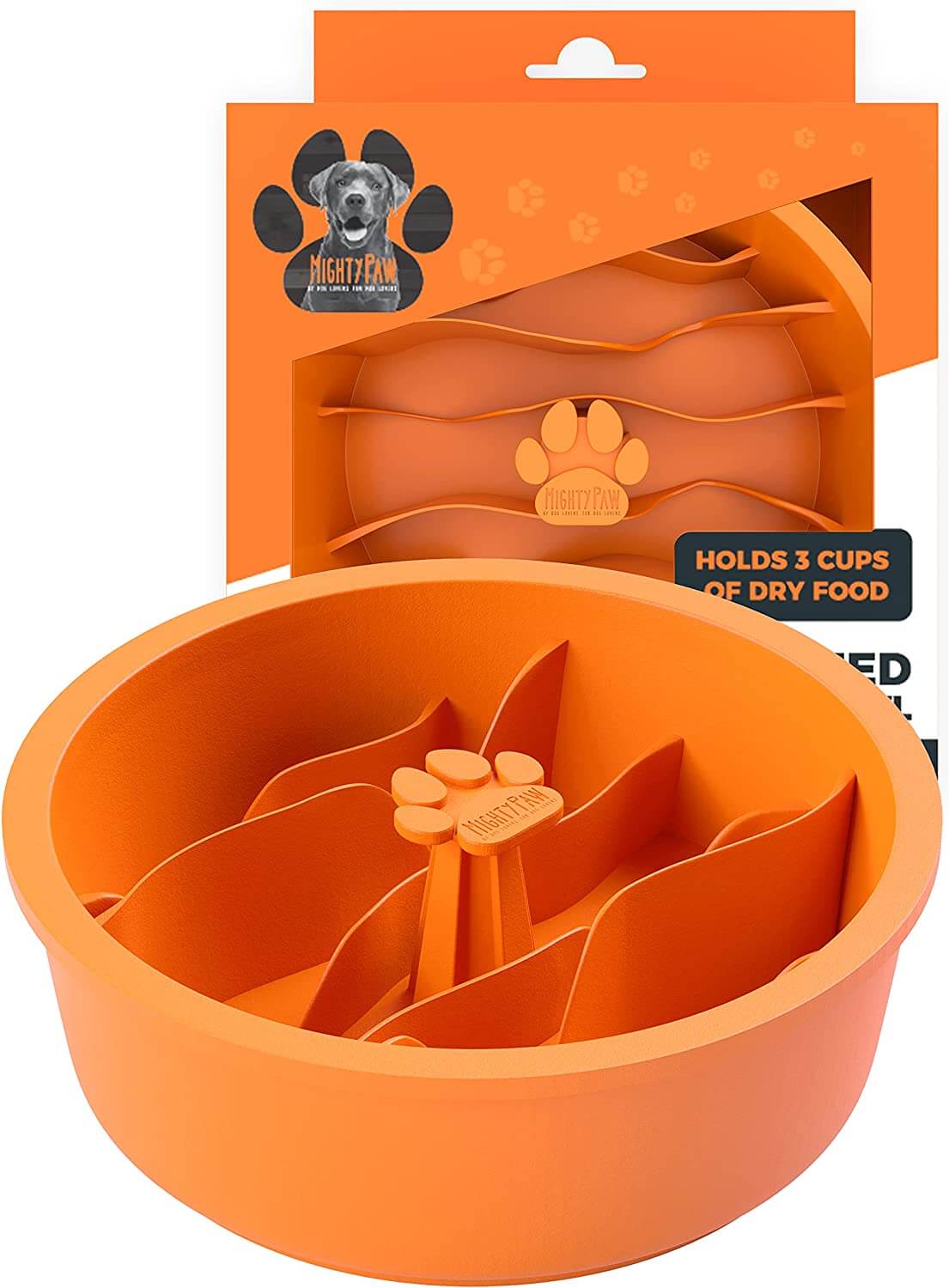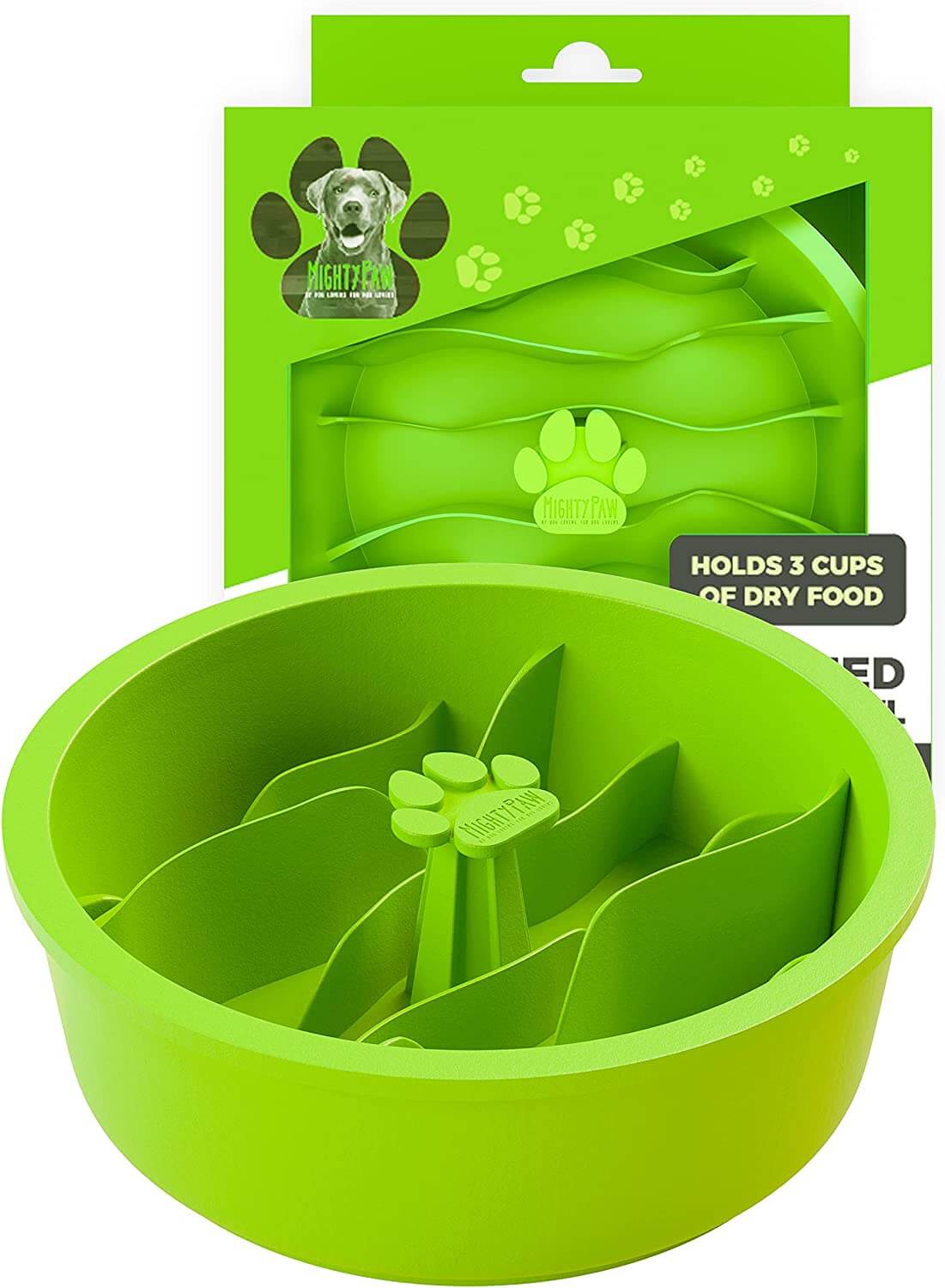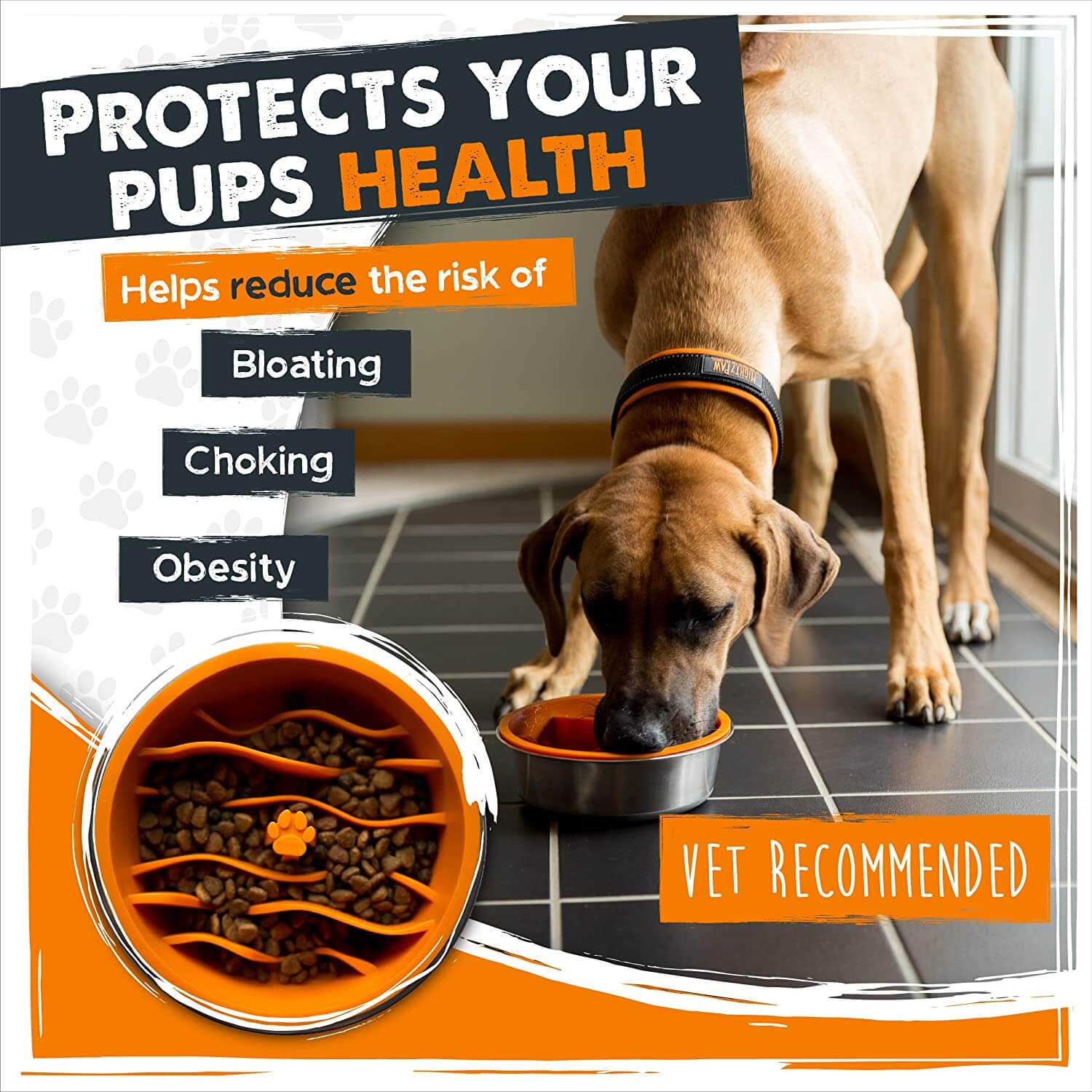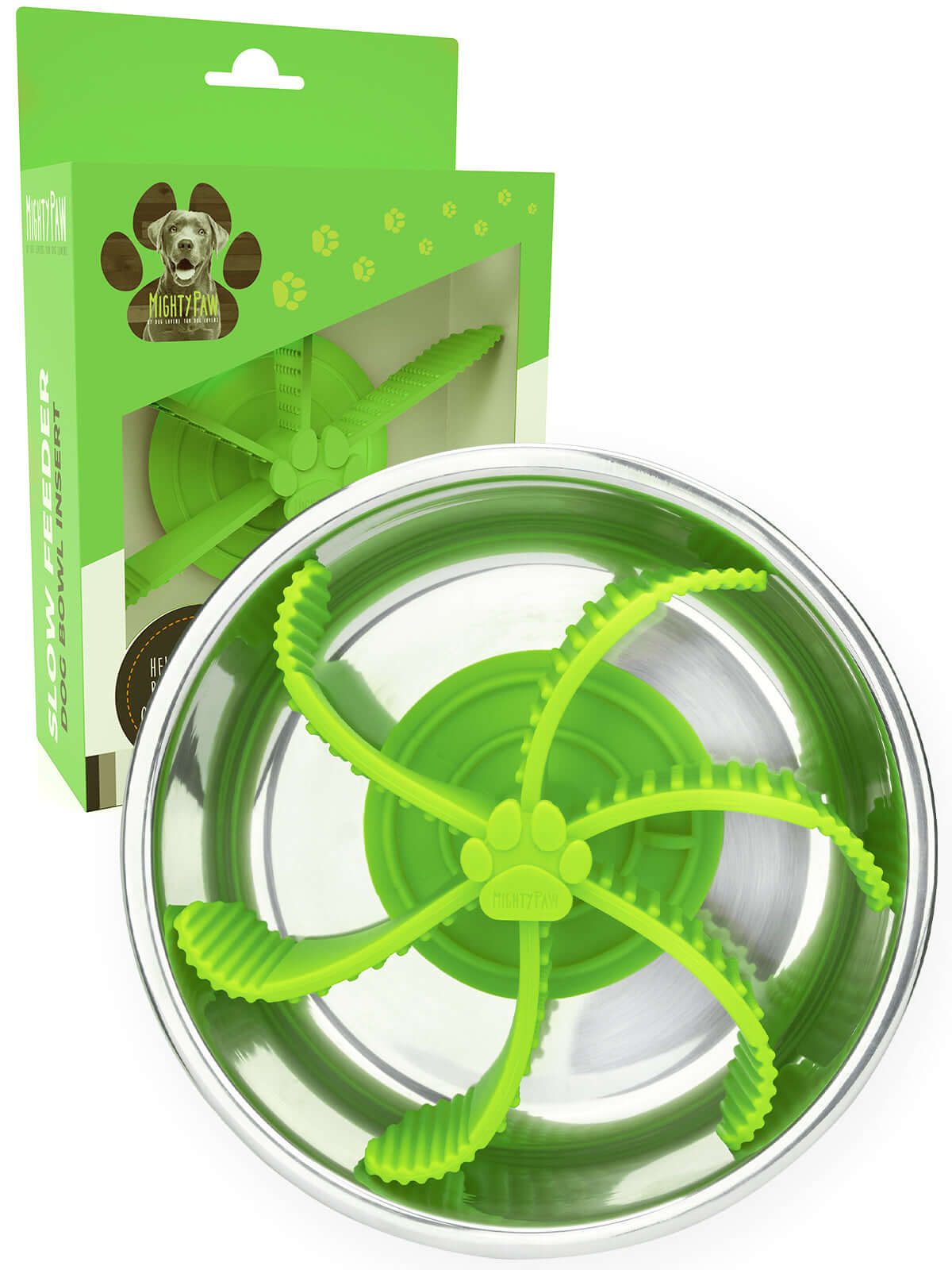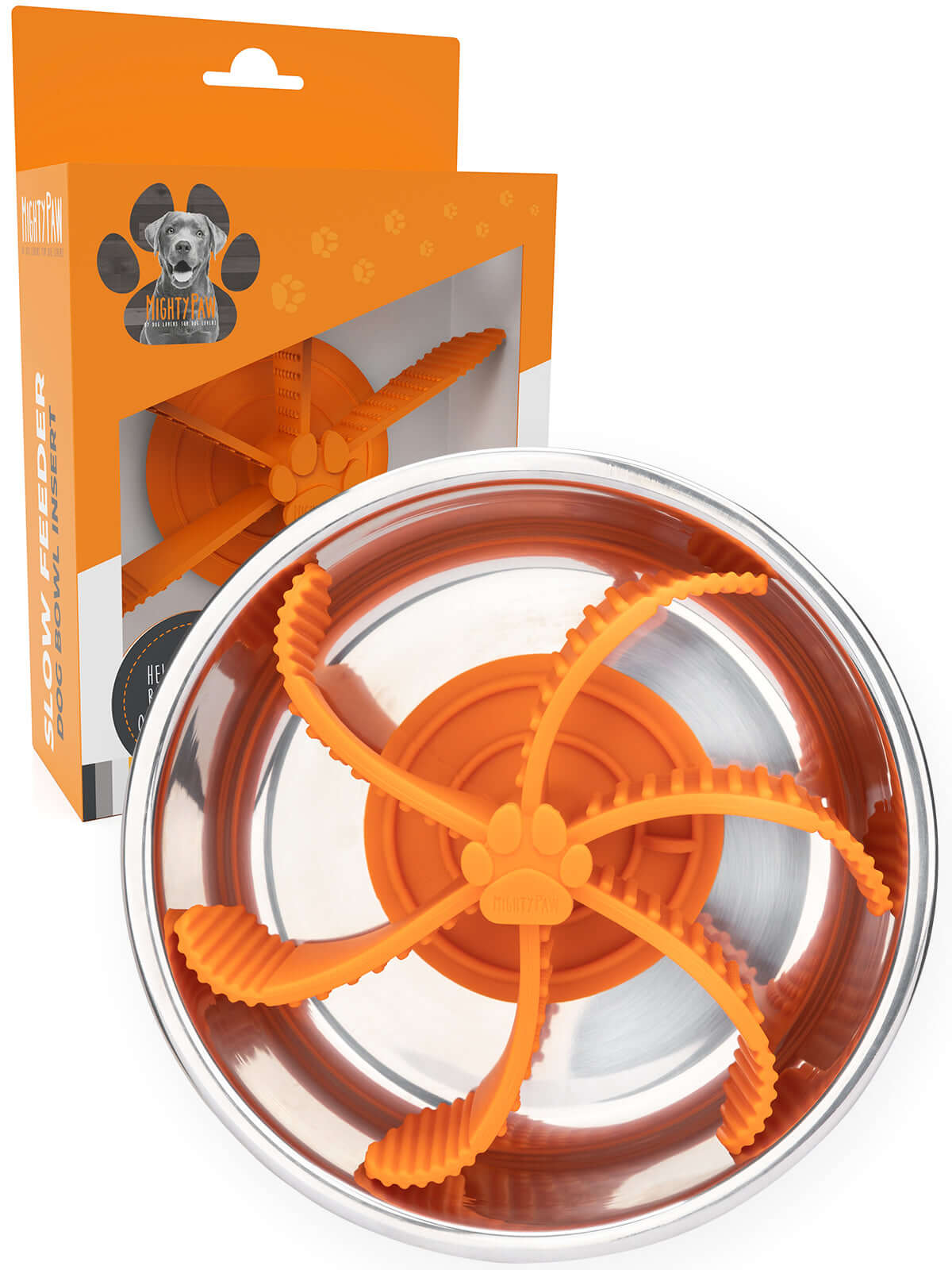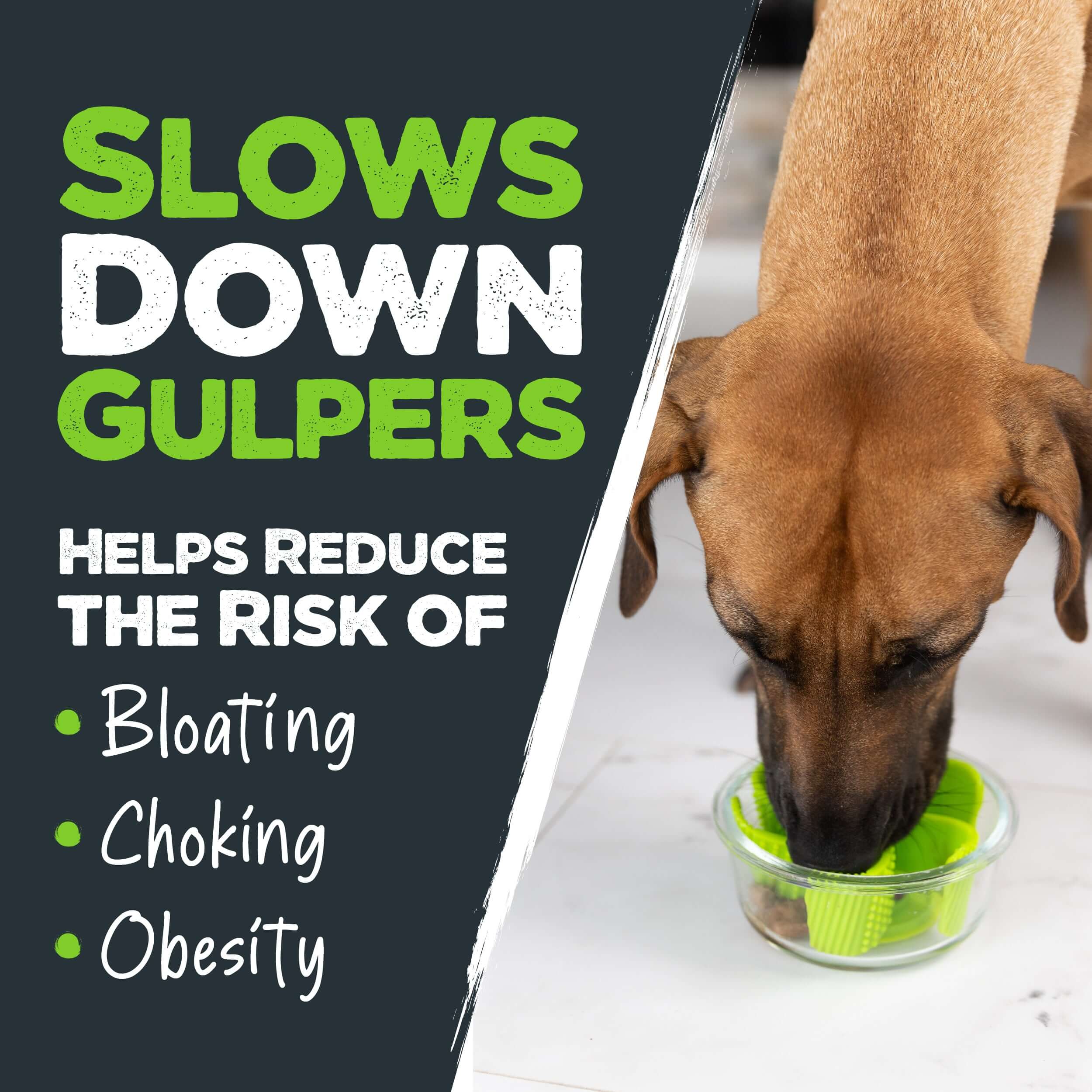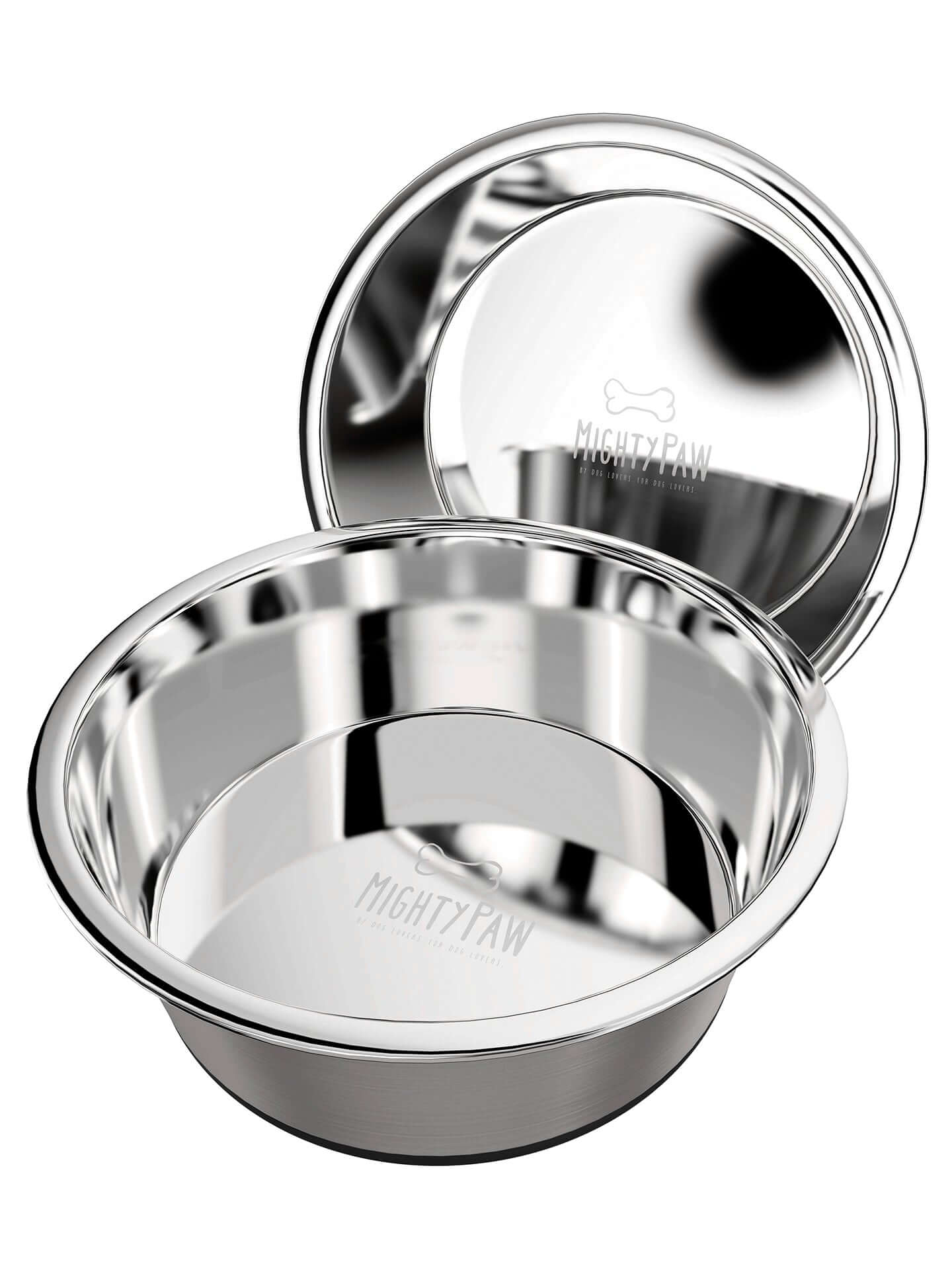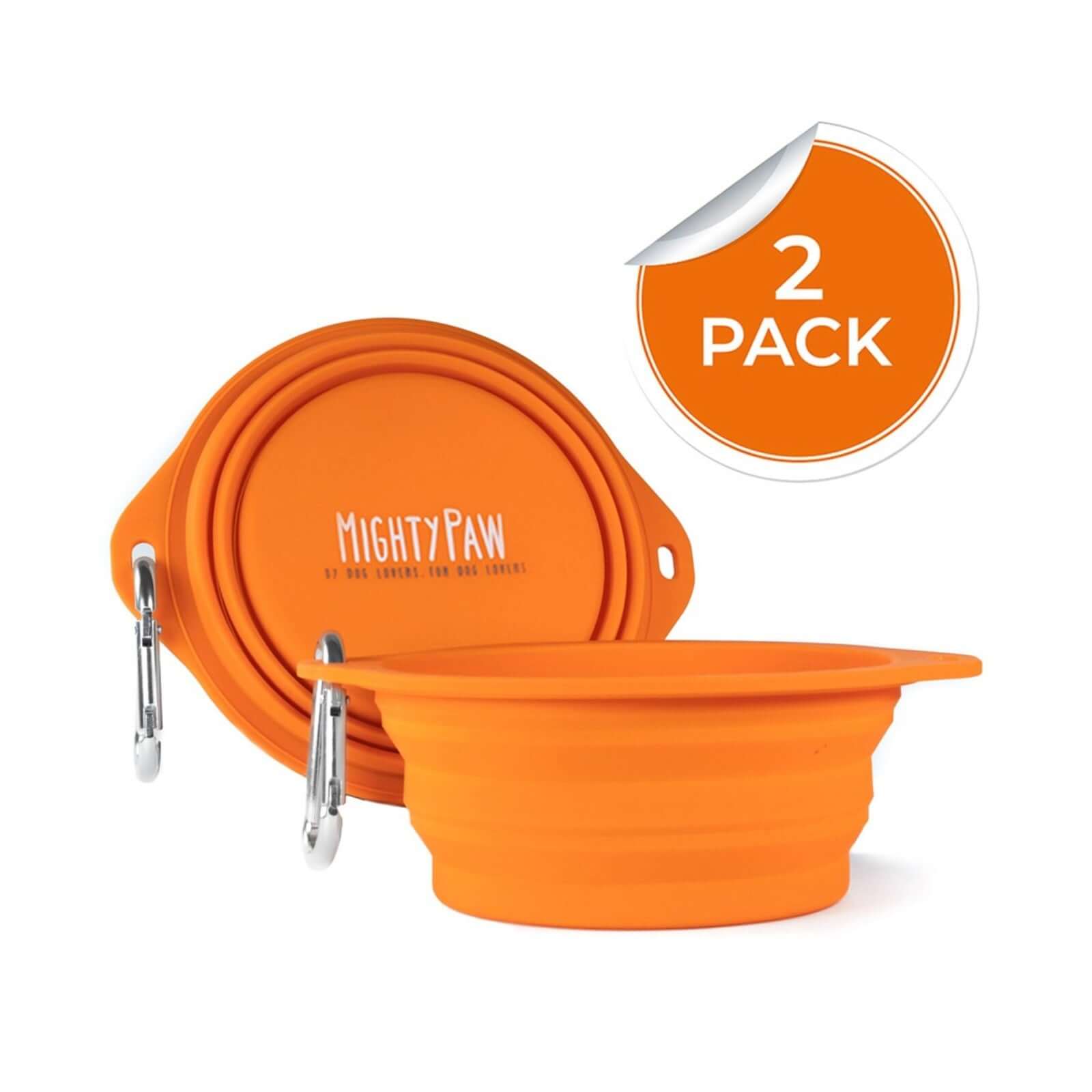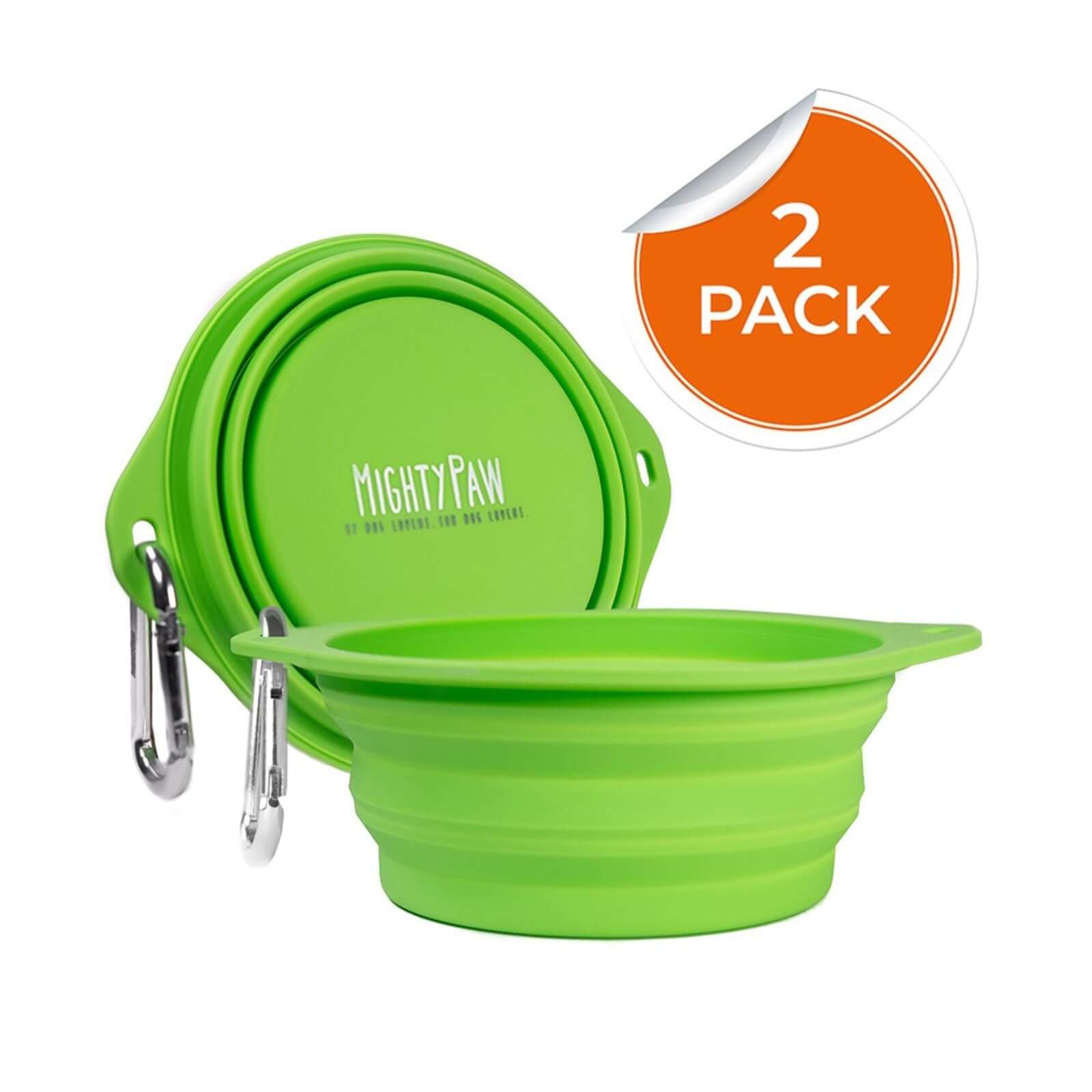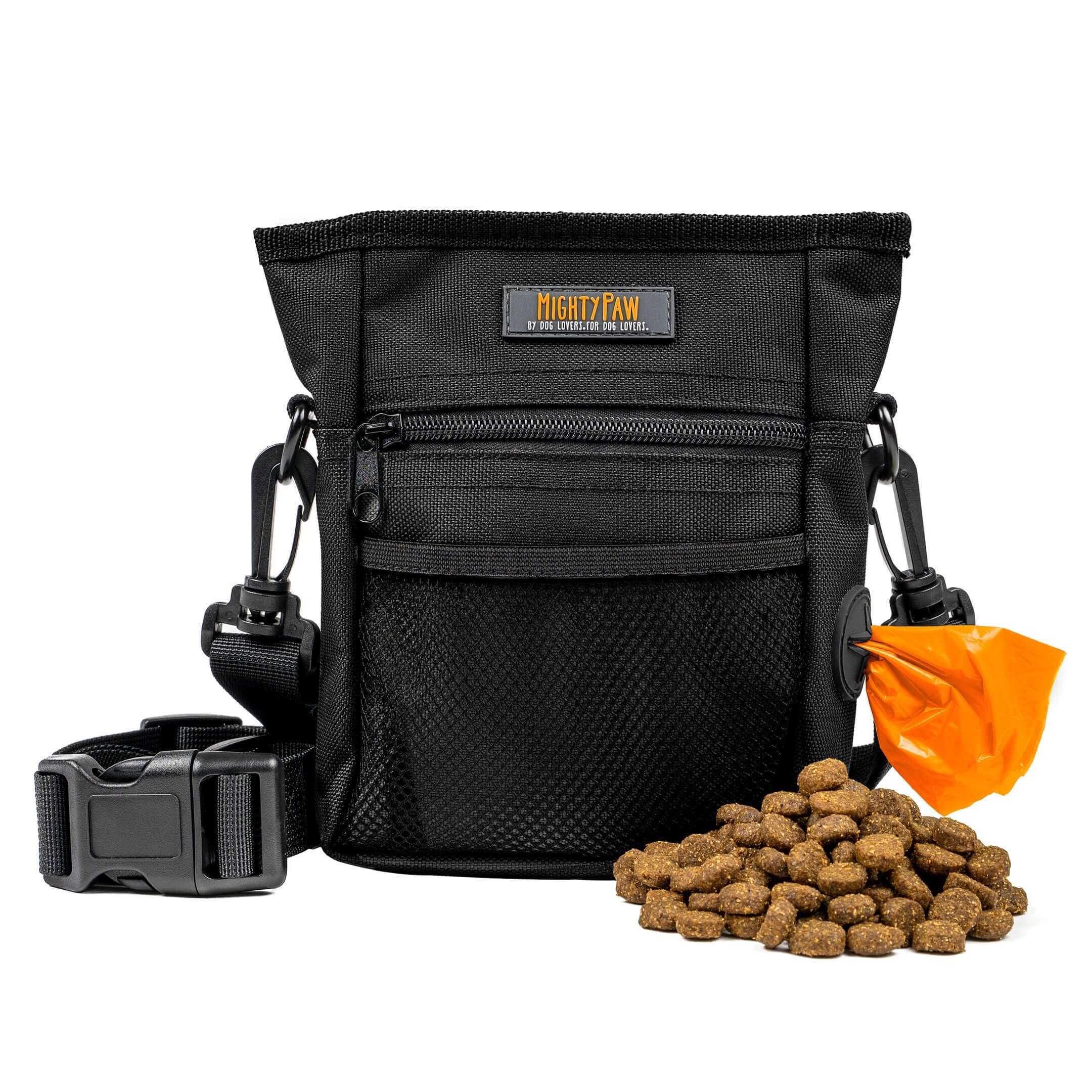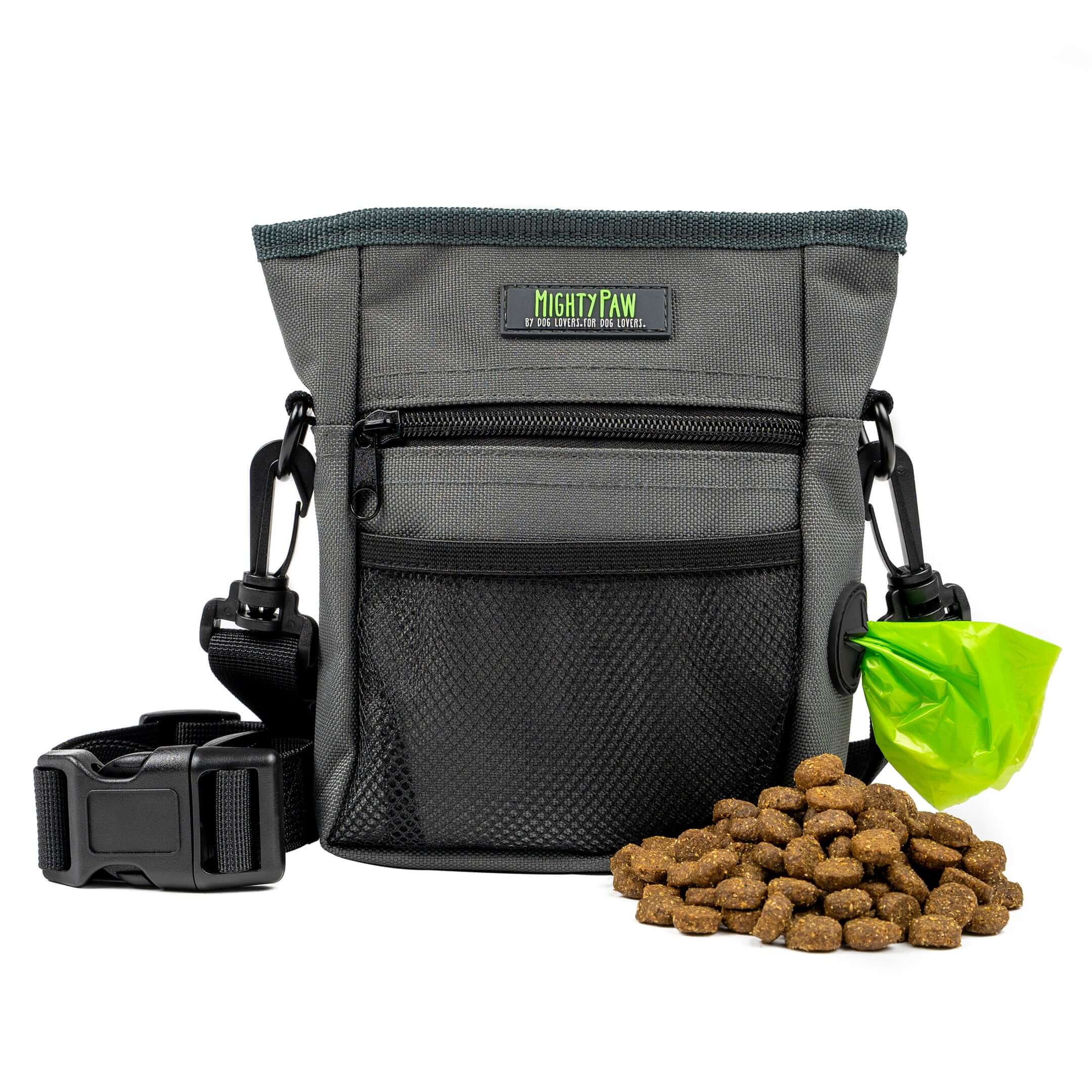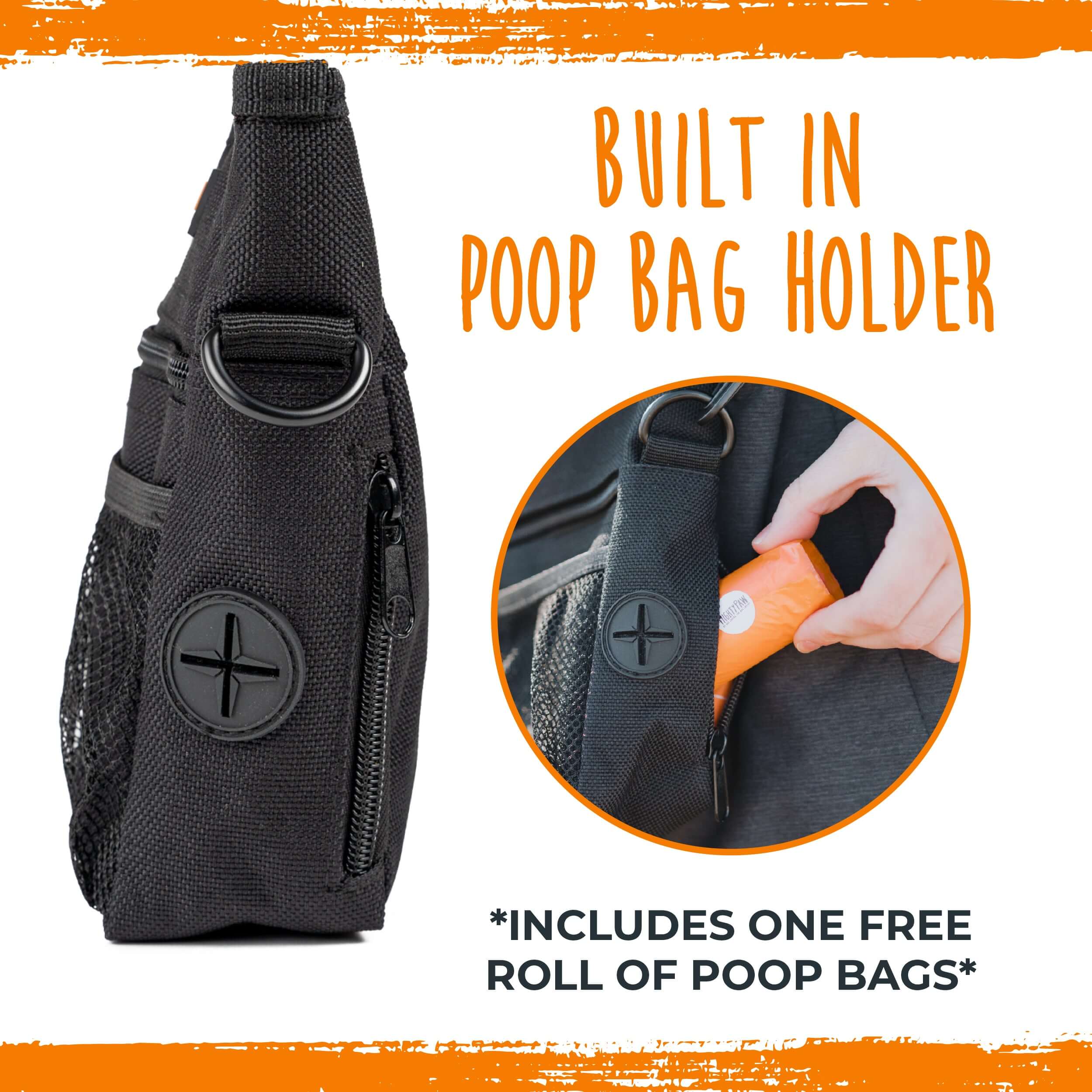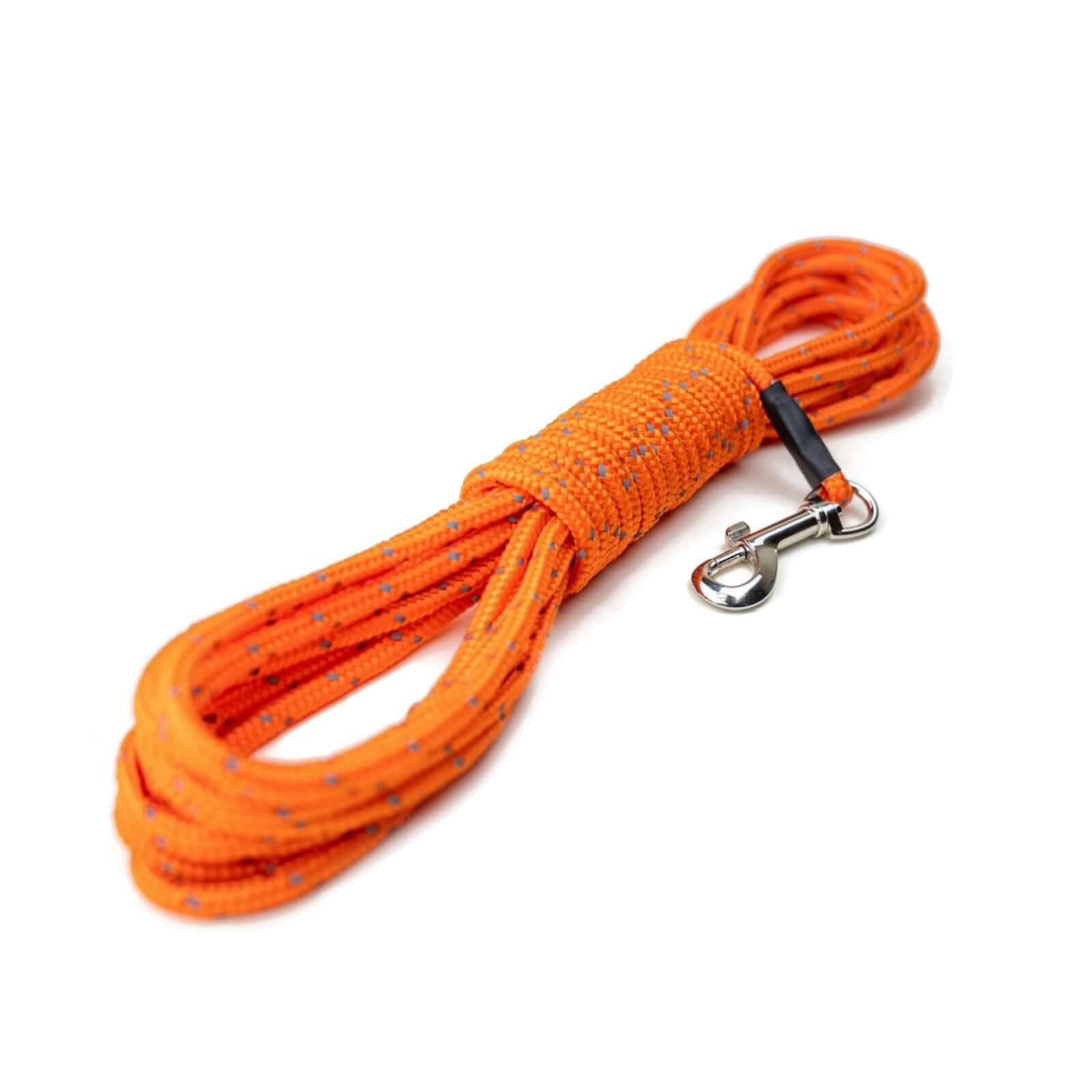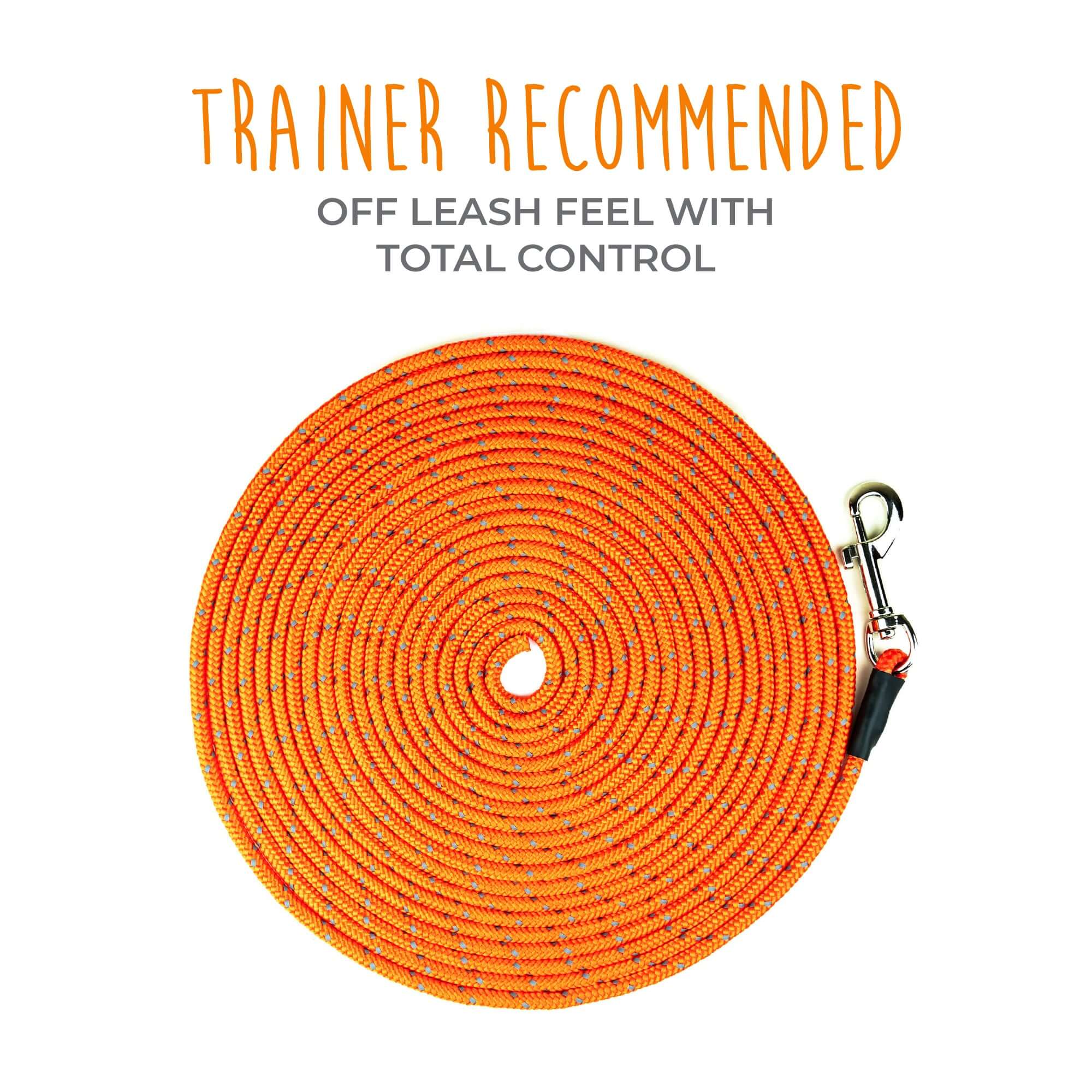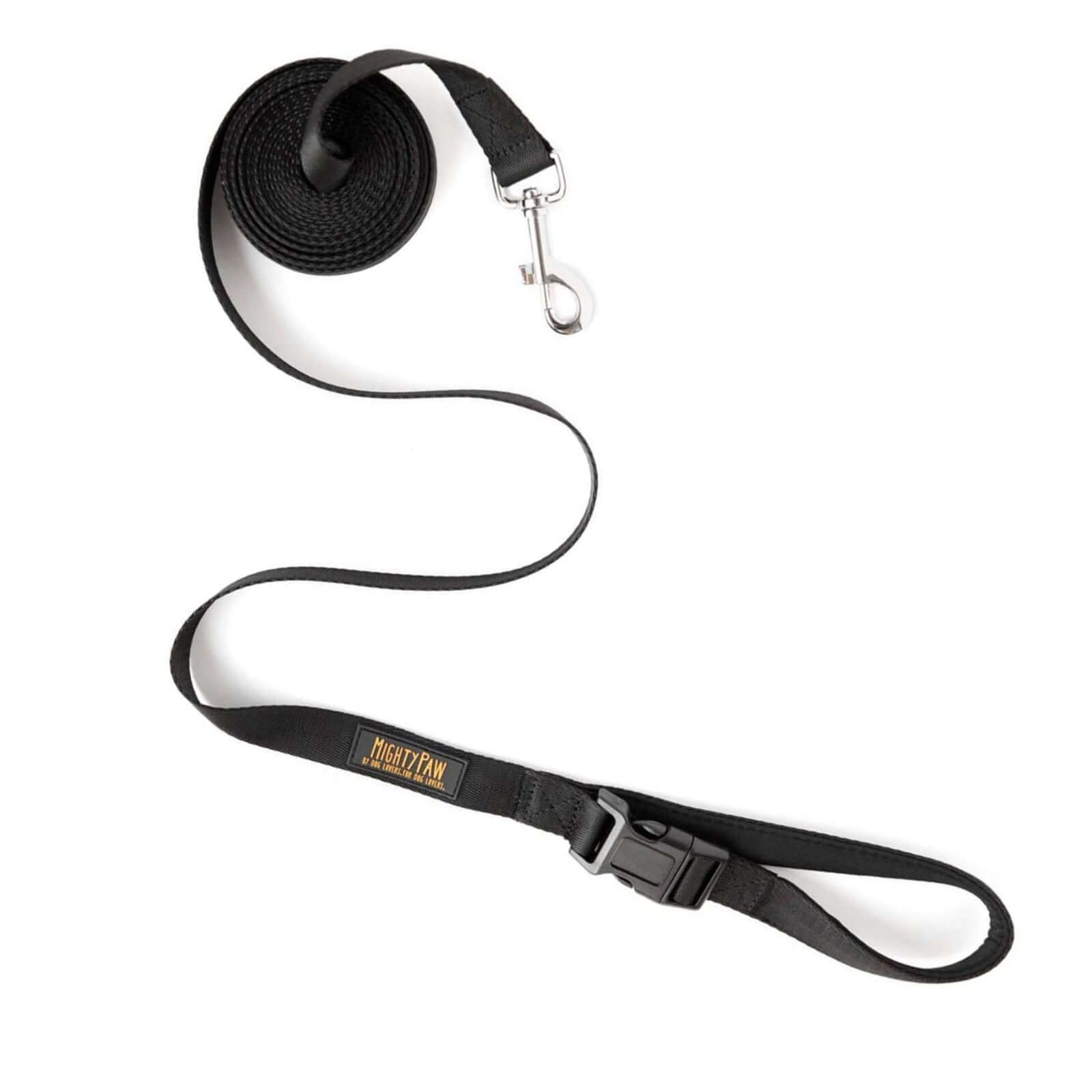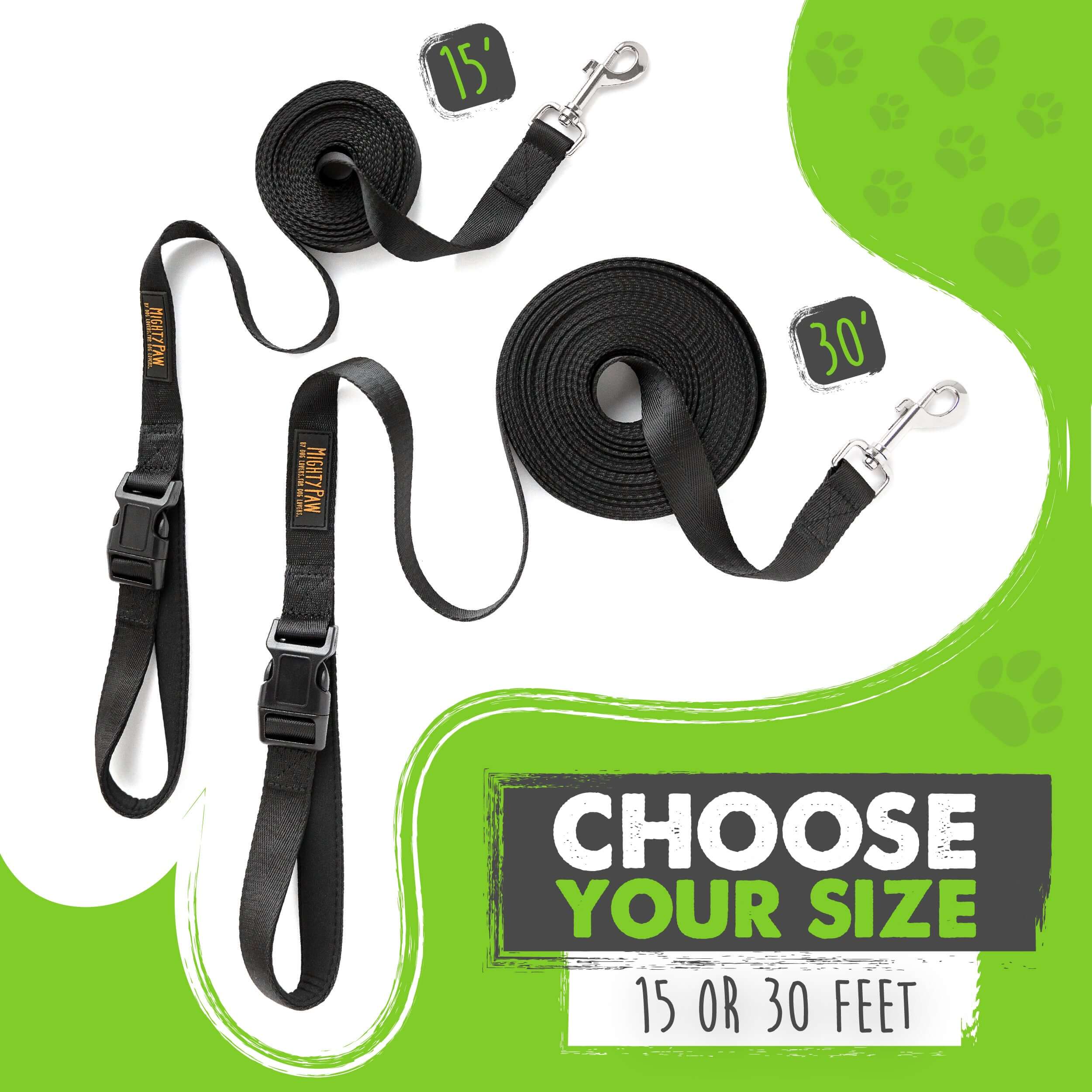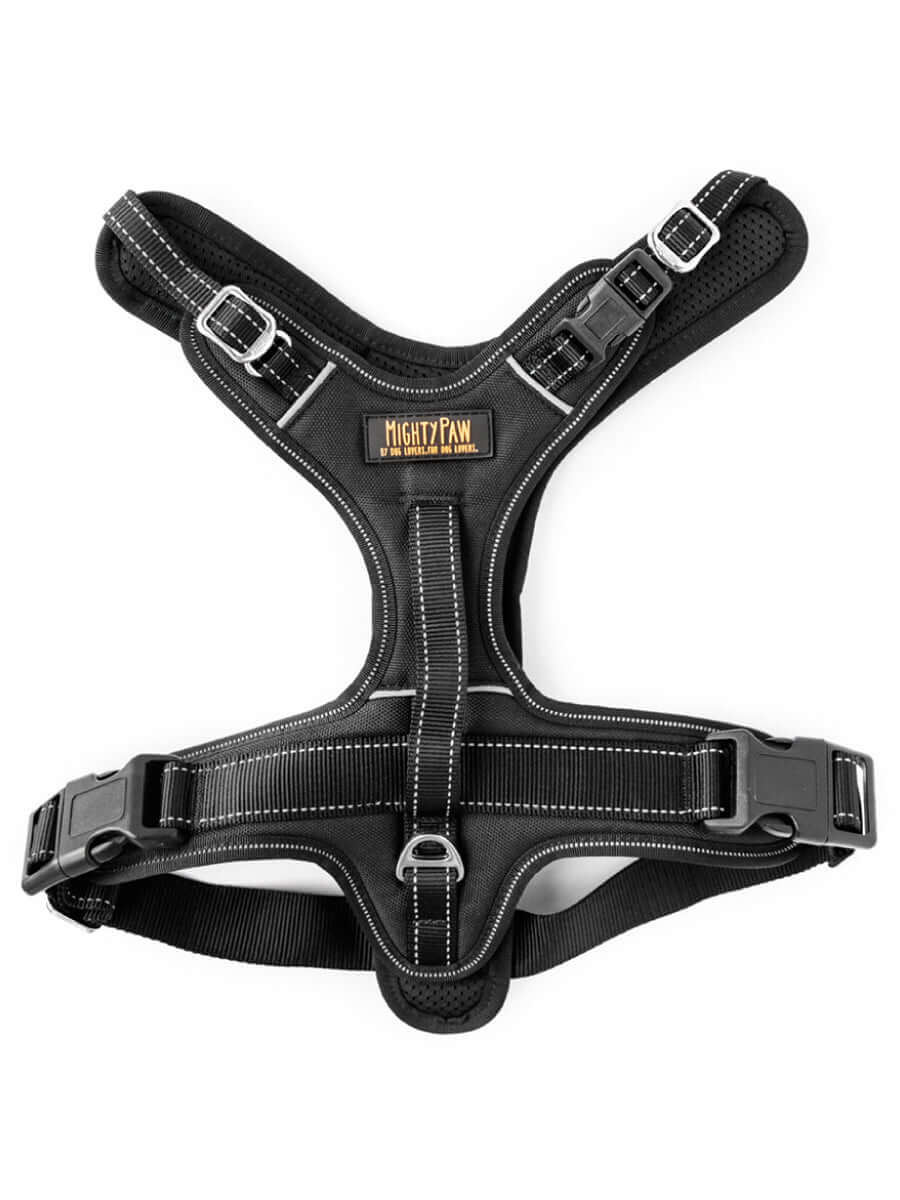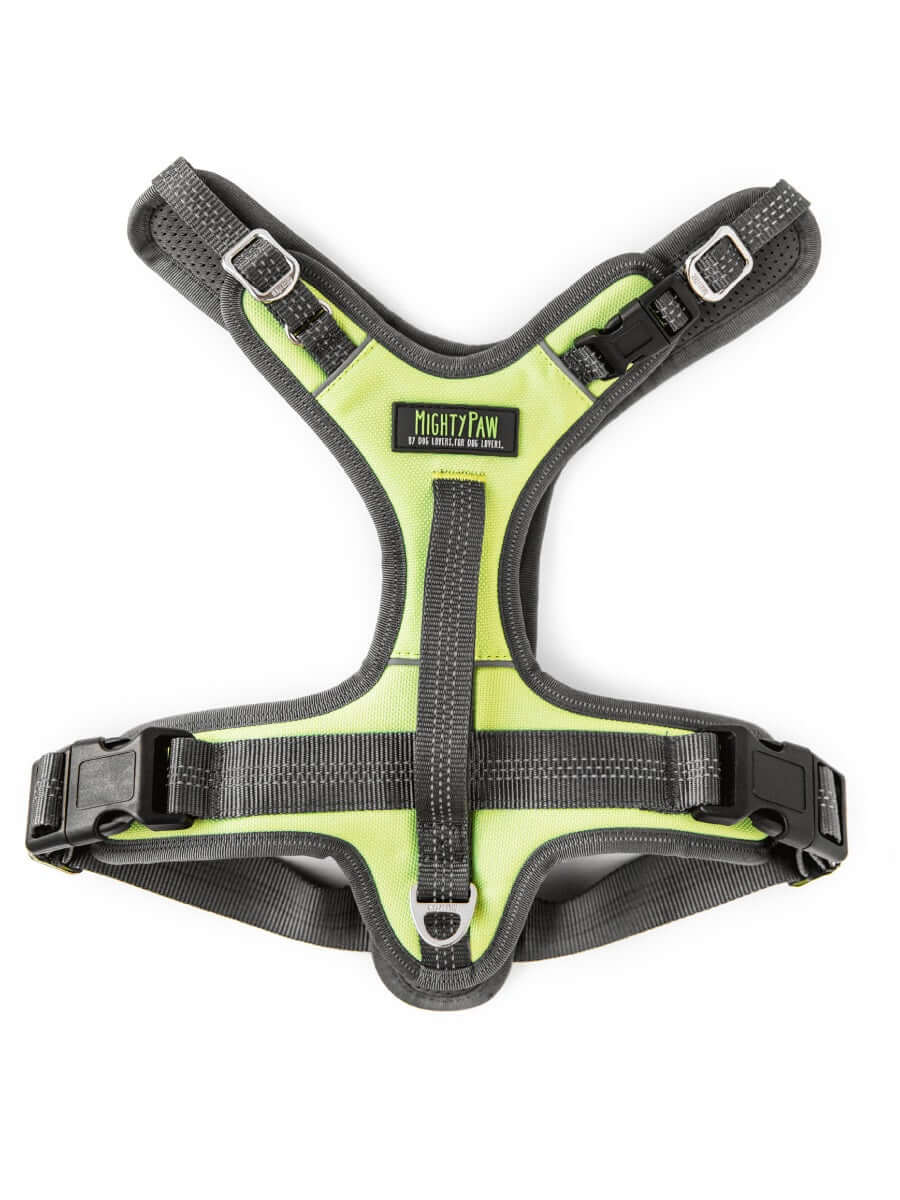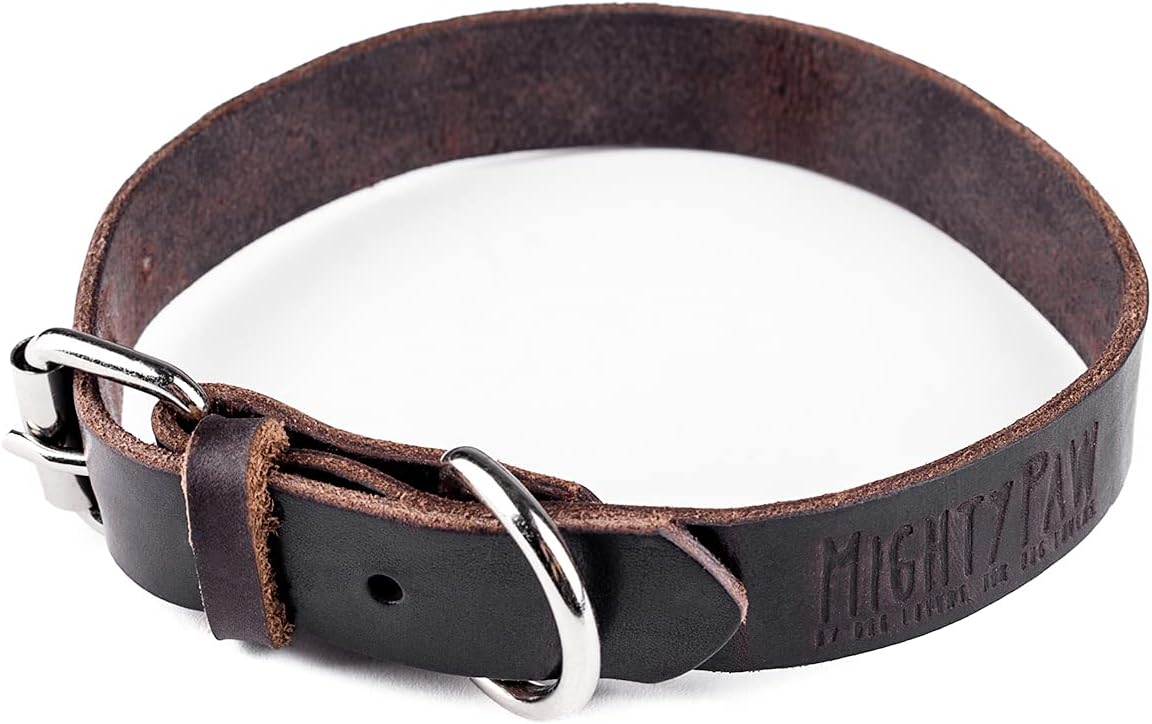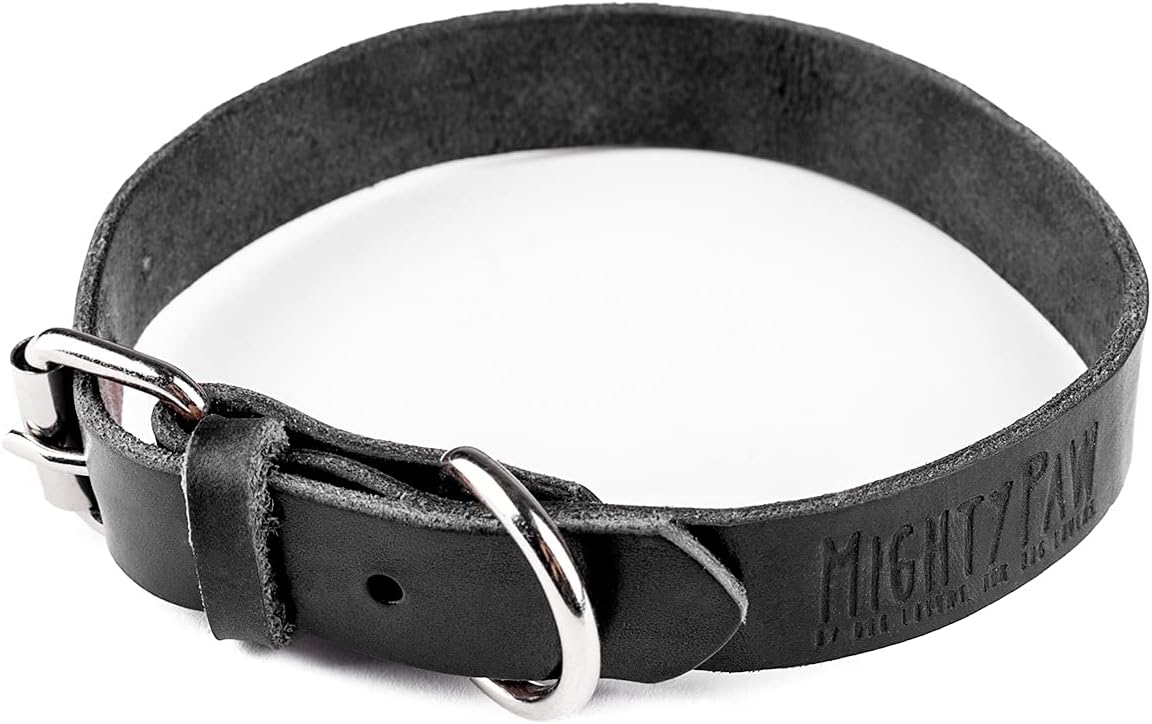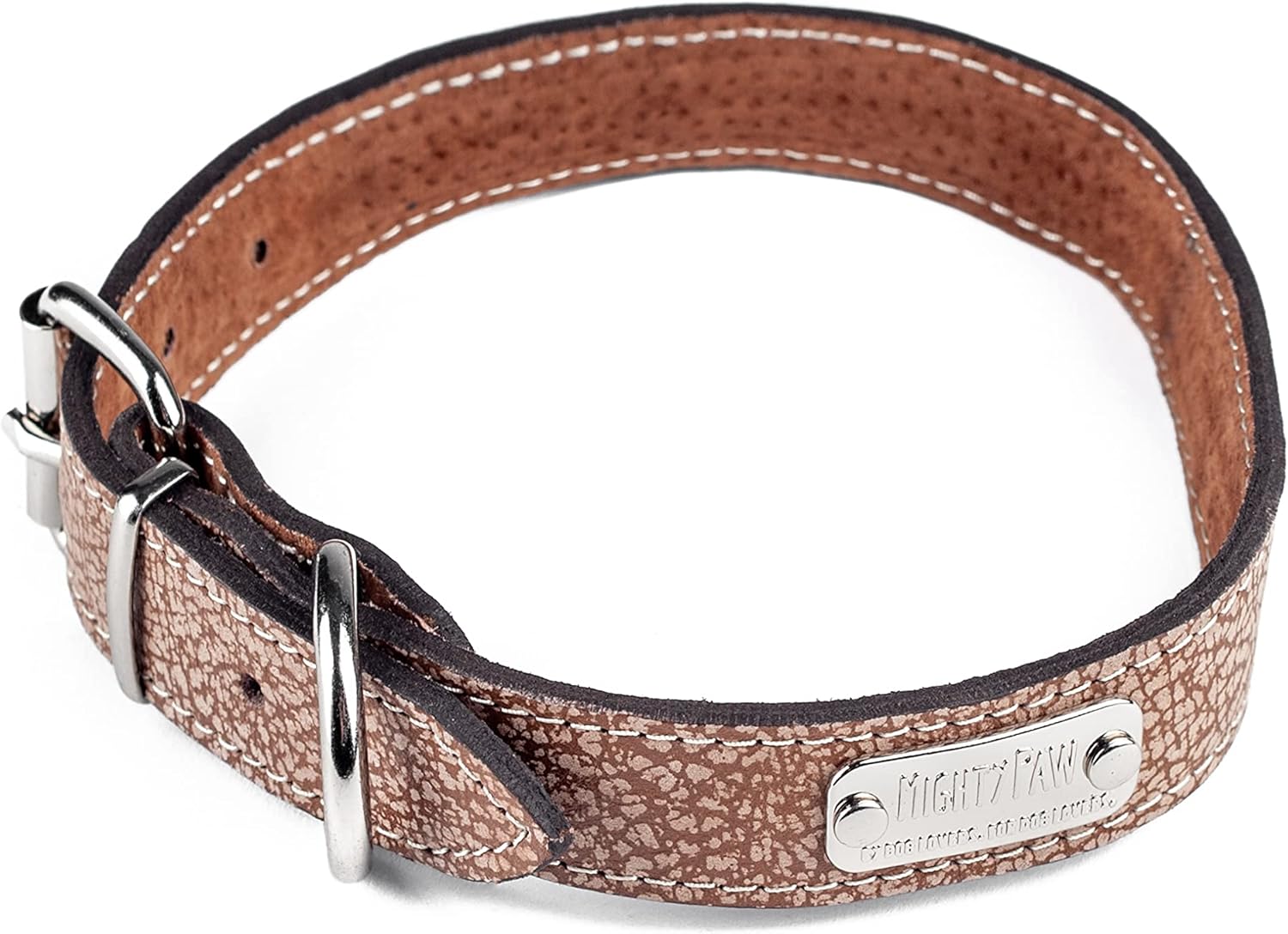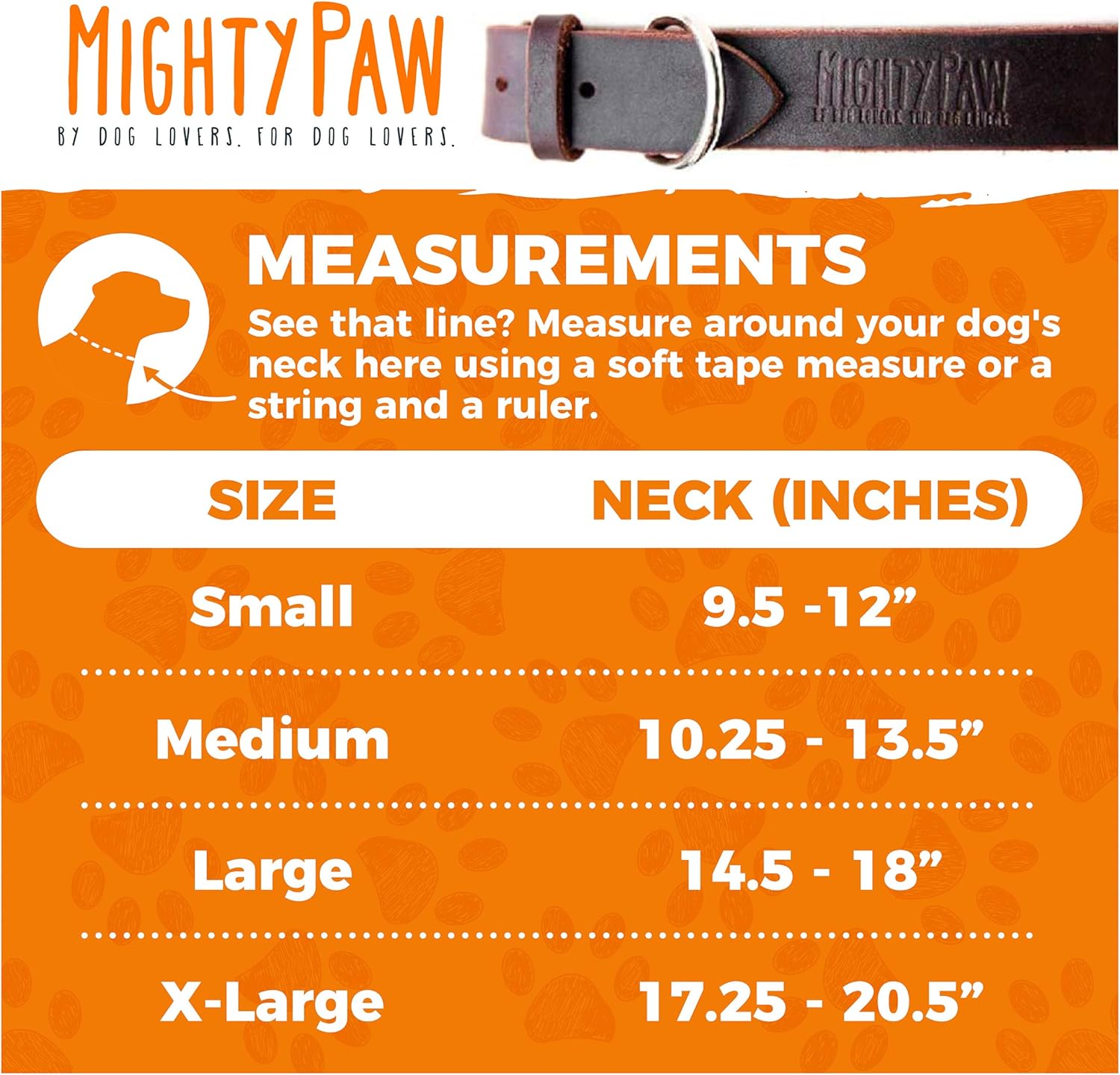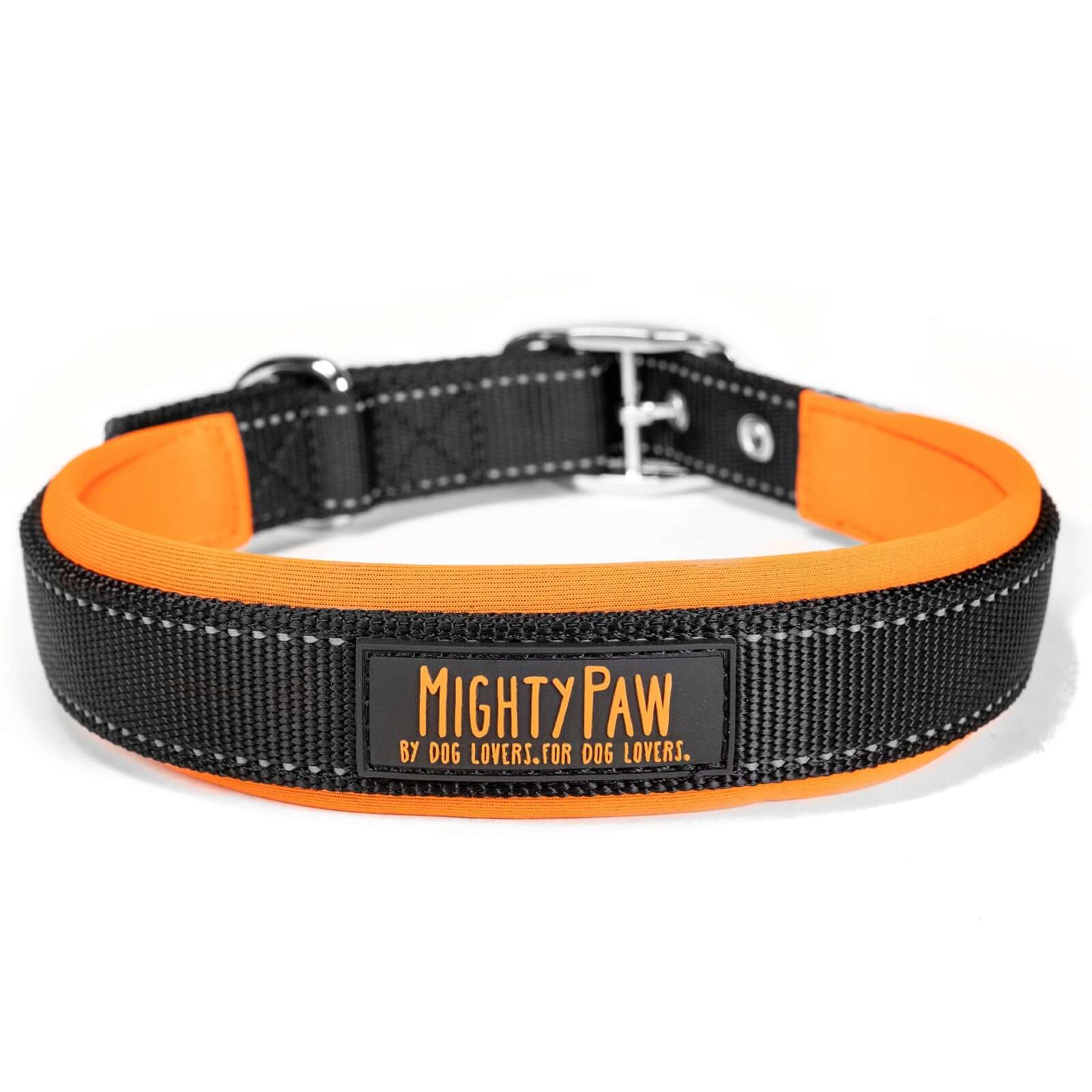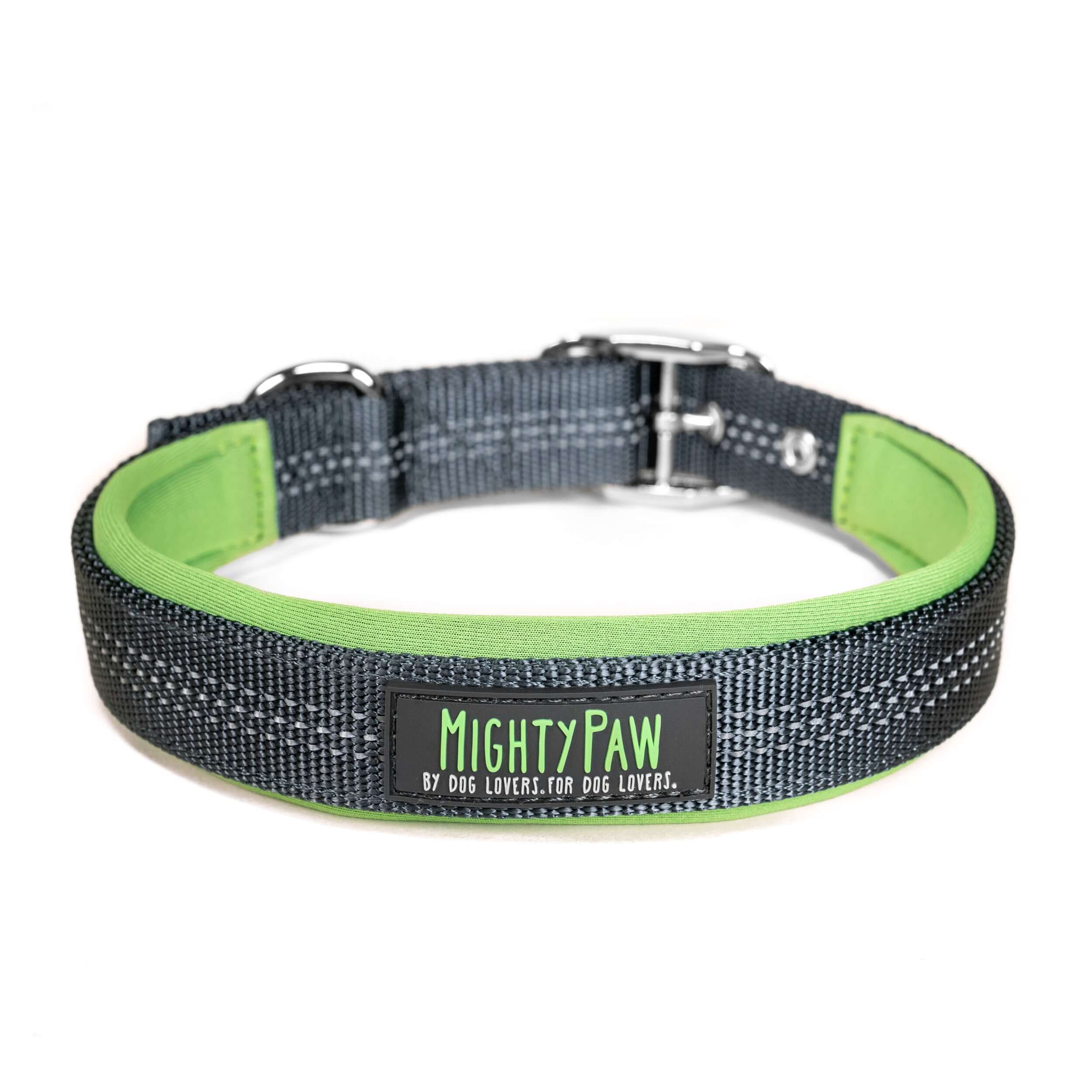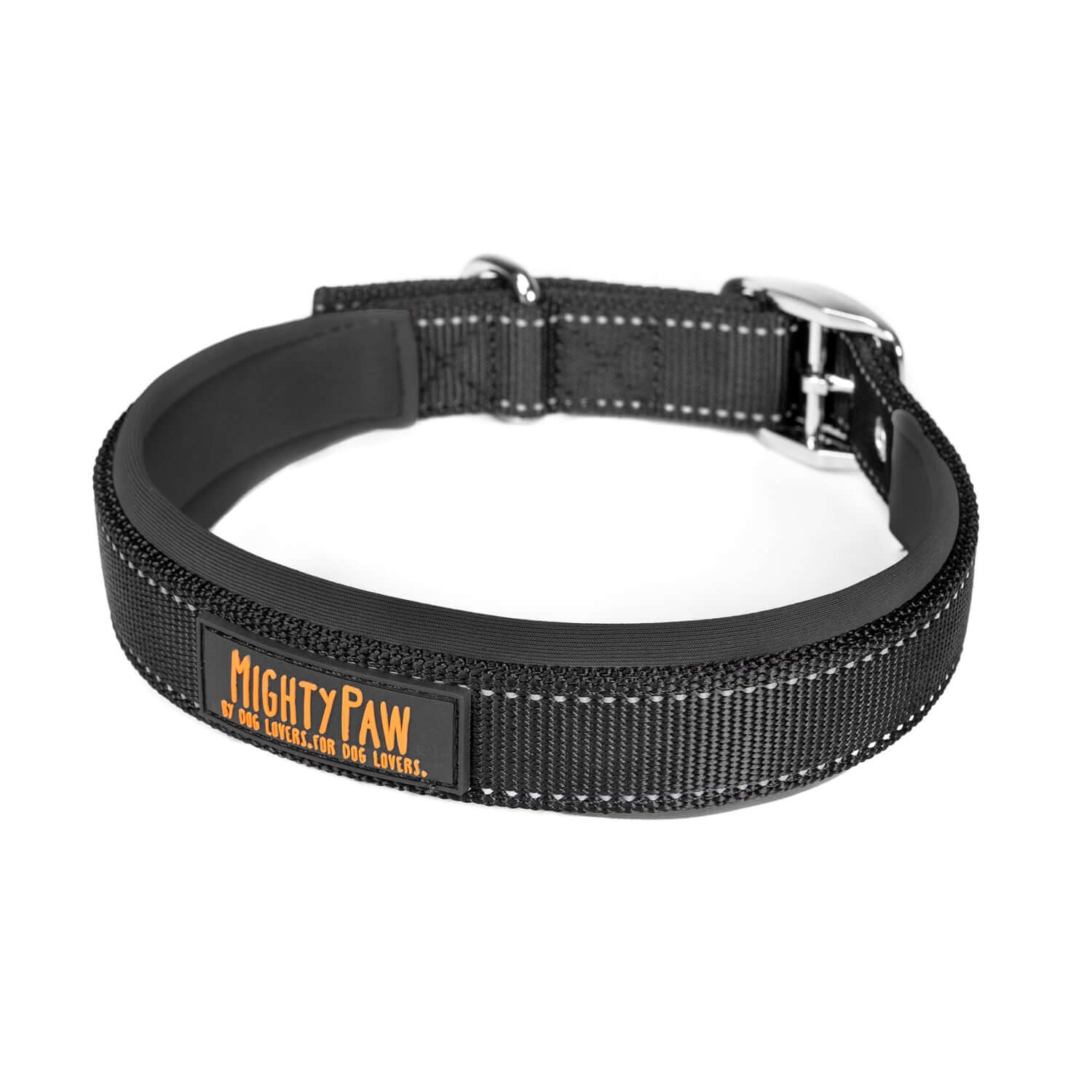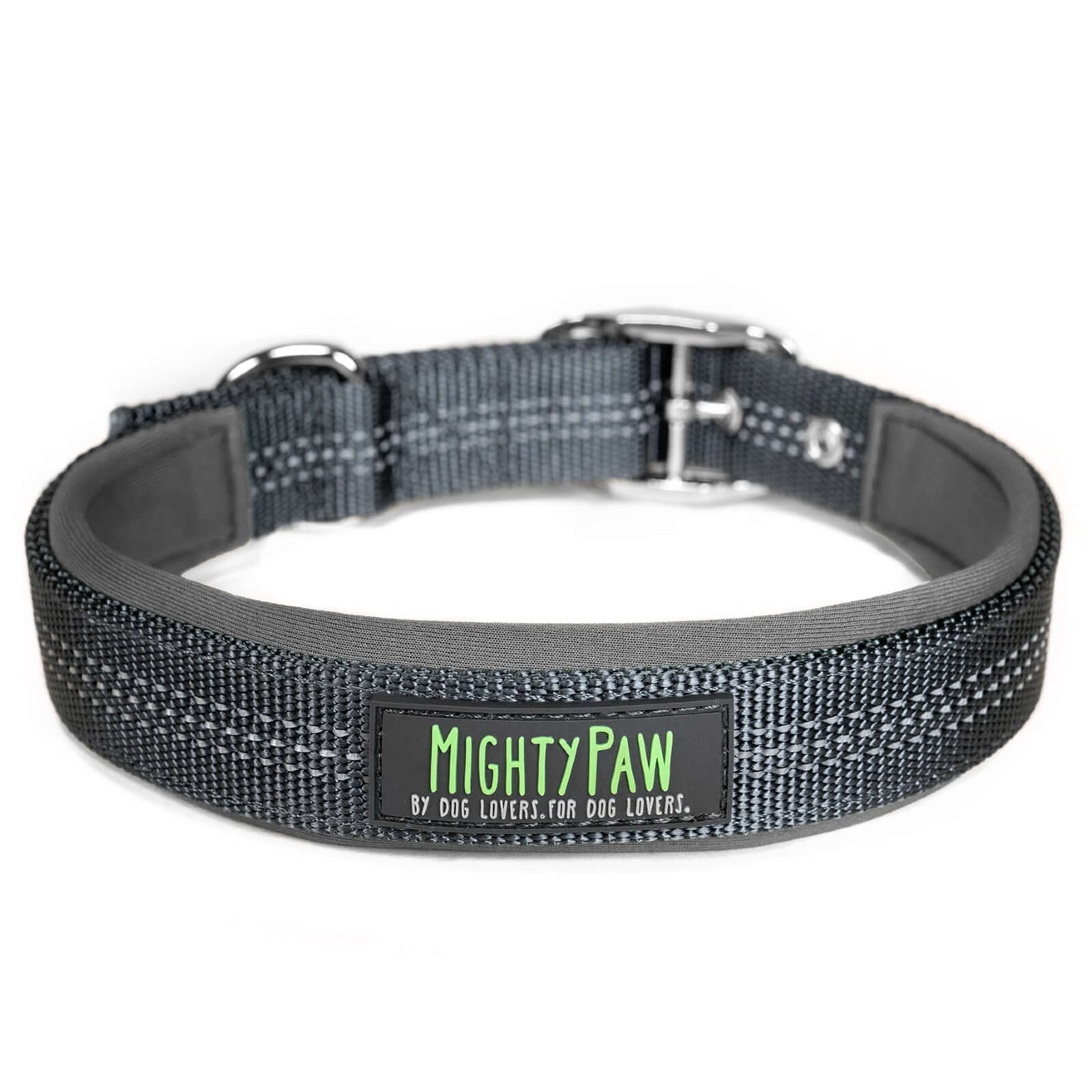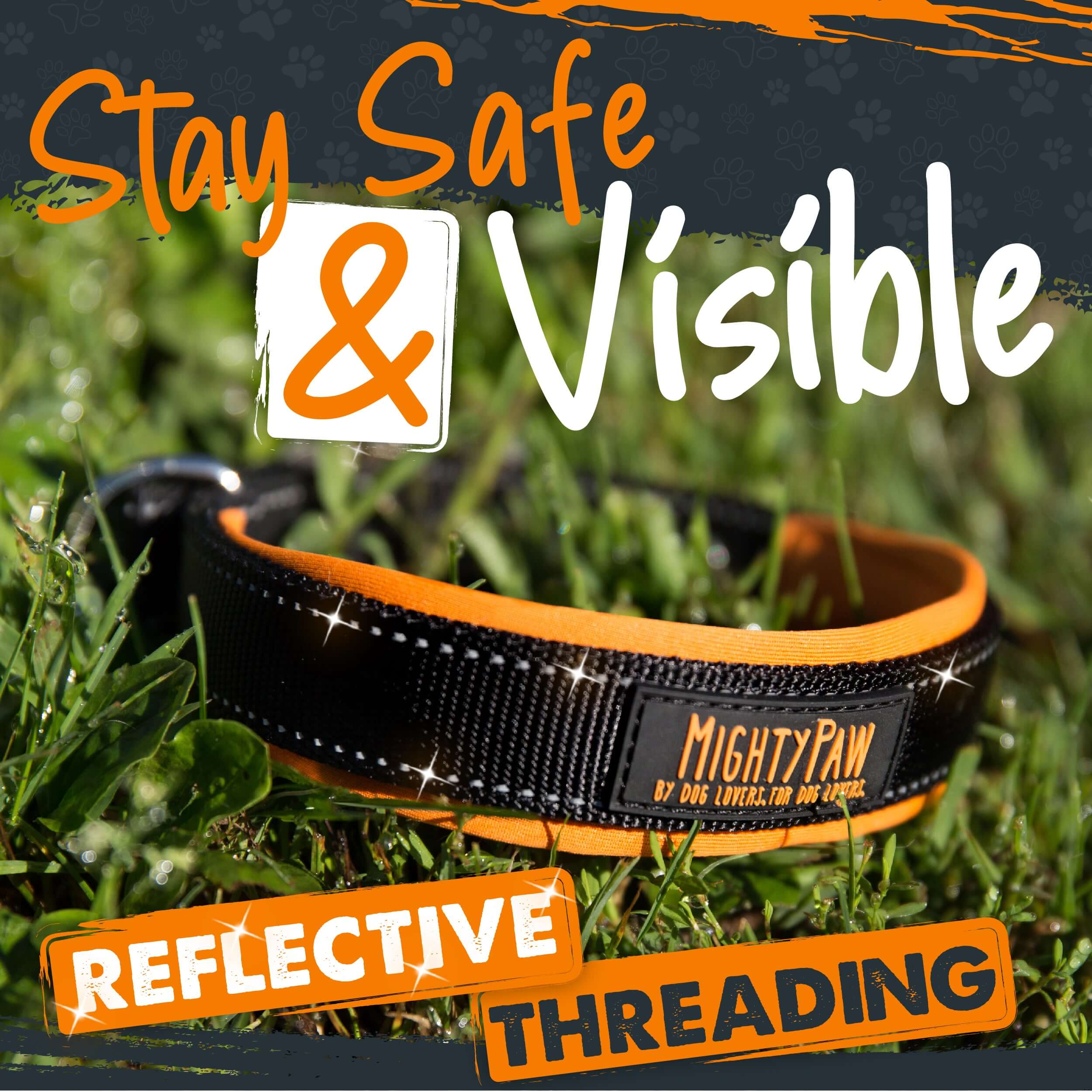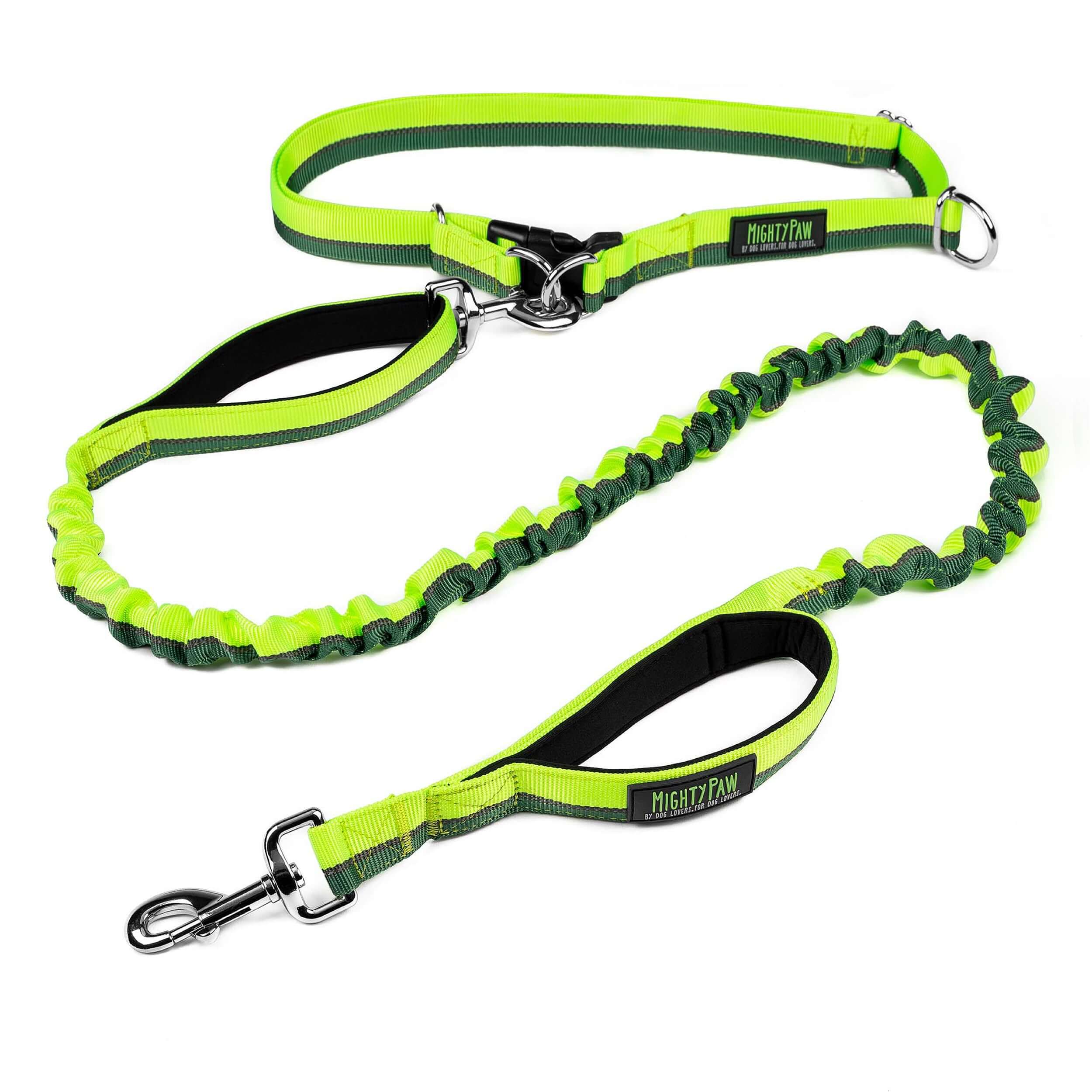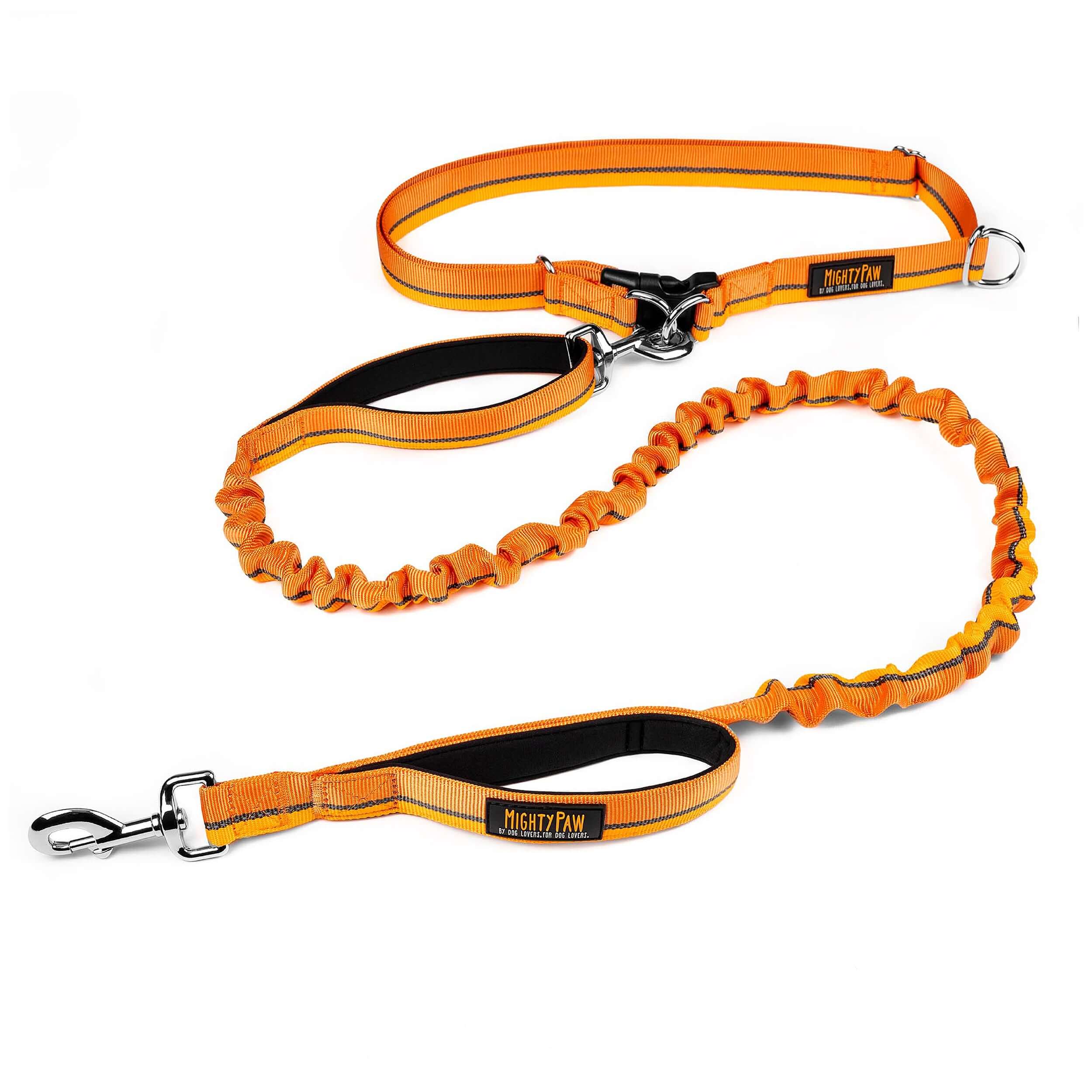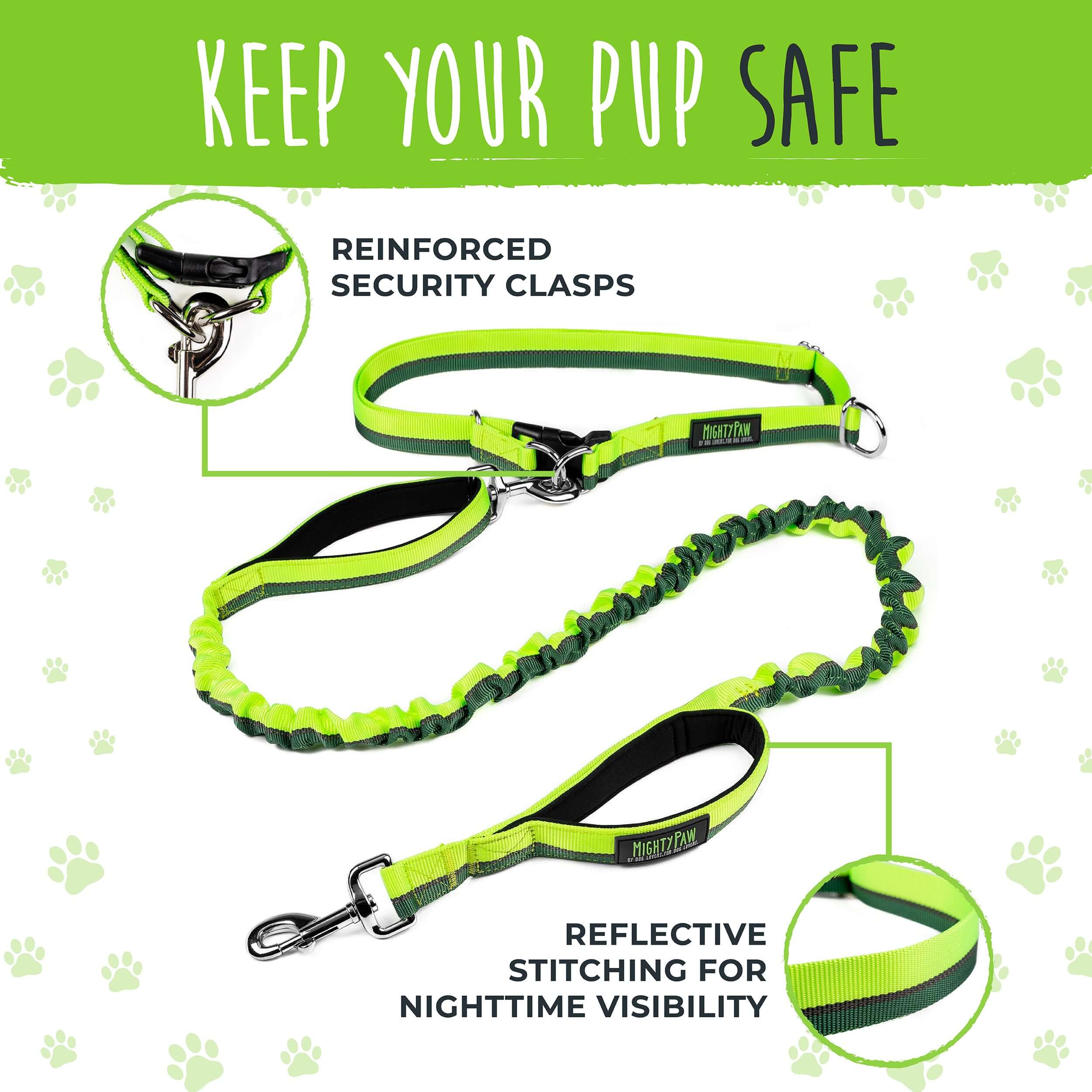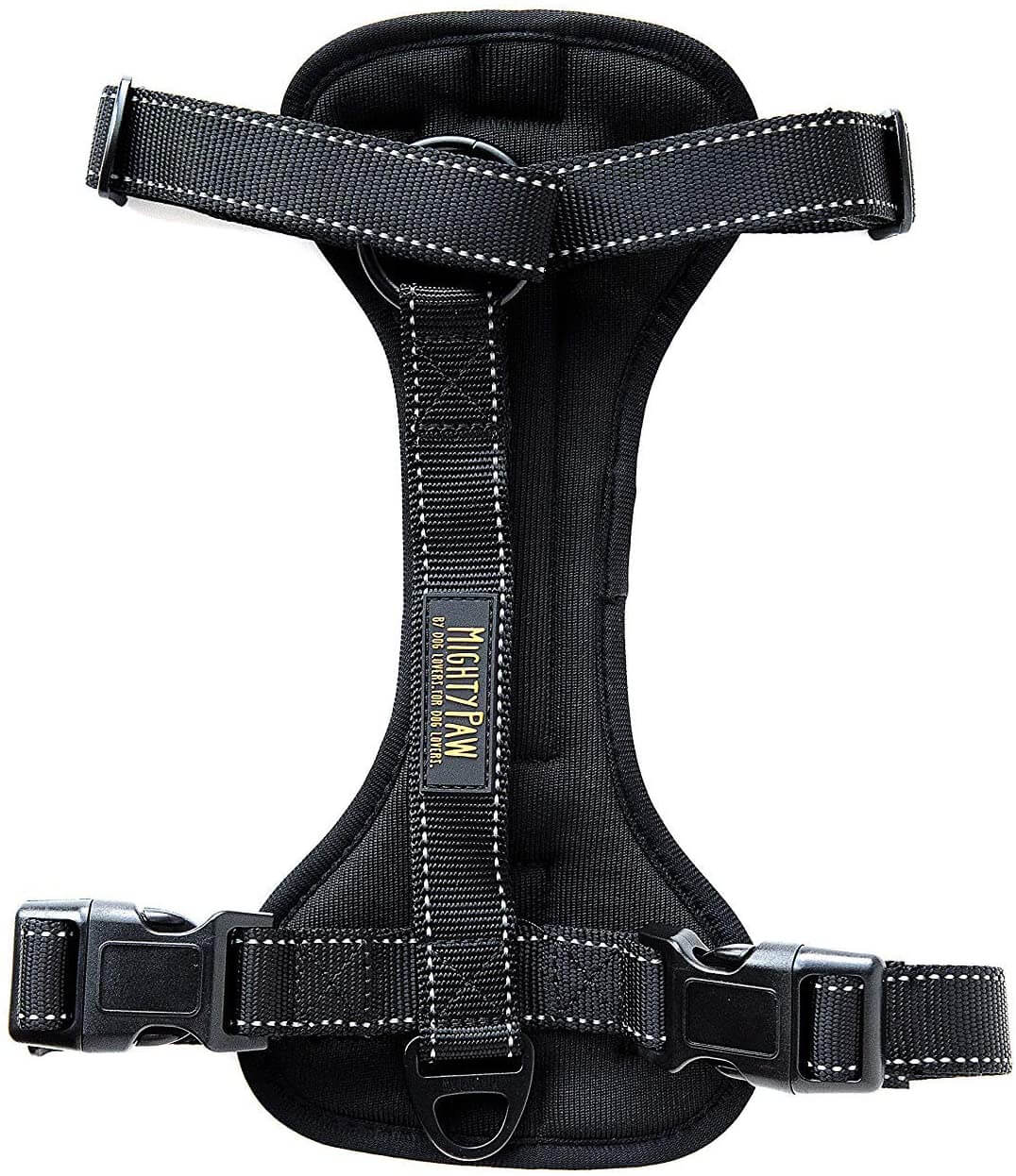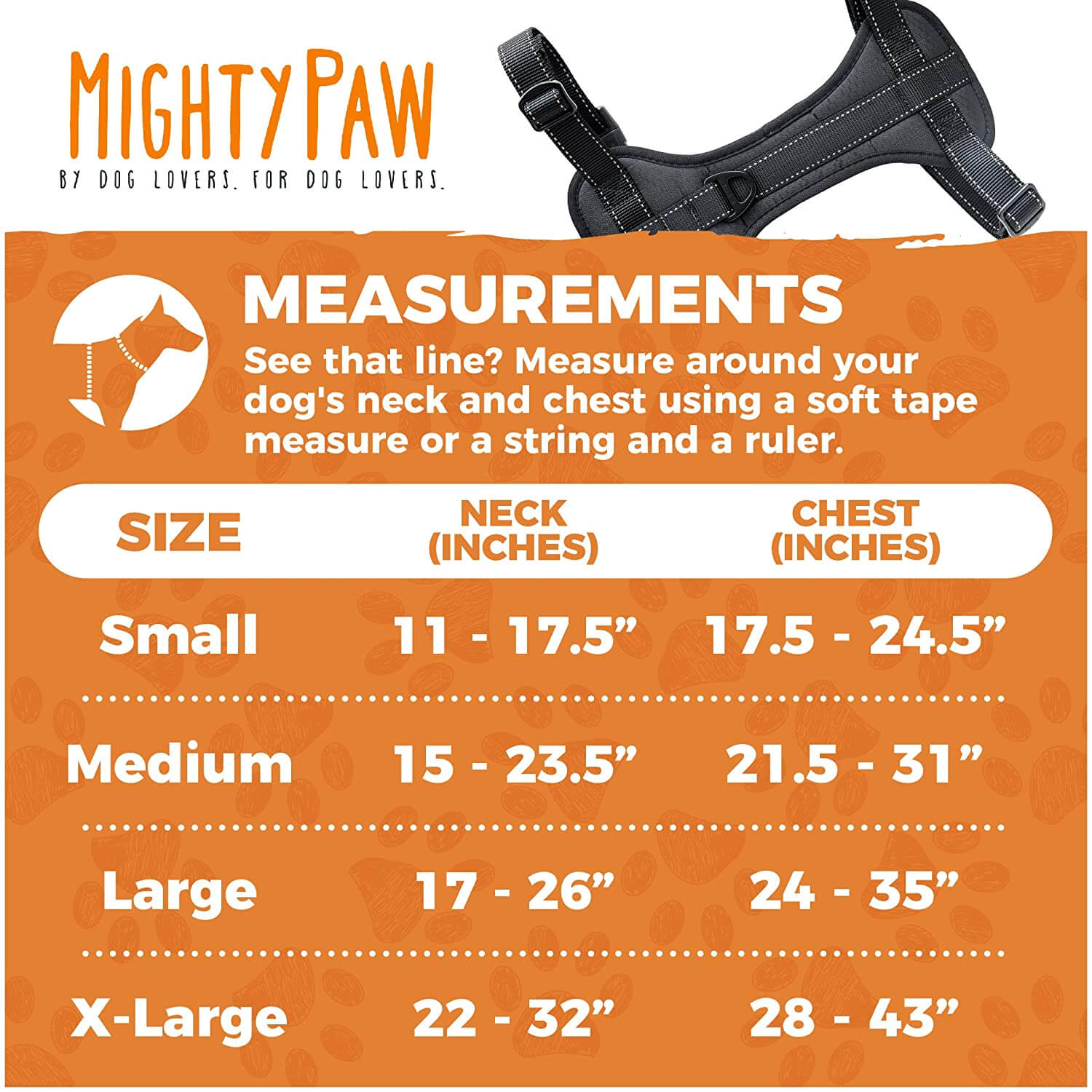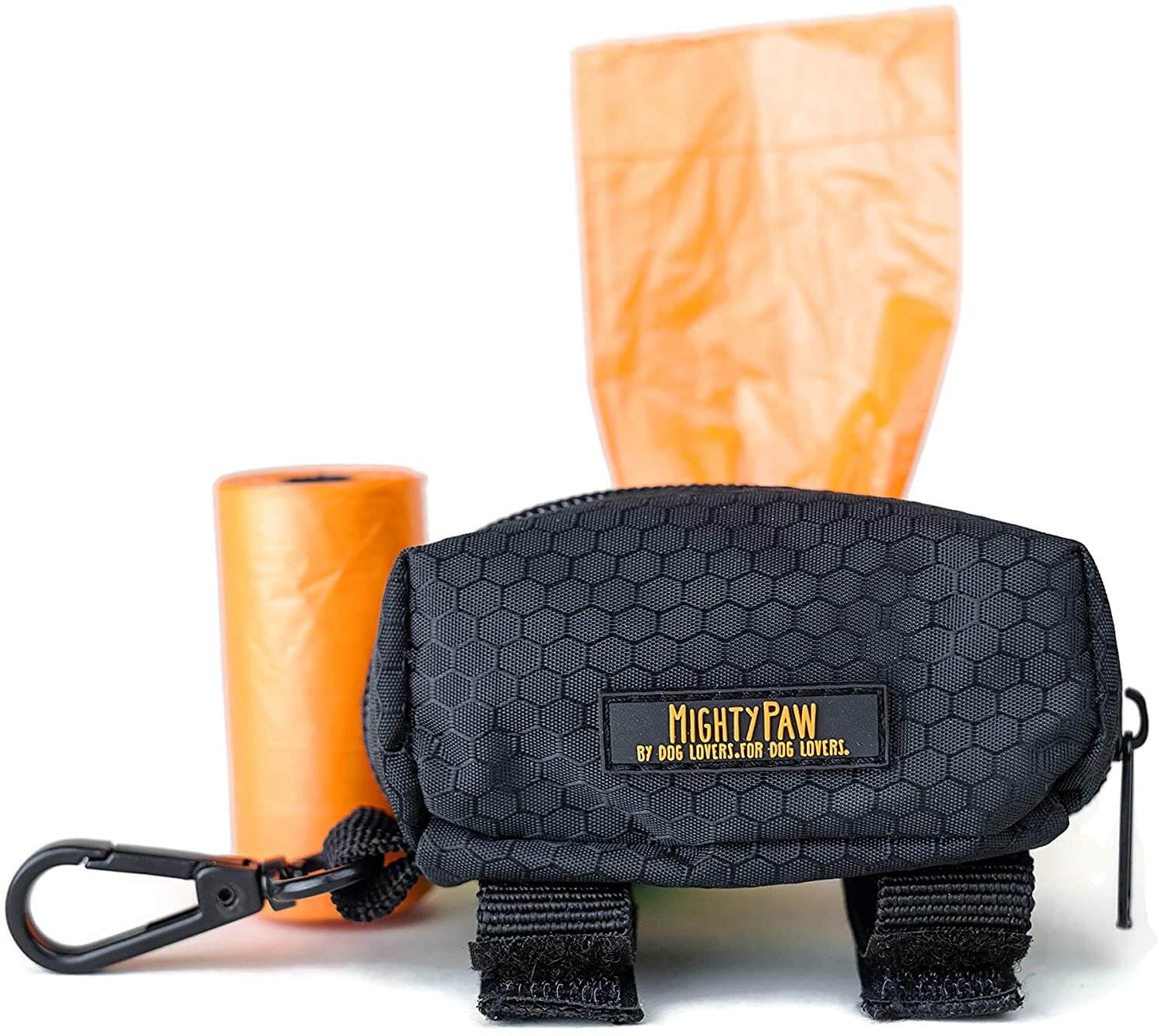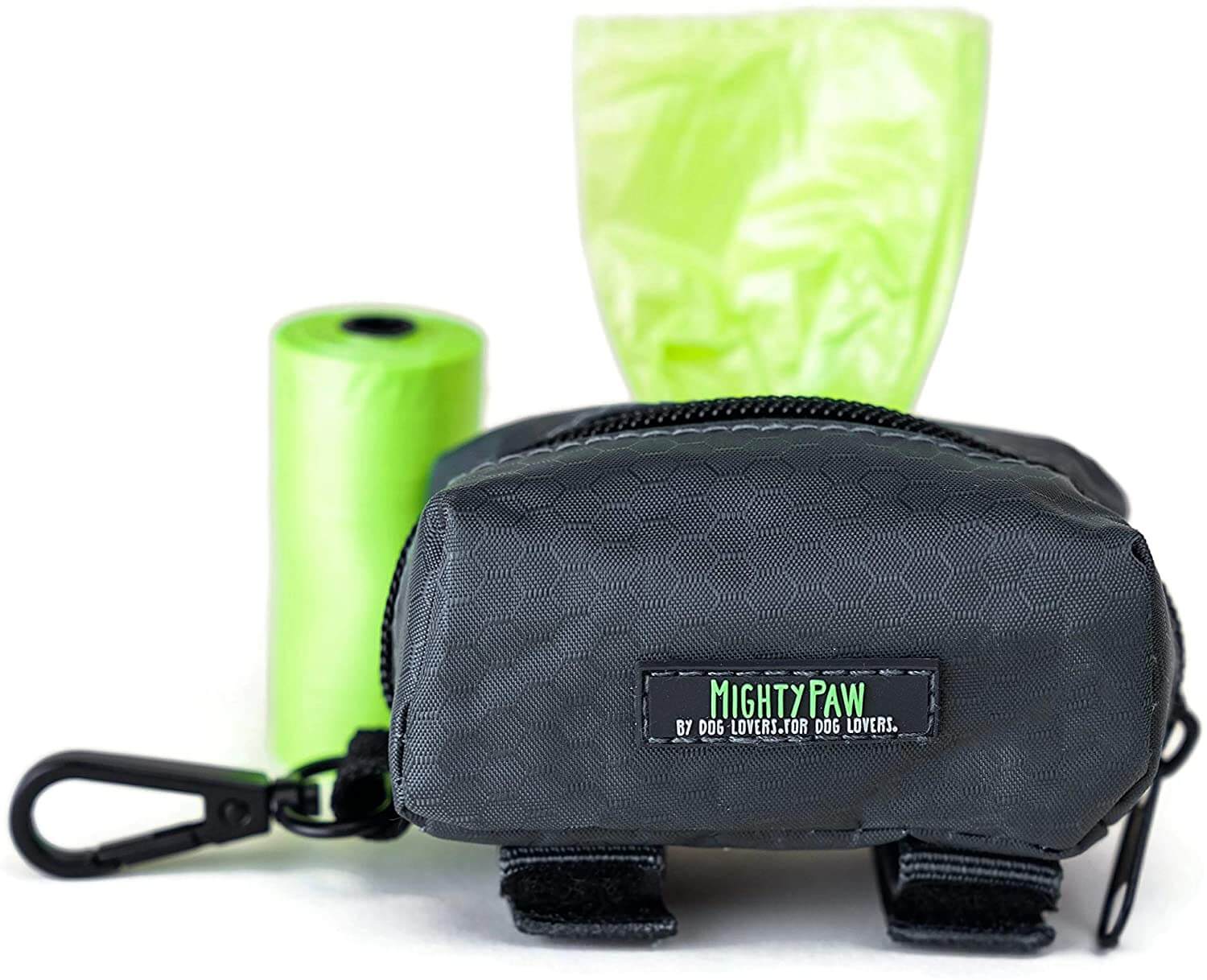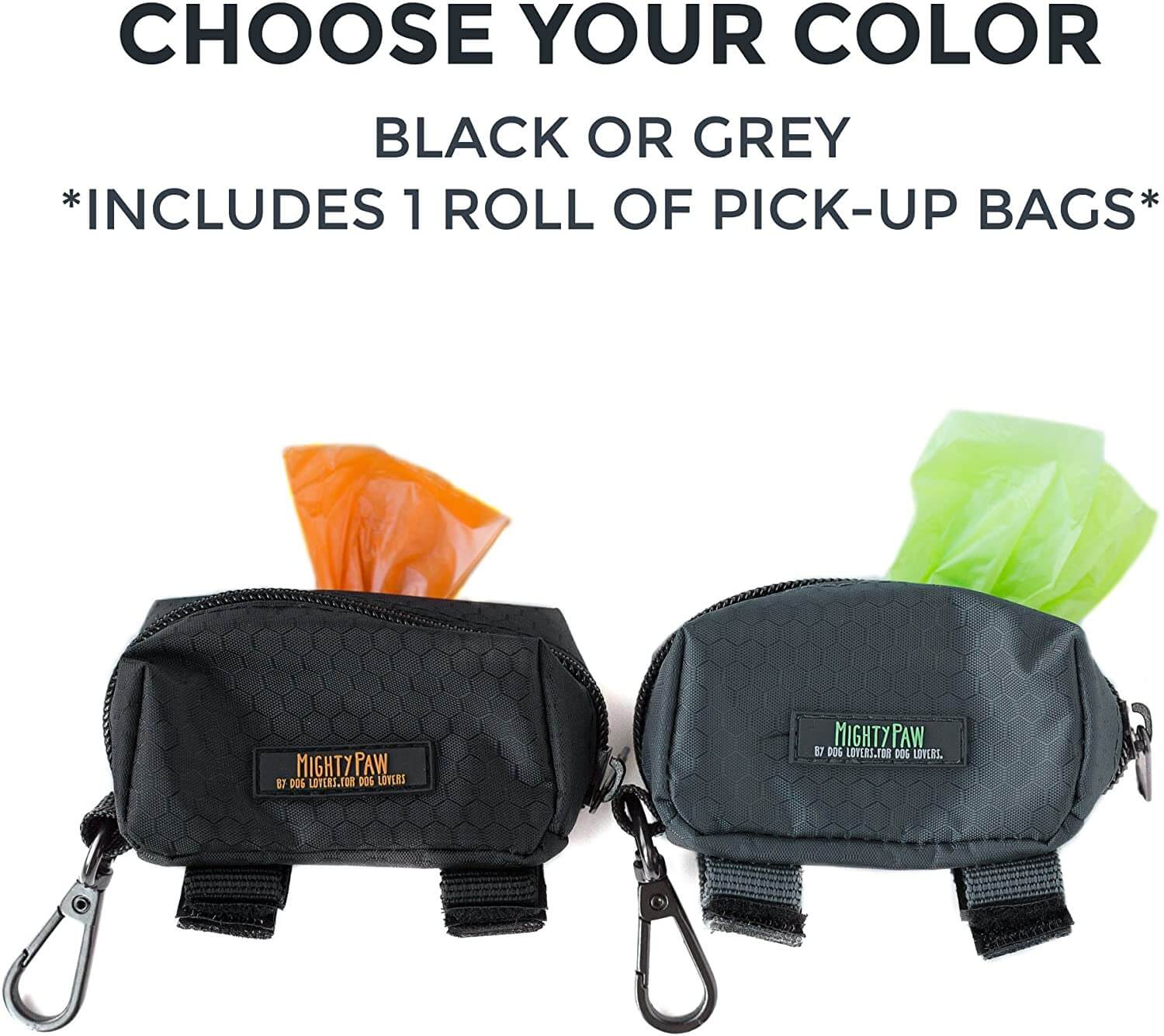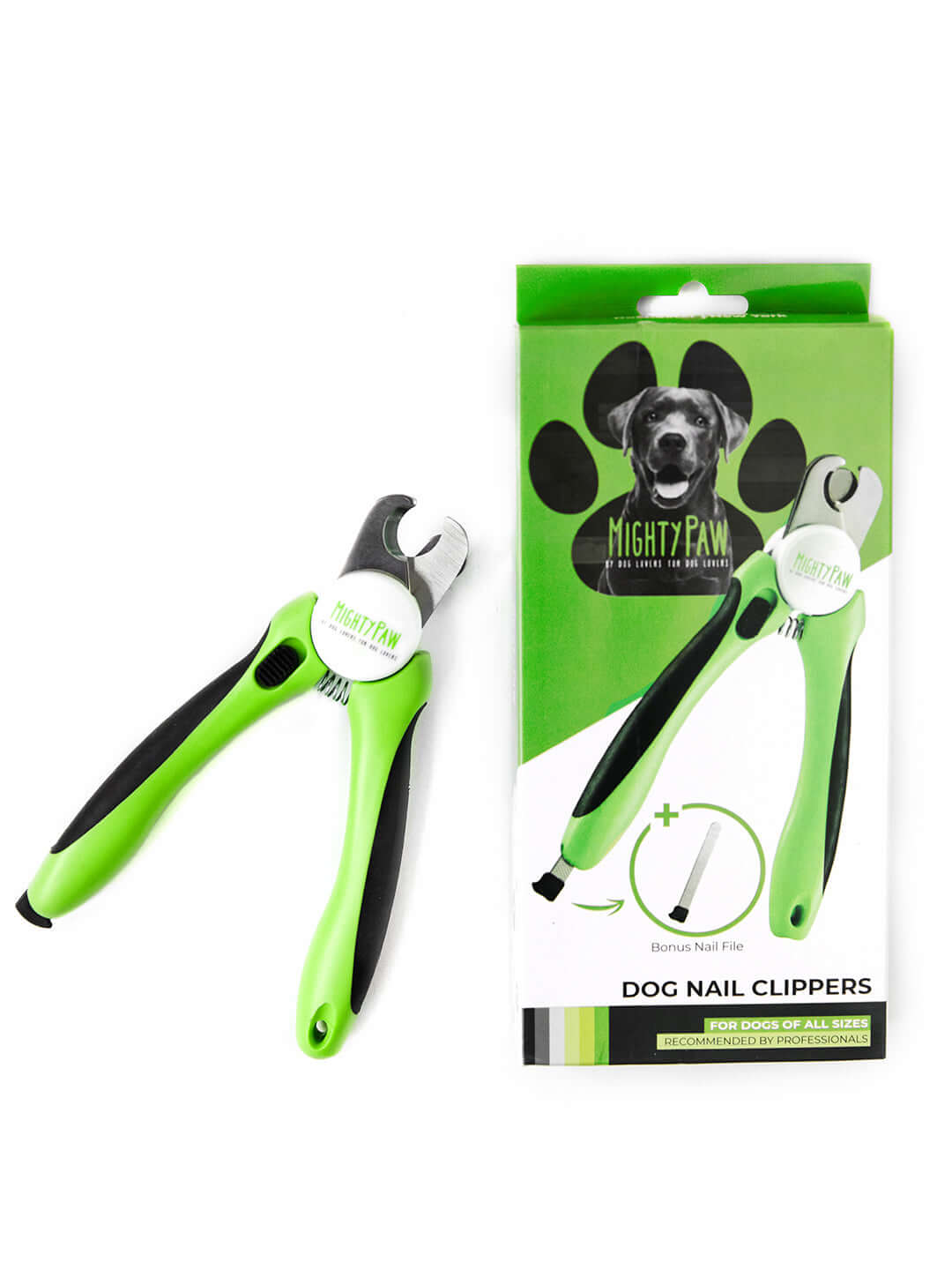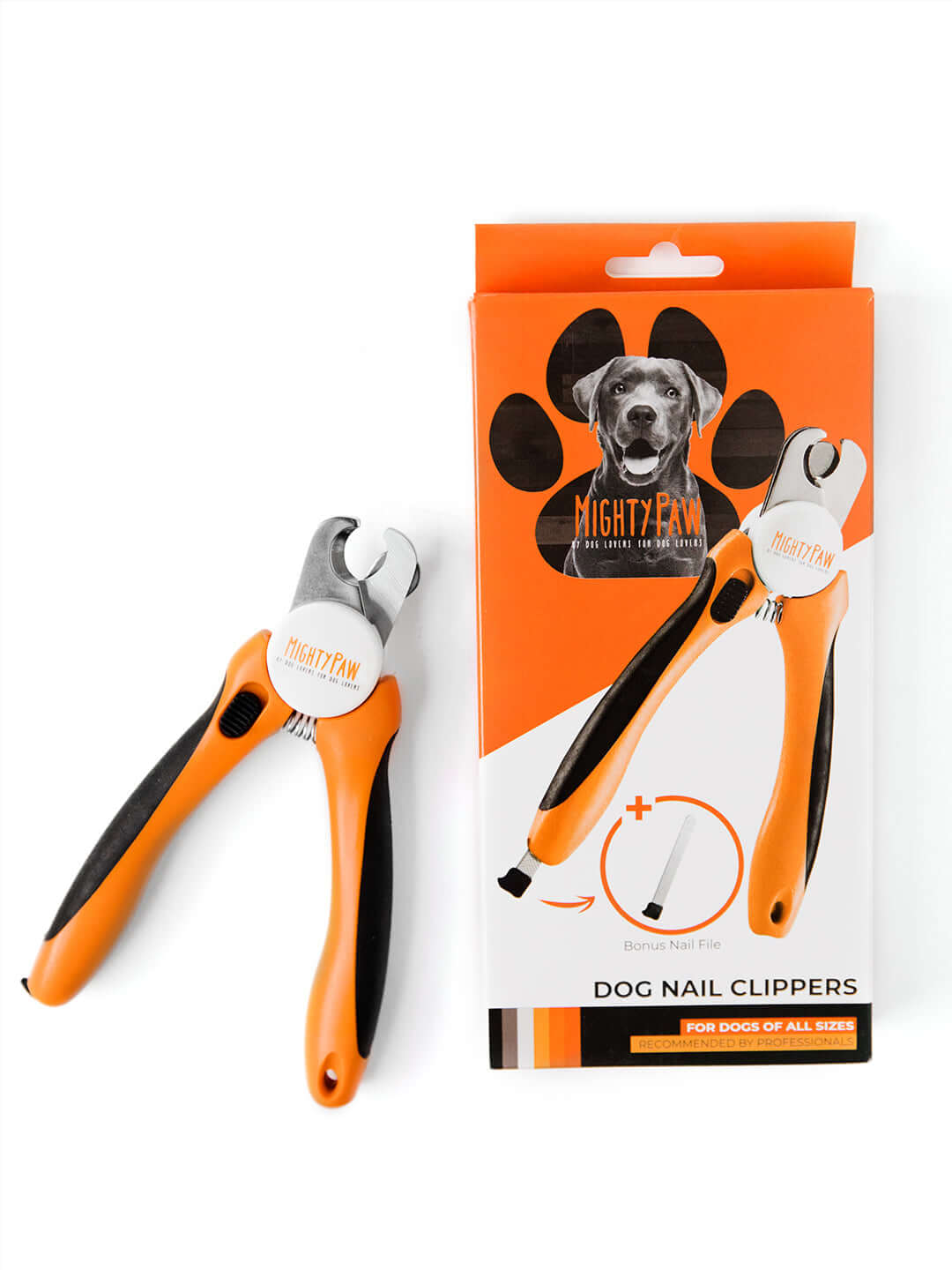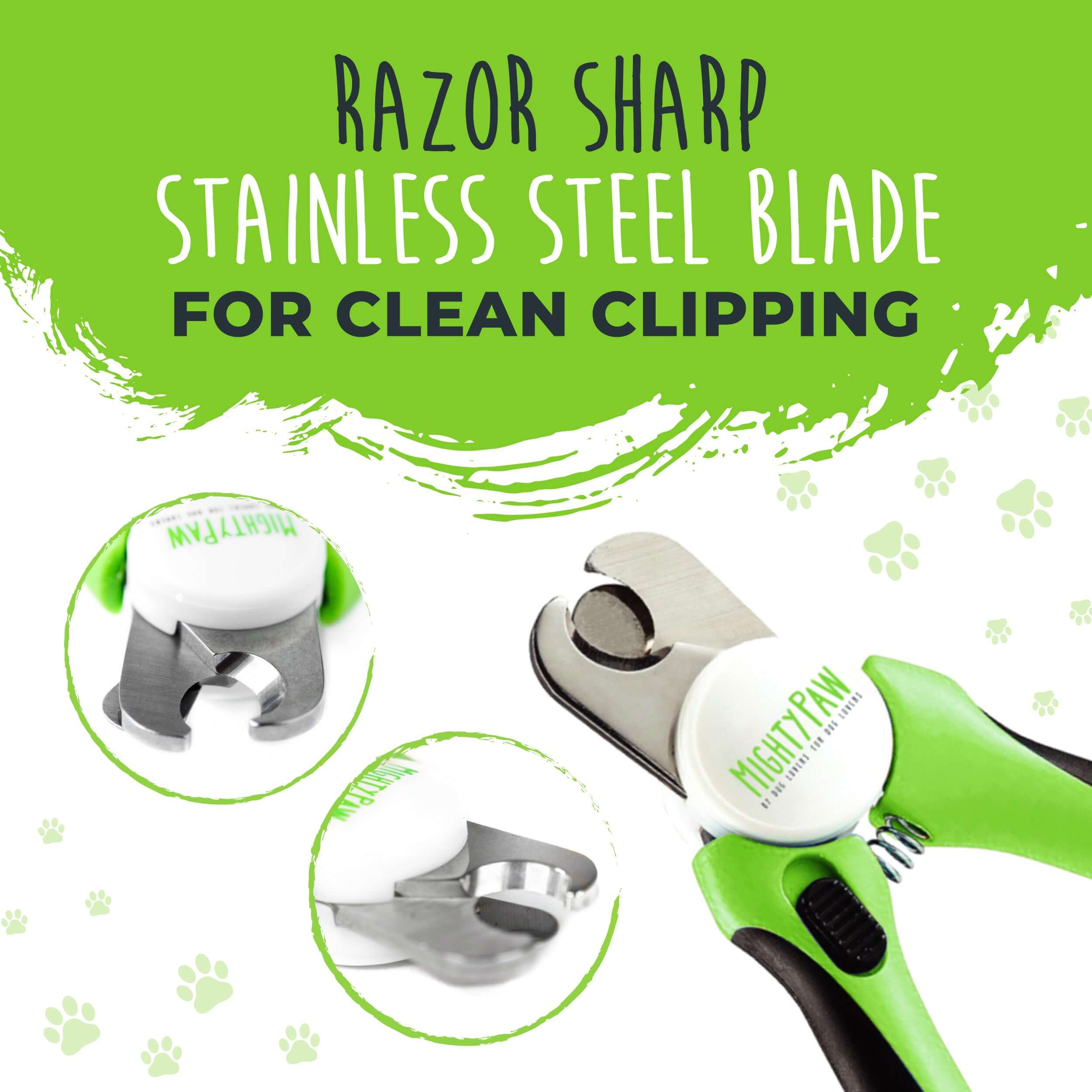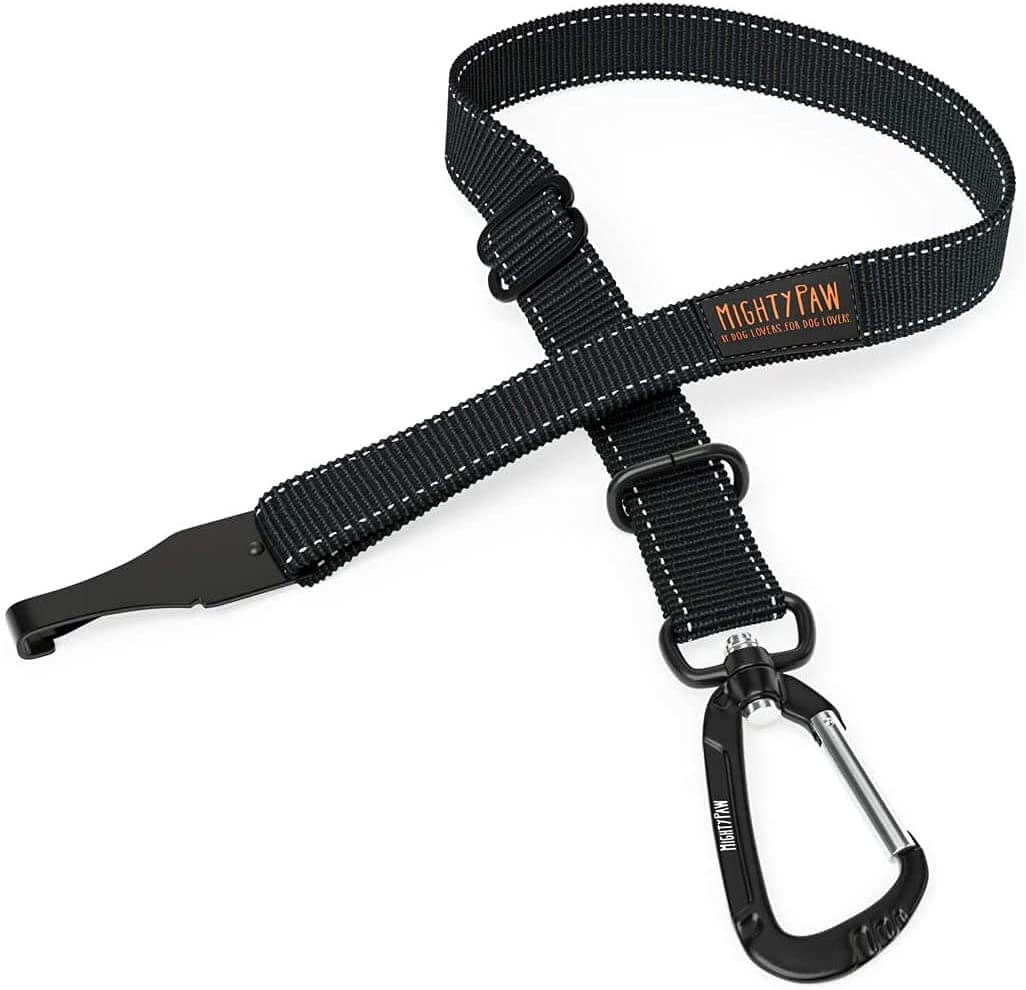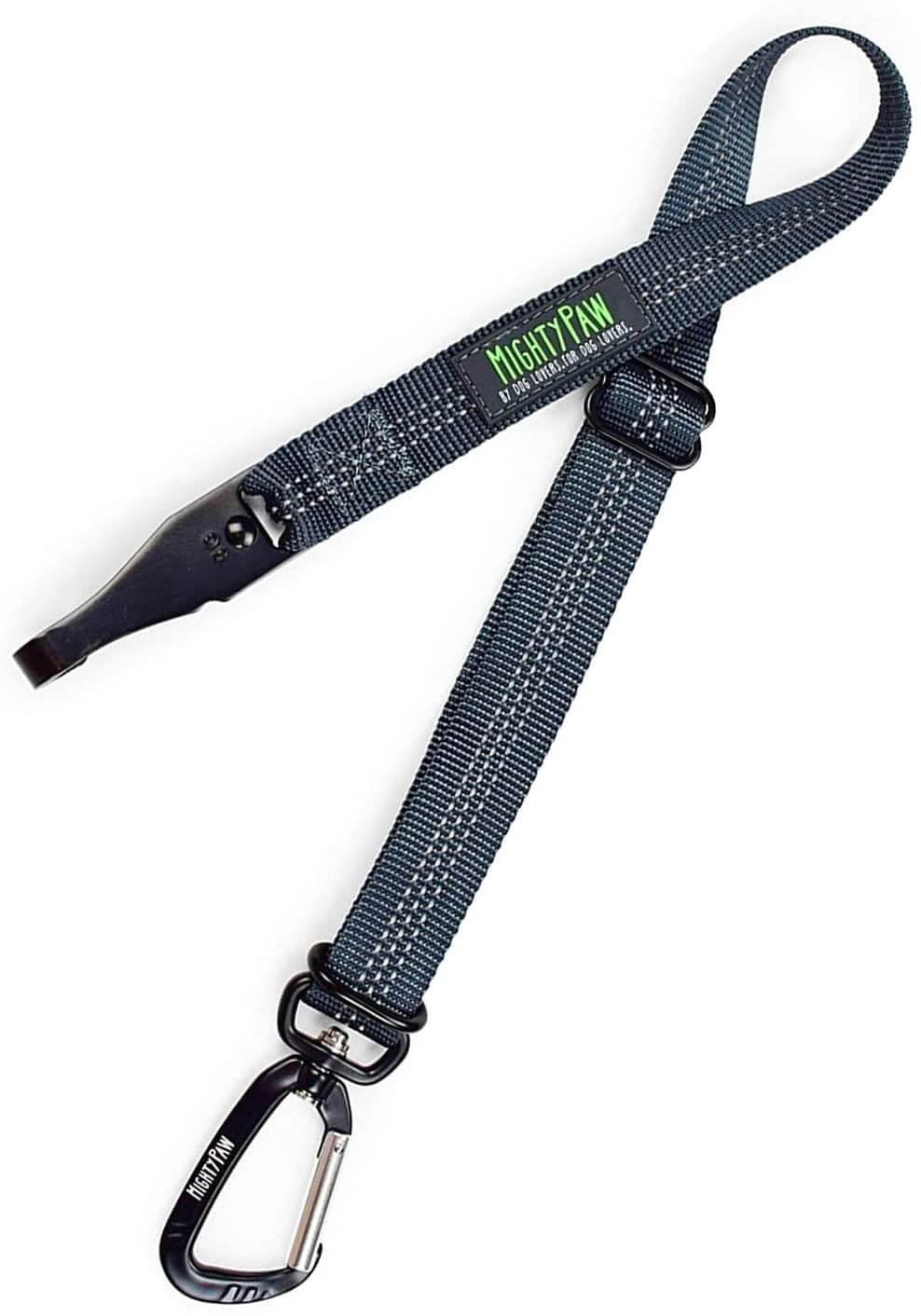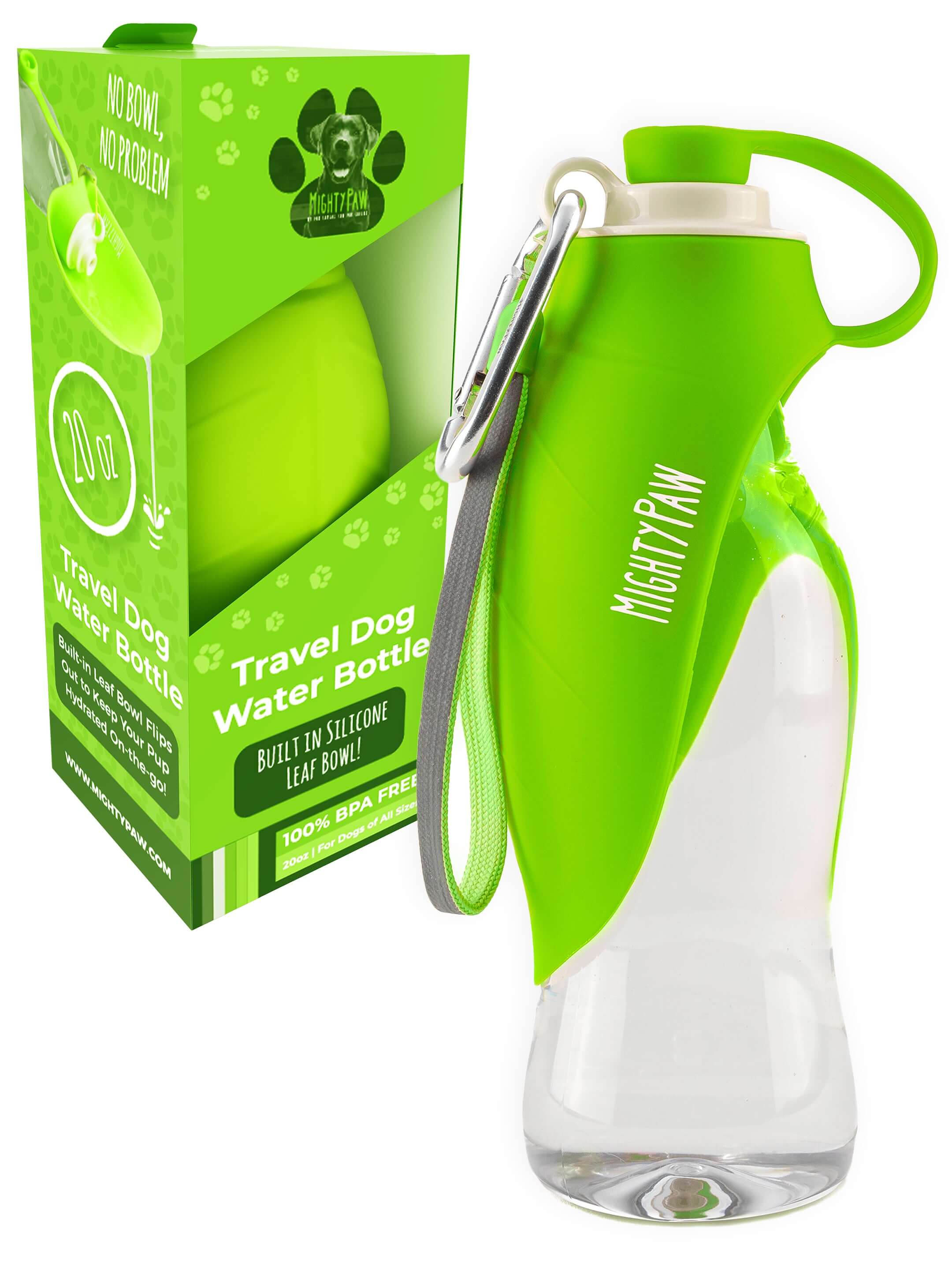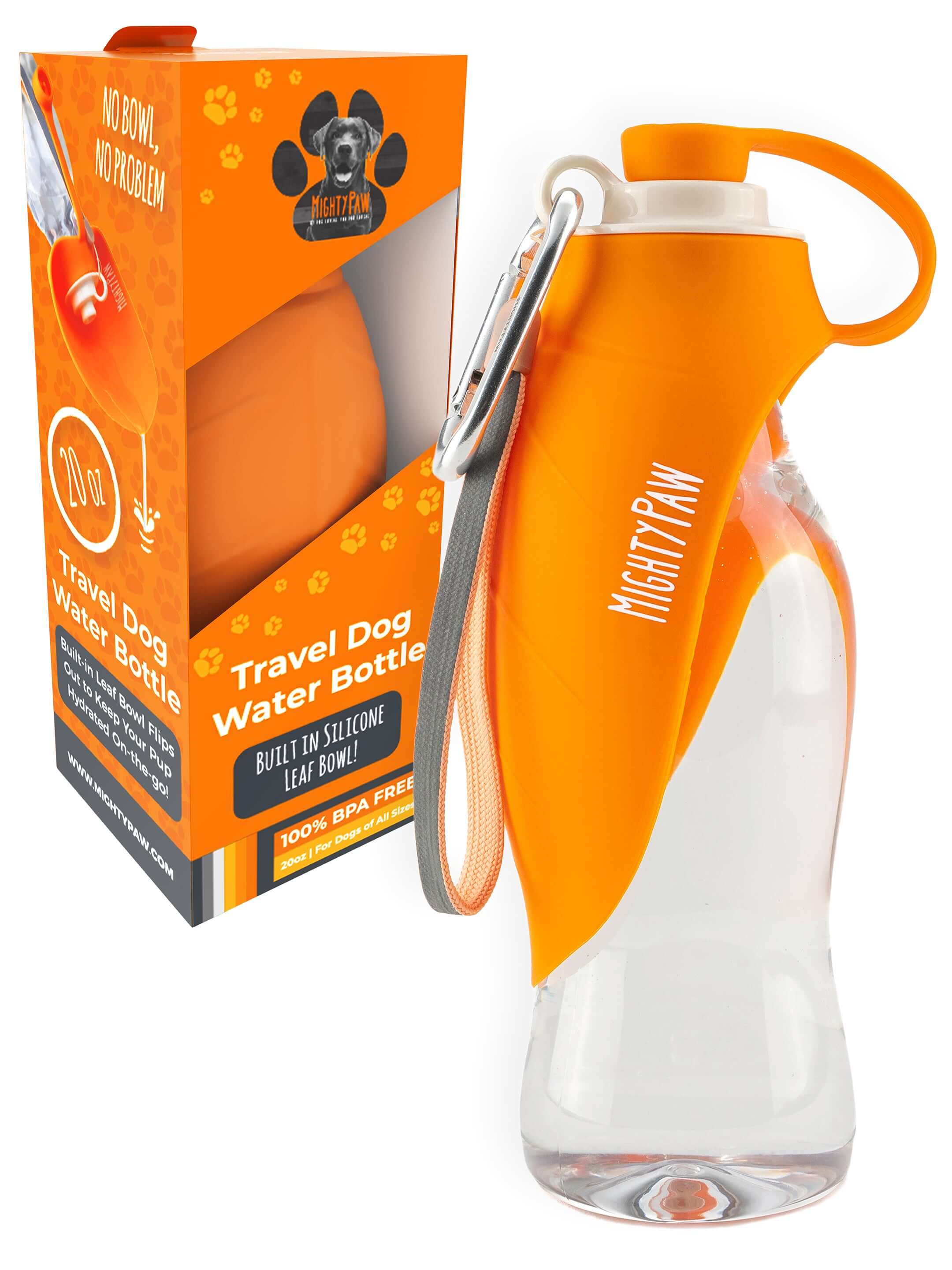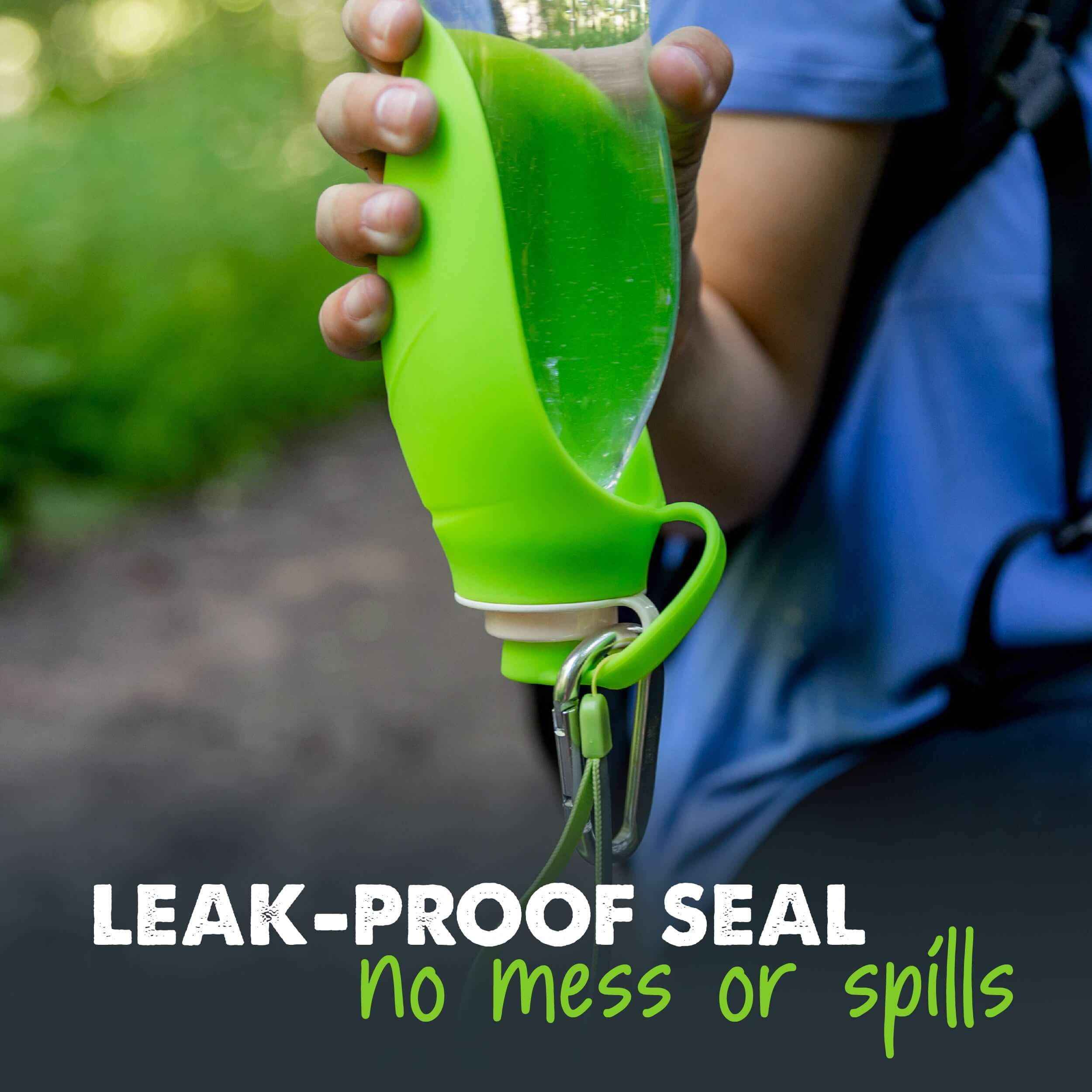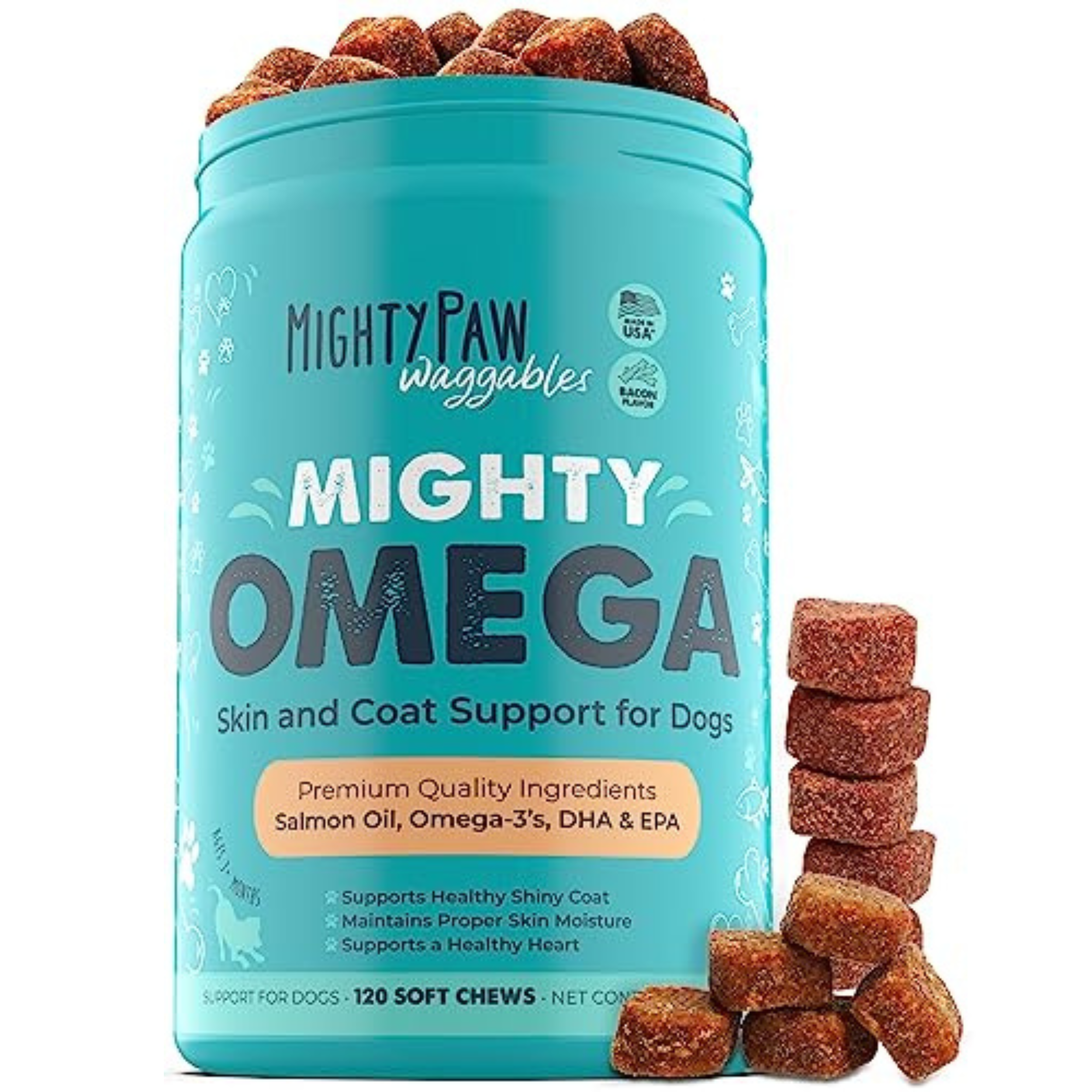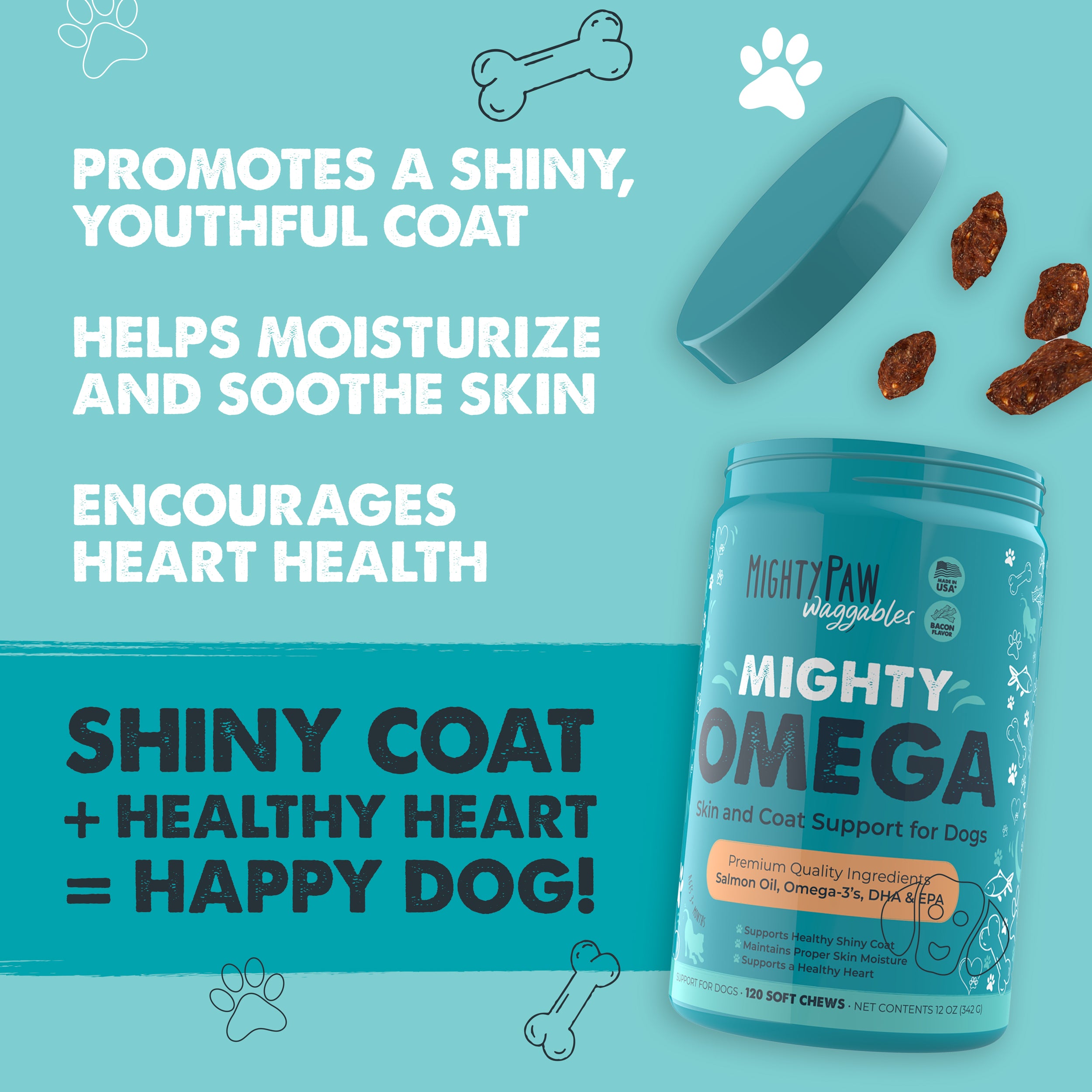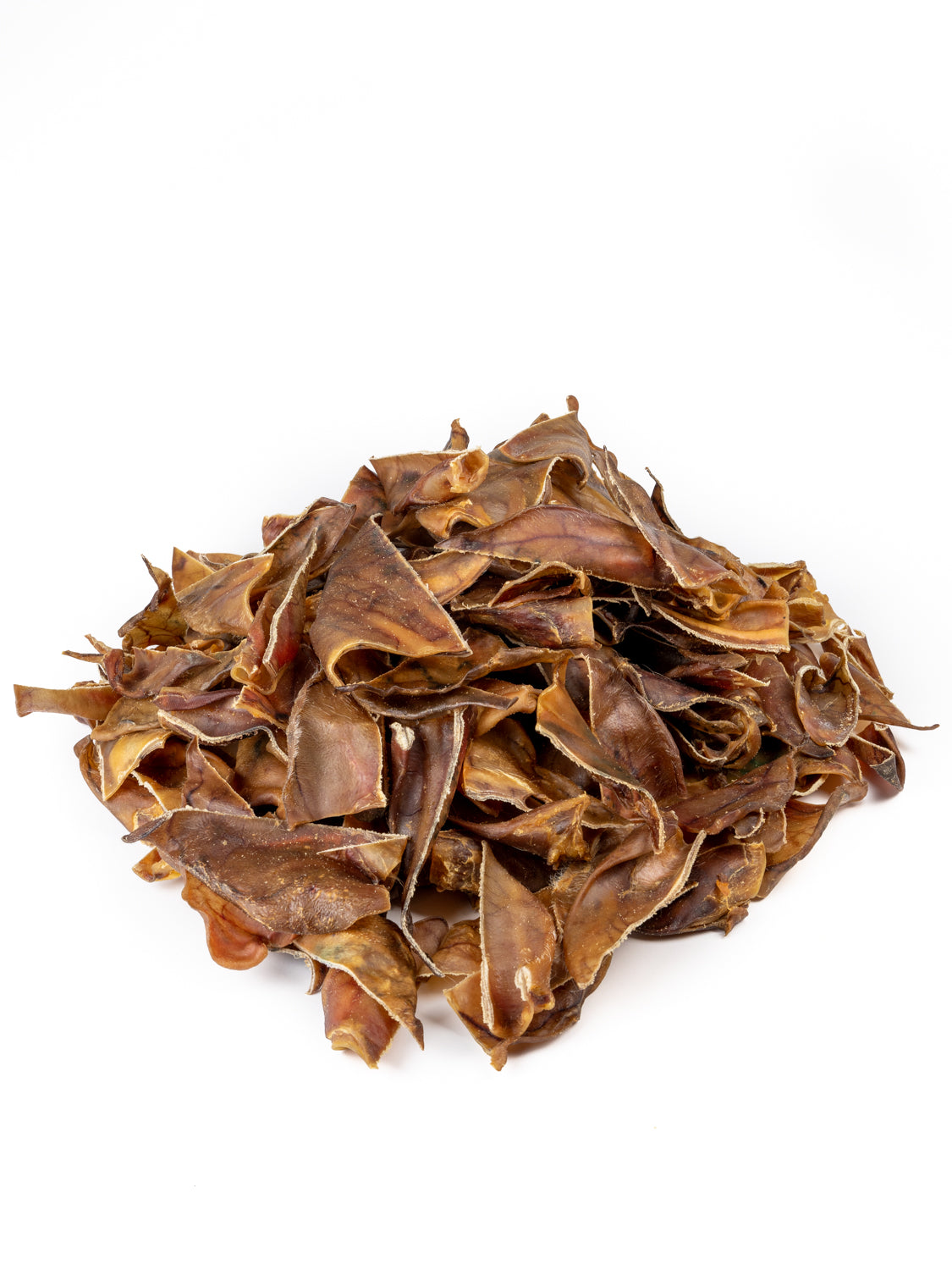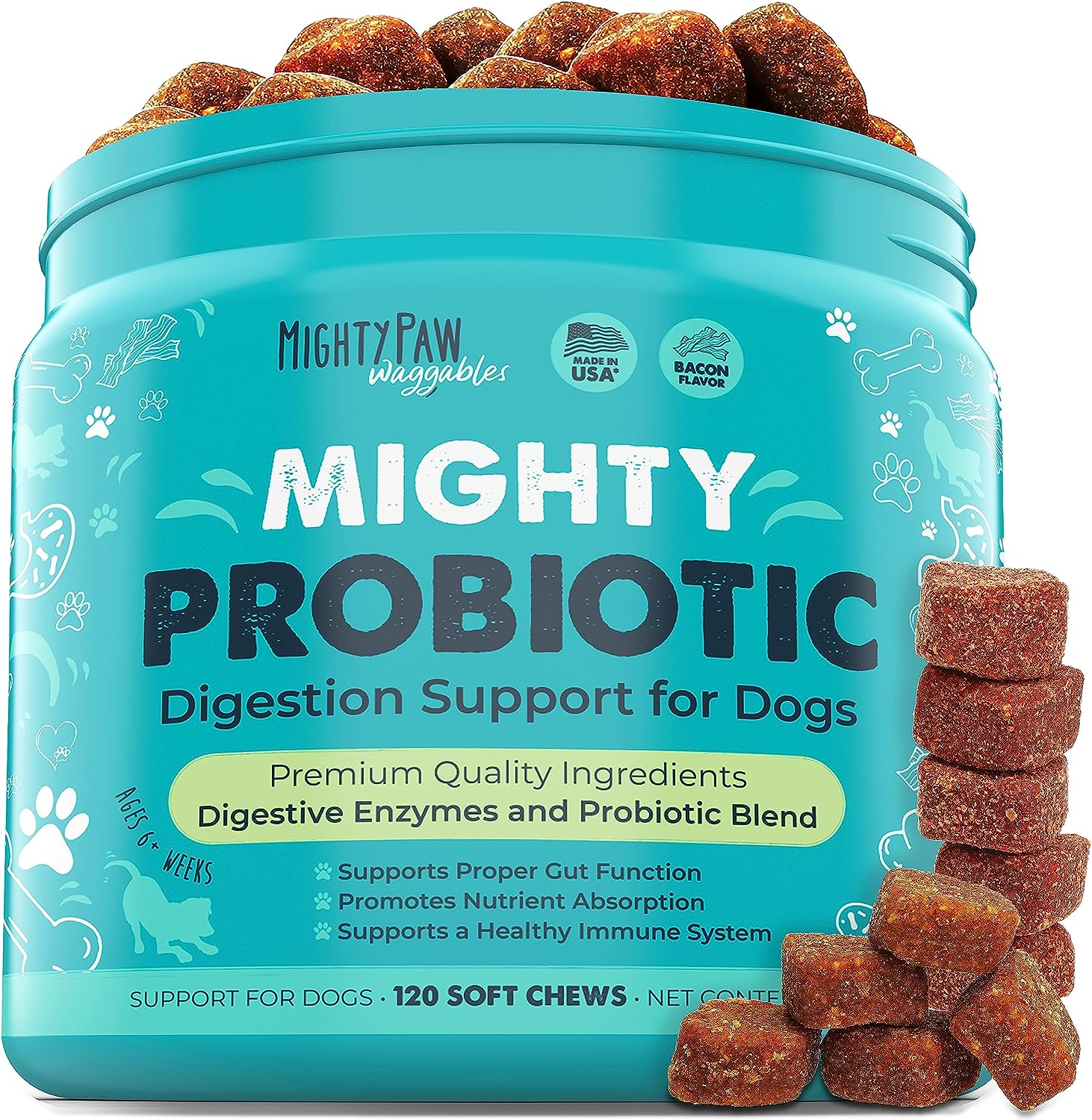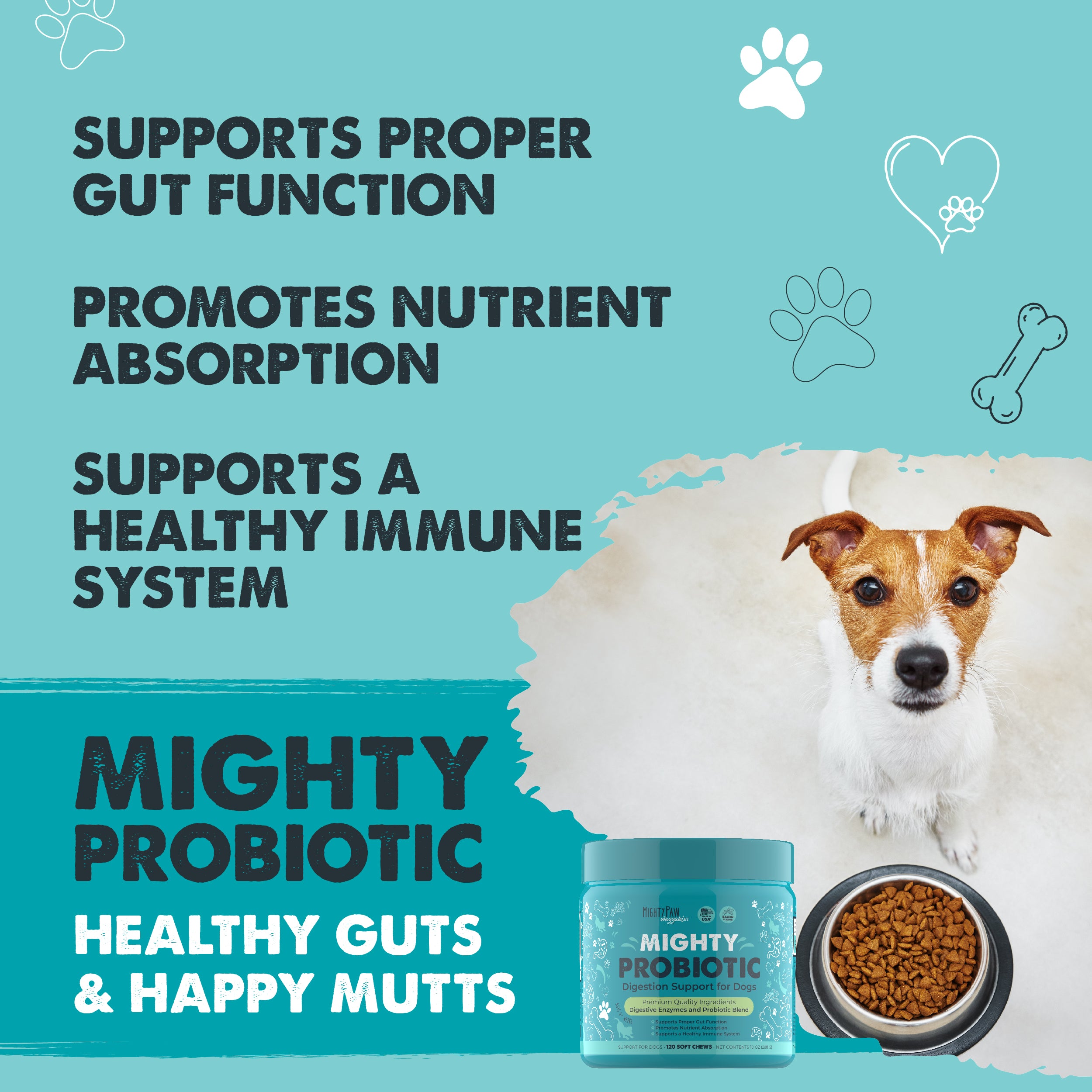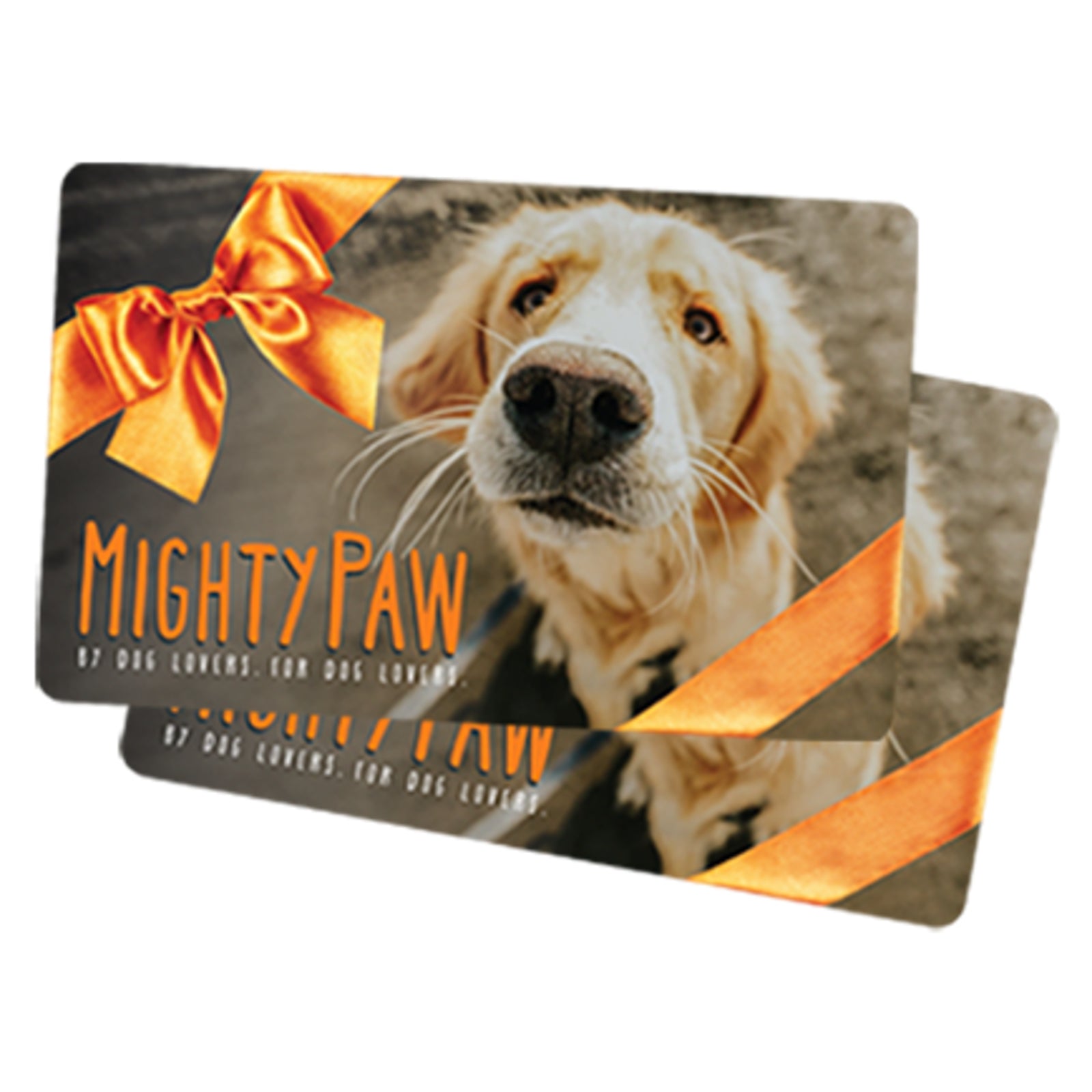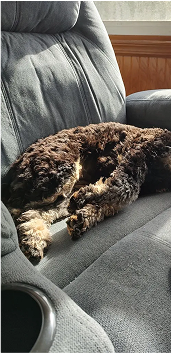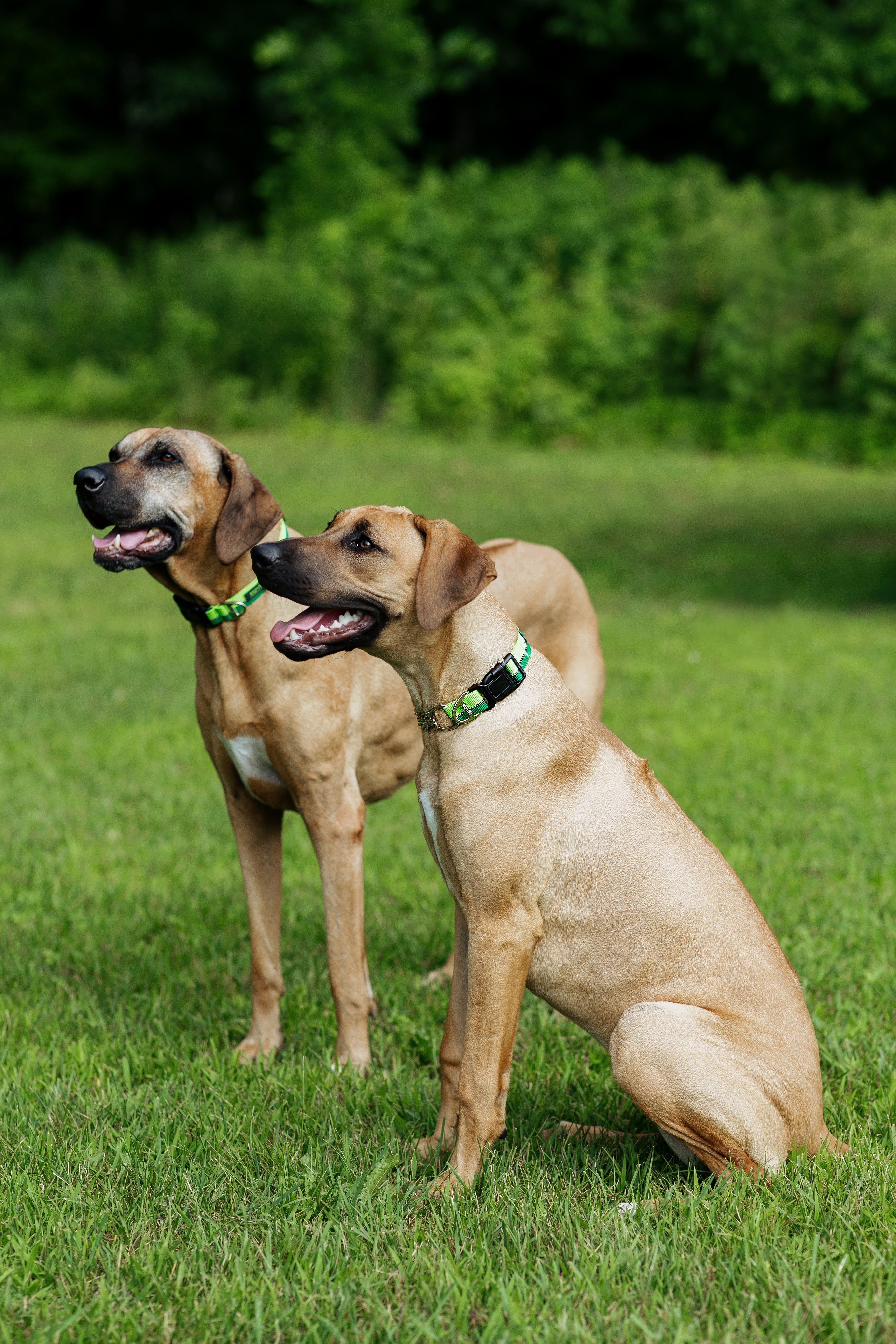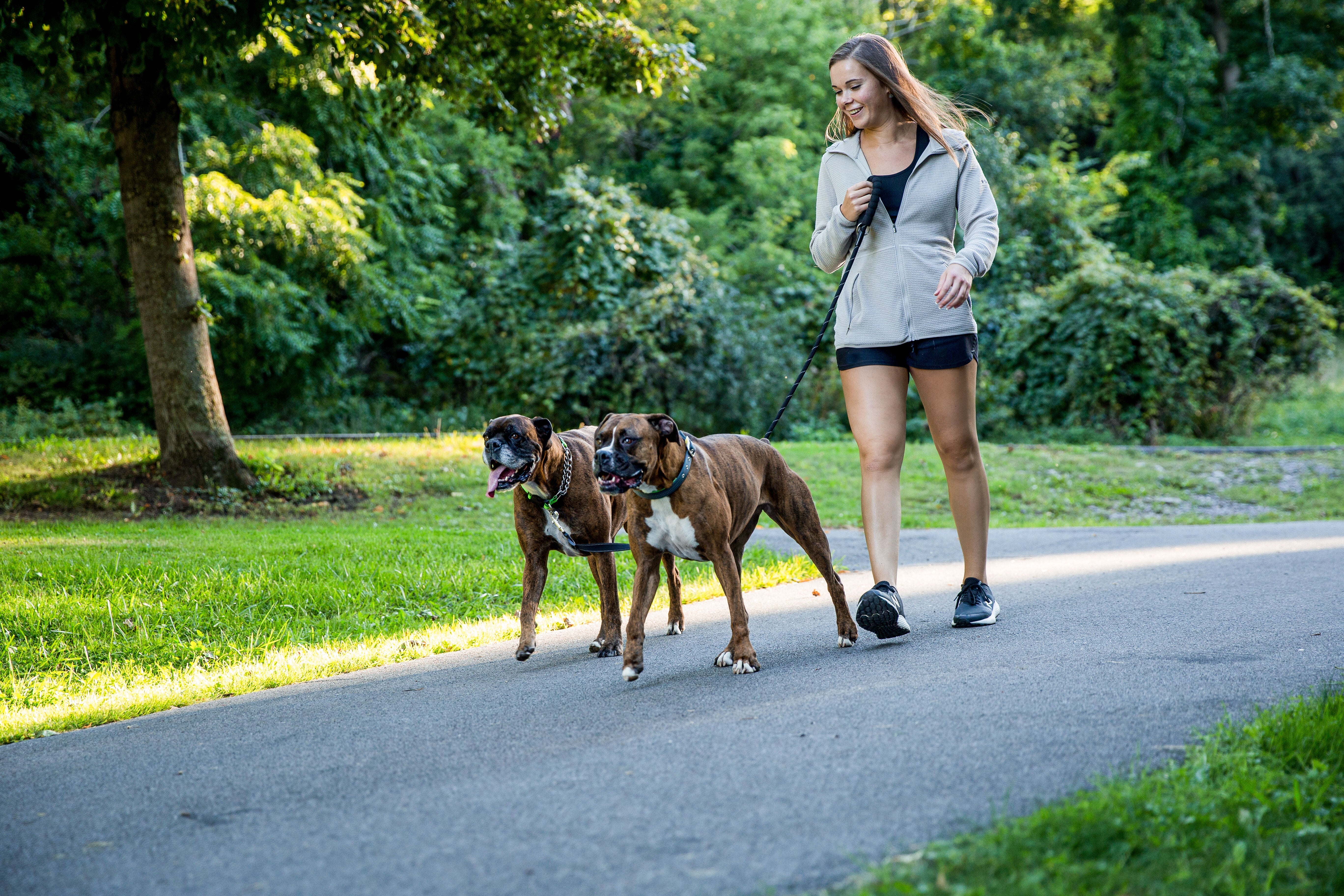Itching, paw-licking, eye-rubbing... it's painful to see our pups struggle with allergy symptoms.

We know firsthand with our own Mighty Paw crew how dog allergies can trigger a frustrating search for answers to how all of us as dog parents can help our pups feel like their healthy selves again.
Since our dogs can't tell us what's bothering them with words, it's up to all of us to know our dogs, spot when they're not themselves physically or emotionally, and know what to do to help solve problems and better yet, prevent them.
Let's jump into how to do that, starting with spotting the signs and decoding probable causes of allergies in dogs...
What to watch for in your dog
Most dogs who develop allergies are likely to have environmental allergies, which can be caused by either outdoor, seasonal allergens like pollen, or indoor, year-round allergens such as dust mites or chemically-based cleaning products and other contact and airborne products.
In these cases, dog allergy symptoms tend to show these common signs:
- Itchy skin
- Inflamed, reddish, irritated skin
- Rubbing the face
- Biting, chewing, and licking the paws obsessively
- Scratching, particularly in the underarms area
- Secondary skin infections (resulting from persistent scratching of itchy skin, biting paws)
- Unusual shedding, hair loss
- Tear stains
- Itchy ears and/or recurrent ear infections
Most dogs' symptoms often look more like skin allergies because dogs tend to absorb seasonal allergens through their paws. When you think about our dogs walking around in direct contact with the ground outside and inside all day every day, it's no wonder they pick up allergens through their paws. That happens whether directly through their skin or when licking their paws and transferring allergens to their face and mouth.
What about food allergies/sensitivities?
If your dog has a food allergy or a food sensitivity (usually more likely than true food allergies), you'll probably see your dog's allergic reaction showing some of the common environmentally-triggered symptoms like paw-licking or skin irritation. But you'll also usually see gastrointestinal symptoms such as stomach upset, diarrhea or loose stool, and vomiting. If your allergic dog isn't showing any GI symptoms, you're most likely dealing with the more frequently occurring environmental allergies.
"Allergic" reactions to food are most often simply a food your dog doesn't tolerate well or a protein your dog has been overexposed to in daily meals and treats. The prevalence of chicken, for example, in many dog foods can cause a sensitivity to develop with allergic reaction symptoms. With too much exposure in some dogs, the immune response can build to a point where it's more easily triggered over time. That's one of the reasons it's a good idea to rotate nutritionally balanced ingredients from a variety of good sources.

What to do when your dog has allergies
Since most dog allergies are the result of exposure in your dog's environment, there is a lot you can do naturally and easily to heal and protect your pup long before resorting to an endless cycle of medications and allergy shots that can bring their own side effects.
In your home...
- Clean house, vacuum, and dust frequently. Common allergy culprits dust mites are everywhere year-round on soft surfaces. Fortunately, vacuuming, dusting, washing linens & dog beds goes a long way to keeping them at bay. You'll also be getting rid of pollen and outdoor seasonal allergens that find their way inside from paws and shoes (which you might want to start leaving at the door if you're not already).
- Use natural cleaning supplies. Diluted white vinegar and natural/organic cleaners/laundry products are safe, effective options. You want to avoid introducing new allergens that can develop allergies in your dog through chemicals, scents, and other toxins in many cleaning products. Think about how sensitive our dogs are to smell (their number 1 sense above vision and hearing) and how much their noses, paws, and skin are in direct contact with floors, rugs, and furnishings.
- Use an air purifier. An air purifier is another way to reduce airborne allergens and improve indoor air quality for both you and your dog.
All these everyday changes help your human household members avoid inhaled and contact allergies and breathe better, feel better too!
On your dog...
- Give your pup a thorough check for fleas first! It's good to know whether you can rule them out or if you need to get on the case right away. Flea allergy dermatitis can be exasperating for both you and your dog. Flea saliva causes an allergic reaction with extreme itching that can lead to irritated skin, secondary skin infections, and distress for your dog.
Try using a flea comb, dipping it in soapy water as you comb through your dog's coat, to spot any hard-to-see fleas or flea debris. That way you'll know if you need to give your dog a good natural flea & tick shampoo bath (and wash any bedding etc that's come in contact) asap before the fleas multiply and become harder to get rid of.
- Rinse your dog with diluted apple cider vinegar regularly. Rinsing your pup with ACV after baths/between baths and soaking paws in the tub help remove allergens picked up on paws, fur, and skin. ACV helps eliminate yeast infections -- a major cause of paw, ear, body itchiness -- and keep them from developing.
Simply mix a 50/50 concoction of water and ACV for a tub soak or to keep in spray bottle by your door for all those things your pup picks up outdoors. Nip seasonal allergies and yeast infections in the bud by eliminating allergens and various bacteria/fungus before they get situated on your pup or spread around your home.
- Bathe your pup in all-natural, simple-ingredient shampoos. Limit your dog's baths to using only naturally-based shampoos with no chemicals or artificial fragrances. Oatmeal-based shampoos can help soothe skin or you can also work in some organic oatmeal to your dog's shampoo. Then rinse thoroughly with your 50/50 ACV mix to further calm and protect your dog's skin and coat.
- Wipe your dog's paws and face after every outside adventure. You don't have to bathe or even paw-soak your pup after every venture outside. Something as simple as wiping your do'g's paws and face (especially for big sniffers) after every trip outdoors can eliminate the majority of allergens. Your ACV mix is perfect for paws; just be careful around your dog's face and only use water (or specific eye rinse for dogs) close to your pup's eyes.
Out and about...
- Avoid areas of tall grass, underbrush, or leaf piles that tend to be breeding grounds for fleas and ticks, pollen, mold, and other environmental allergens.
- Keep an eye out for lawns/gardens that use pesticides (sometimes they'll have small warning signs or you can learn to be wary of too-perfect lawns without an "organic" or "pet-friendly" sign.
In all cases, you'll be glad you're following the paw-wiping and face-cleaning advice after each outside adventure with your dog.
If your dog's symptoms are acute...
It's a good idea to contact your veterinarian if your dog is experiencing serious swelling or inflamed skin/mouth/eyes or hives. All these can be indicators of a rapidly developing allergic reaction to an insect bite or other toxic irritant. Your vet may recommend an antihistamine appropriate for your dog to help quickly reduce symptoms in the moment while you get to the root of the cause and manage your dog's environment for long-term health.

Why & how to fortify your dog's immune system against allergies
Prevention is always a better and easier route for both your dog and you. That's certainly true of frustrating allergies that can be harder on your dog if not addressed early or before they have a chance to impact your dog's immune system.
All those external efforts to manage environmental allergens in your home, on your dog, and outside have a huge impact on preventing allergies in the first place.
But what about protecting your dog from the inside out?
Your dog's food, everything your dog eats and drinks, is your first, most lasting point of control for building your dog's healthy gut and immune system from the inside out to shield against allergies.
A healthy dog with a strong balanced immune system is less likely to suffer from allergies. Even in a dog genetically predisposed to allergies, a fortified immune system helps keep allergic reactions in check.
Foods and nutrients to support your dog's immune system vs allergies...
Adding foods high in antioxidants including nutrients like turmeric and quercetin as well as foods rich in Omega-3 fatty acids can build your dog's nutritional foundation for a balanced immune response to potential triggers. A few key foods to add to your dog's bowl:
- Coldwater fish (& fish oil): Salmon, mackerel, and sardines are packed with omega-3s that fight the inflammatory and irritation response that comes with allergies and help keep your pup's immune system strong for the long-term.
- Fresh fruits and vegetables: They're packed with vitamins and minerals that help promote a healthy immune system and soothe itching/scratching -- especially the colorful ones highest in quercetin and vitamin C (a natural antihistamine) like blueberries, kale, spinach, etc.
- Herbs and spices: Turmeric and ginger are stars among a number of spices and herbs that promote a healthy inflammation response and calm irritation associated with allergies.
- Bone broth: Bone broth is high in vitamins and minerals that help build a nutritional barrier to allergies and healthy response to allergens.
You can also give your dog key nutrients like Omega-3s, quercetin, and turmeric in supplements to be sure your pup is getting the solid immune base needed to keep allergies in check.

How Mighty Immune + Itch Chews can help
We know the best way to help our dogs and yours with allergies is prevention. That's why we created our vet-backed Mighty Immune + Itch supplement chews to support your dog's immune system to help alleviate itchy skin, paws, and ears.
Mighty Immune + Itch is made in the USA and created with natural, immune-supporting, normal inflammatory response ingredients: Omega-3 fatty acids, turmeric, and quercetin, plus bromelain (found in pineapple) and pumpkin for more antioxidant cell protection. All so you can be sure your dog is getting the best nutrients to fortify your pup from the inside out.
Addressing allergies is an ongoing process, but taking a few simple steps consistently can help you and your dog live well every day, any season.
Here's to getting ahead of allergies and on with enjoying your adventures!
At Mighty Paw, we believe in helping to keep all our dogs at their healthiest and happiest so they can truly live their best lives -- without being sidelined by issues like allergies. That's why we're dedicated to finding ways to help you bring more wellness to your dog's life and more fun into your everyday adventures together.
We're committed to providing high-quality products that are safe, durable, and practical for everything you need to keep your pup healthy, happy, and enjoying every moment by your side.

